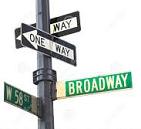
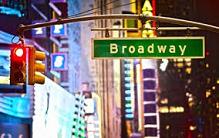

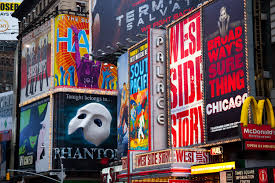
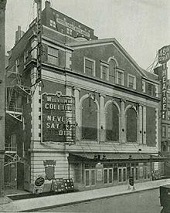
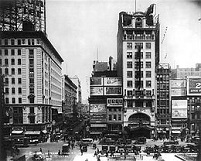
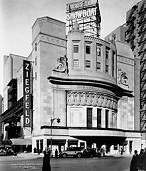


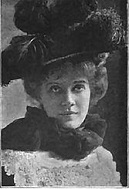

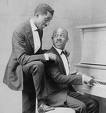


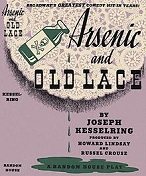
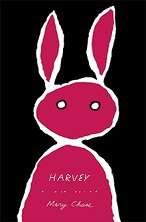
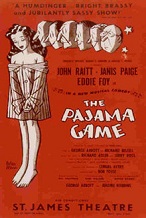
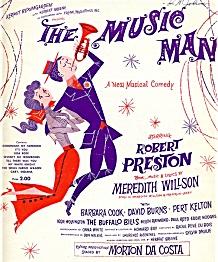


















TLW's Broadwayscope™ (Broadway Historyscope) |
By T.L. Winslow (TLW), the Historyscoper™ |
© Copyright by T.L. Winslow. All Rights Reserved. |
Original Pub. Date: Aug. 5, 2015. Last Update: Sept. 23, 2019. |
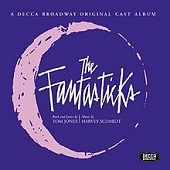
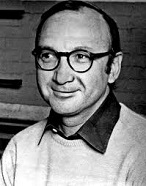
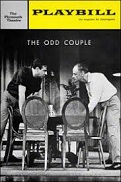
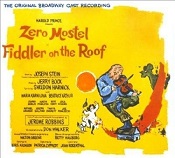

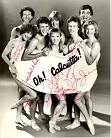
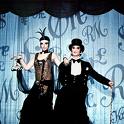
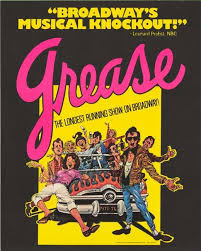
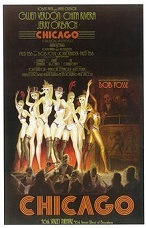

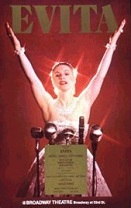
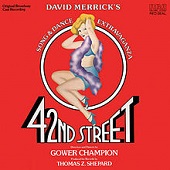
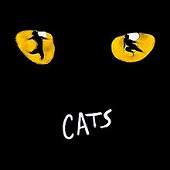
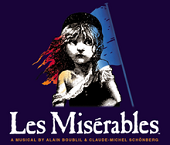
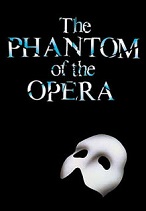
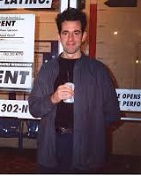
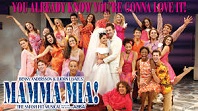
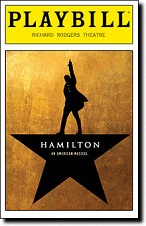
Westerners are not only known as history ignoramuses, but double dumbass history ignoramuses when it comes to Broadway history. Since I'm the one-and-only Historyscoper (tm), let me quickly bring you up to speed before you dive into my Master Historyscope.
Broadway plays are divided into dramas, comedies, musical revues, and musicals; some stand out after being awarded a Tony Award or Olivier Award. Along with Broadway there is Off-Broadway (seating cap. 100-499) and Off-Off Broadway (cap. less than 100).
The Broadway Theatre District along Broadway in Manhattan, N.Y. currently consists of 40 500+-seat theaters, which in 2014 sold $1.36B in tickets to 13.13M buyers; most Broadway shows are musicals; there have been 116 Broadway shows with 1K or more performances.
In 1642 Dutch explorer Capt. David Pieterszoon de Vries (1593-1655) makes the first written mention of Broadway (Dutch "Brede weg") in Manhattan, N.Y., originally called the Wickquasgeck ("birch bark country") Trail by the natives.

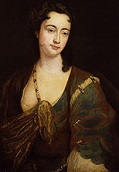
In 1698 after starting out as an actor in Dublin and accidentally wounded another actor on stage, causing him to leave for London, Derry, Ireland-born George Farquhar (1677-1707) debuts his first play Love and a Bottle (comedy), about Roebuck, "an Irish Gentleman of wild roving Temper" flees for London after knocking a woman up, and makes friends with Lovewell; "Heav'n was plea'd to lessen my Affliction, by taking away the She-brat"; a hit, causing him to go into playwriting while working as a soldier in the regiment of the earl of Orrery, discovering actress Anne Oldfield (1683-1730). In 1700 he debuts his comedy The Constant Couple, or A Trip to the Jubilee at Drury Lane, London, starring Robert Wilks as Sir Henry Wildair, becoming a big hit; followed by "Sir Harry Wildair" (1701). In 1702 he writes the comedies The Inconstant; or, The Way to Win Him, and The Twin Rivals. In 1706 he debuts his comedy The Recruiting Officer at Drury Lane in London; English officers Plume and Brazen (Colley Cibber) recruit soldiers for the War of the Spanish Succession in Shrewbury; big hit; first play to be staged in New York City (Dec. 6, 1732).
About 1750 the first Broadway Theatre is founded on Nassau St. in Manhattan by actor-mgrs. Walter Murray and Thomas Kean, performing Shakespeare plays and ballad operas incl. "The Beggar's Opera" (1728). Meanwhile prudish Puritan Boston, Mass. passes the Puritans' Act of 1750, prohibiting theatrical performances, causing it to lag far behind New York City, Charleston, Providence, and Philly; on Sept. 29, 1769 a brave soul gives a public reading of "The Beggar's Opera", calling it a "moral lecture"; the act is abolished in 1799 after the Board Alley opens in 1792 and takes all the heat.
In 1752 after his competitor Drury Lane Theatre, run by David Garrick puts him out of biz, English theater mgr. William Hallam (1712-58) sends 12 actors under the dir. of his brother Lewis Hallam (1714-56) to Williamsburg, Va., touring from the Carolinas to New England and introducing Garrick's acting style; in 1754 Lewis Hallam builds a theater in Manhattan, N.Y. on Nassau St., touring all 13 colonies.
On Apr. 19, 1775 the Am. Rev. War begins, ending on May 12, 1784 after 8 years 4 mo. and 15 days, during which time the theaters in New York City are shut down.
In Jan. 1798 the 2K-seat Park (New) Theatre opens at 21-25 Chatham St. (later called Park Row) in Manhattan, N.Y., bringing theater back to Broadway, enjoy a monopoly but failing to make enough profit, causing it to be sold in 1805 to Stephen Price and Edmund Simpson (1784-1848), who create a star system with imported English talent, concentrating on English drama and Italian opera and gaining an upper-class audience until competition from the Chatham Garden and Bowery in the 1820s cause it to switch to Blackface acts and melodrama; it is demolished on Dec. 16, 1848 after a fire.
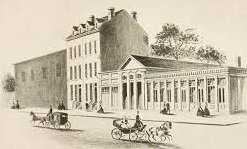
In 1823 Niblo's Garden on Broadway near Prince St. in Manhattan, N.Y. is founded as Columbia Garden, acquired in 1828 by Irish-born coffeehouse owner William Niblo (1790-1878), who turns it into the San Souci theater, and Niblo's Theater in 1834, going on to host P.T. Barnum's first exhibition 1835 and form a vaudeville co. in summer 1837; after being destroyed by a fire on Sept. 18, 1846 and reopened in summer 1849 with 3.2K cap. ($2/seat), it begins producing Italian opera, becoming the best-equipped and most fashionable theater in New York City; it is destroyed by fire in 1872 and rebuilt by dept. store magnate A.T. Stewart; the final performance is given on Mar. 23, 1895.

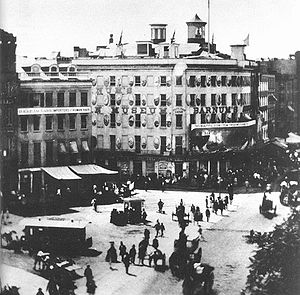
In 1841 Bethel, Conn.-born Phineas Taylor "P.T." Barnum (1810-91) buys Scudder's Am. Museum at the corner of Broadway and Ann St. in New York City, renaming it after himself and starting out as a freakshow, going on to offer strange and unusual attractions, peaking at 15K visitors/day until it burns down in 1865 after servicing 38M paying customers at 25 cents each in a country with a total pop. of 32M; Barnum allegedly coins the slogan "There's a sucker born every minute." Does L. Ron Humbug, er, Hubbard secretly adopt this slogan? :)
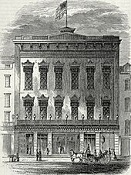
On Sept. 27, 1847 the (Old) Broadway Theatre at 326-330 Broadway and 98 Anthony (Worth) Street in Manhattan, N.Y. (cap. 4.5K) opens, modeled on the Haymarket Theatre in London, becoming the largest theater so far in New York City, closing on Apr. 2, 1859 with a production of Shakespeare's "Antony and Cleopatra".


We were a wrong fit right from the start? On May 10, 1849 the Astor Opera House Riot in Manhattan, New York City that kills 25 and injures 120+ results from a jealousy feud between stage actors Edwin Forrest (1806-72) of the U.S. and William Charles Macready (1793-1873) of England, caused when Forrest hissed him from the audience in 1843 in Edinburgh after an English audience hissed him in Macbeth, and this time Macready plays Macbeth, the riot causing the militia to be called out; after barely escaping with his life, Macready is forced to leave the U.S., and retires from the stage in 1851; in 1852 Forrest's wife Catherine divorces the ham in a sensational divorce trial, which only boosts his career?

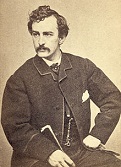
In 1850 the Winter Garden Theatre (originally Tripler's Hall) in New York City at 667 Broadway opens as a venue for Swedish Nightingale Jenny Lind; too bad, when she arrives it isn't finished, causing her to appear at Castle Garden instead; in Dec. 1850 thousands of Freemasons meet there; in Feb. 1842 a memorial service for novelist James Fenimore cooper is held there, presided over by Daniel Webster, with eulogies by Washington Irving and William Cullen Bryant; in 1854 it is rebuilt as the New York Theatre; on May 15, 1855 it is renamed Metropolitan Hall, followed on Dec. 27, 1855 by Laura Keene's Varieties; too bad, the Panic of 1857 causes it to close; in 1859 it is remodeled by Dublin, Ireland-born impresario Dion Boucicault (Dionysius Lardner Boursiquot) (1820-90), who renames it Winter Garden Theatre; on Nov. 25, 1864 Junius Brutus Booth, Junius Brutus Booth Jr., Edwin Booth, and John Wilkes Booth stage a benefit performance of Shakespeare's "Julius Caesar" to raise funds for a statue of Shakespeare in Central Park, after which on Apr. 14 (Good Fri.), 1865 Bel Air, Md.-born John Wilkes Booth (1838-65) asassinates Lincoln at Ford's Theatre in Washington, D.C. while viewing a performance of "Our American Cousin", crying out the words of Brutus "Sic semper tyrannis".

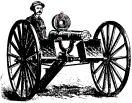
In 1861-5 the horrific U.S. Civil War sees the invention of the first modern weapon when N.C.-born agricultural equipment maker Richard Jordan Gatling (1818-1903) patents the 10-barrel hand-cranked hundreds-of-rounds-per-min. Gatling Gun (the first practical machine gun) just in time for use on some Johnny Rebs; it is first used by the Union Army in 1864, but luckily never sees extensive use.
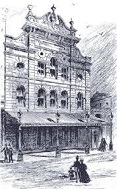
In 1865 Madison Square Theatre (AKA Fifth Ave. Theatre) at Broadway and West 24th St. between Sixth Ave. and Broadway near the Fifth Ave. intersection in Manhattan, N.Y. (cap. 1K) opens, staging Divorce by Augustin Daly in 1871 for 200 perf., going on to pioneer advances in stage technology, theater design, and tour mgt.; it is demolished in 1908.
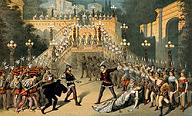
On Sept. 12, 1866 Charles M. Barras', Theodore Kennick's, and Thomas Baker's The Black Crook debuts at 3.2K-seat Niblo's Garden (474 perf.) (5.5 hours), becoming the first English musical; set in 1600 in the Harz Mts. of Germany, about evil Count Wolfenstein, who woos village girl Amina from her fiance Rodolph by having his servant Hertzog make a pact with the Devil, only to be saved by Fairy Queen Stalacta; The Black Domino/Between You, Me and the Post debuts in 1866, becoming the first Broadway musical comedy.
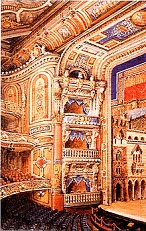

On Feb. 3, 1869 the spectacular modern Booth's Theatre at the corner of 23rd St. and Sixth Ave. in Manhattan, N.Y. opens, built by Bel Air, Md.-born Shakespearean actor Edwin Thomas Booth (1833-93) (brother of Lincoln assassin John Wilkes Booth), featuring a large statue of his Shakeseparean actor father Junius Brutus Booth by sculptor Thomas Ridgeway Gould, and the fist stage lights that can be completely extinguished during a performance; too bad, the public's taste is too low for Shakespeare, and it goes bankrupt, and is sold in Dec. 1881, becoming McCreery & Co. Dept. Store (until 1965).

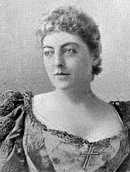




In Dec. 1875 English actor Maurice Barrymore (1849-1905) makes his Broadway debut in in Pique, meeting Philly-born cast member Georgiana Emma "Georgie" Drew (1856-93), then getting married on Dec. 31, 1876, and going on to have the famous Barrymore acting family of Lionel Barrymore (1878-1954) (Macbeth and films), Ethel Barrymore (1879-1959) (Ophelia and Portia), and John Barrymore (1882-1942) (Hamlet), grandfather of Drew Barrymore (1975-).
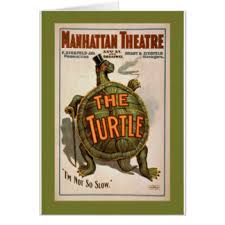
In 1875 the Manhattan Theatre (originally the Eagle Variety Theatre, then the Standard Theatre in 1878-98) at 102 West 33rd St at Sixth Ave. and 33rd St. across from Greeley Square (cap. 1.1K) opens, becoming the home of authorized U.S. debuts of many Gilbert & Sullivan operas, featuring actors Fred Billington, Marie Fedor, Minnie Maddern Fiske, Courtice Pounds, Emily Stevens, Tyron Power St., George Thorne, and Geraldine Ulmar; on Oct. 10, 1881 it debuts Gilbert & Sullivan's comic opera Patience (177 perf.), making $100K in 1907 it switches to movies, becoming the first New York City theater to show movies as the main attraction, adding several vaudeville acts to justify the 10 cent admission price; in 1909 it is demolished to make way for the Gimbels dept. store.
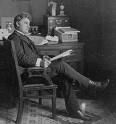
On Nov. 17, 1879 San Francisco, Calif.-born playwright David Belasco (1853-1931) debuts his play Hearts of Oak (co-written by James A. Herne), based on the British play "The Mariner's Compass" by Henry Leslie (1830-81), becoming a hit and making him a fortune; in 1884 after moving to New York City in 1882 and working as a stage mgr. at the Madison Square Theatre and Lyceum Theatre, Belasco begins his producing career, producing, directing, or writing 100+ Broadway plays while discovering and promoting dozens of stage performers incl. Leslie Carter, Maude Adams, Jeanna Eagels, Lenore Ulric, David Warfield, and Barbara Stanwyck; Cecil B. DeMille begins his stage career with Belasco; Belasco goes on to pioneer modern stage lighting incl. colored lights concealed below floor level, tracking spotlights, motorized color wheels, sometimes injecting scents into the ventilators to set the mood.
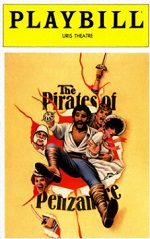
On Dec. 31, 1879 Sir William Schwenck Gilbert (1836-1911) and Sir Arthur Sullivan (1842-1900) debut their comic operetta #5 The Pirates of Penzance; or, The Slave of Duty at the Fifth Avenue Theatre in New York, followed by the Opera Comique in London on Apr. 3, 1880; Frederic is about to be released from his bondage to pirates on his 21st birthday when he learns that his birthday is Feb. 29, meaning that he has to wait another 63 years; the Pirate King, Maj.-Gen. Stanley and his daughters incl. Mabel; incl. The Major-General's Song, with cool lyrics; "I am the very model of a modern major-general,/ I've information vegetable, animal, and mineral,/ I know the kings of England, and I quote the fights historical/ From Marathon to Waterloo, in order categorical;/ I'm very well acquainted, too, with matters mathematical,/ I understand equations, both the simple and quadratical,/ About binomial theorem I'm teeming with a lot o'news,/ With many cheerful facts about the square of the hypotenuse./ I'm very good at integral and differential calculus;/ I know the scientific names of beings animalculous:/ In short, in matters vegetable, animal, and mineral,/ I am the very model of a modern major-general."
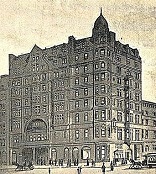
In the early 20th cent. 10 theaters on a single block make 42nd Street in Manhattan, N.Y. internationally famous for its playhouses, starting in 1881 with Wallack's Theatre at 30th St. and Broadway.
In 1883 the Metropolitan Opera House moves to West 39th St. and Broadway, ramping up the Manhattan Theater District, bounded by West 40th St., West 54th St., Sixth Ave., and Eight Ave., incl. Times Square; the section of Broadway that runs through it between 42nd and 53rd Streets is called the Great White Way, gaining its name from its Brush arc lamps; the term is first used by Shep Friedman in the New York Morning Telegraph in 1901.
In 1883 the Herald Square Theatre at 1331 Broadway in Manhattan, N.Y. (cap. 1,150) opens; in 1900 it becomes the first Broadway Theatre owned by the Shubert family; in 1911 after a fire it becomes the first New York theater to be converted into a silent movie theater, and is closed in 1914 after the Garment District expands into the neighborhood and the Broadway Theatre district moves N of 40th Street.
In 1885 Tin Pan Alley is created when a bunch of music publishers move to the same district of Manhattan in New York City on West 28th St. between Broadway (5th Ave.) and 6th Ave. and set up shop, churning out sheet music, their cheap player pianos allegedly sounding like you know whats; after the rise of the phonograph and radio it begins a steep decline by the 1930s.

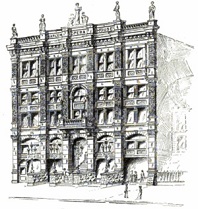
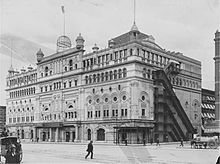
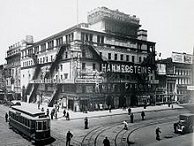
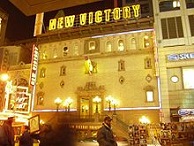
In 1889 wealthy Stettin, Prussia-born Jewish cigar manufacturer Oscar Hammerstein I (184-1919) builds his first theater, the Harlem Opera House at 211 West 125th St. in Harlem, Manhattan, N.Y., becoming the first theater in Manhattan, followed in 1890 by Columbus Theatre on 125th St., in 1893 by the Manhattan Opera House on 34th St., and on Nov. 25, 1895 by the Olympia Theatre at 1514-16 Broadway in Longacre (later Times) Square, which debuts his comic opera Santa Maria before failing, followed in 1899 by the Victoria Theatre at 42nd Street and Seventh Ave., which goes vaudeville in 1904 under the mgt. of his son William "Willie" Hammerstein (1875-1914) (father of Oscar Hammerstein II) before failing in 1915, along with the Paradise Roof Garden atop the Victoria Theatre and Theatre Republic; he follows on Sept. 27, 1900 with the Theatre Republic at 209 West 42nd Street (between 7th and 8th Aves.), which he leases in 1902 to producer David Belasco, who renames it the Belasco Theatre, then changes it in 1910 to the RePublic Theatre; in 1931 Bill Minsky acquires it and turns it into Minsky's Burlesque, featuring stripper Gypsy Rse Lee; in 1942 it becomes the Victory Movie Theater; in 1972 it becomes the first 42nd St. theater to show XXX porno films; in 1990 New 42nd Street Inc., owned by New York City and the state of N.Y. for redevelopment of seven aging theaters between 7th and 8th Aves. takes it over and restores it, and on Dec. 11, 1995 rename it the New Victory Theater, the area's first theater for families and children, and the oldest operating theater in New York City; he follows on Dec. 5, 1904 with the Lews Fields Theatre at 254 West 42nd Street, and in 1906 by his 2nd Manhattan Opera House at 311 West 34th Street to compete with the Metropolitan Opera, followed in 1908 by the Philadelphia Opera House in Philly.
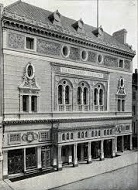
In 1890 the Garrick Theatre (Harrigan's Theatre until 1895) at 67 West 35th St. in Manhattan, N.Y. (cap. 910) opens, producing the comedy Enter Madame on Aug. 16, 1920 (350 perf.); in 1896-1915 Charles Frohman manages it; in 1916 it is acquired by the Shuberts, who lease it to Otto Kahn, who gives it to the Theatre Guild, producing Saint Joan on Dec. 28, 1923, starring Winifed Lenihan, followed by They Knew What They Wanted (Nov. 24, 1924) (192 perf.); in 1925 the Shuberts resume mgt., and after descending to burlesque it closes in 1929.
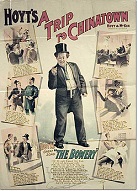
On Nov. 9, 1891 Percy Gaunt and Charles H. Hoyt (1859-1900) debut their musical A Trip to Chinatown (Madison Square Theater, New York) (Nov. 9) (657 perf.) (longest-running Broadway musical until "Irene" in 1919); features the songs The Bowery, After the Ball (first sheet music to sell 1M copies); filmed in 1926 starring Anna May Wong.


In 1892 Polish-born Madame Helena Modjeska (1840-1909) and Mass.-born Otis Skinner (1858-1942) become a big star duo on Broadway.

On Jan. 25, 1893 Boston, Mass.-born blonde-blue actress Ida Conquest (1876-1937) makes her stage debut as First Girl Friend in The Harvest at Miner's Theater on Fifth Ave. in Manhattan, N.Y., going on to become a top Broadway star; her final Broadway appearance is in Henrik Ibsen's "Little Eyolf" (1910) at the Nazimova 39th Street Theatre.

On Jan. 25, 1893 Charles Frohman (1856-1915) and Raphael "Al" Hayman (1847-1917) open the Empire Theatre in New York City across from the Metropolitan Opera House near 40th St., going on to become the #1 New York City playhouse until the 1940s; demolished in 1952; David Belasco's "The Girl I Left Behind Me" is the first production.
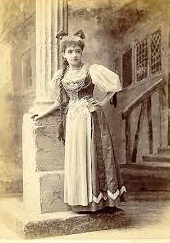
On Oct. 27, 1894 Frank Osmond Carr (1858-1916) and William Schwenck Gilbert (1836-1911) debut their comic opera His Excellency at the Lyric Theatre in West End, London (162 perf.), followed by the Broadway Theatre in New York on Oct. 14, 1895 (88 perf.); produced by George Edwardes; set in Elsinore, Denmark in 1801; stars George Grossmith as Gov. George Griffenfeld, Rutand Barrington as the Prince Regent, Jessie Bond as the gov.'s daughte Nanna, Ellaline Teriss as his other daughter Thora, Alice Barnett as his fiance Dame Hecla Cortlandt, John Le Hay as Syndic Mats Munck, and Charles Kenningham as sculptor Erling Sykke.

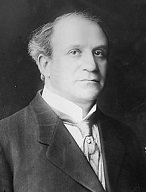
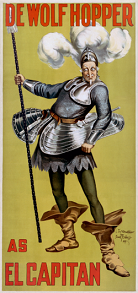
On Apr. 30, 1896 Washington, D.C.-born composer John Philip Sousa (1854-1932) and London, England-born librettist Charles Klein (1867-1915) debut their operetta El Capitan at the Tremont Theatre in Boston, moving to the Broadway Theatre in New York on Apr. 20 (112 perf.), and the Lyric Theatrein London) on July 10, 1889 (140 perf.); stars De Wolf Hopper as Don Errico Medigua, who replaces ex-viceroy Don Luiz Cazarro (T.S. Guise), and secretly has rebel leader El Capitan killed, then impersonates him, after which Cazarro's daughter Estrelda (Edna Wallace Hopper) falls for him, not knowing he's already married to Marganza (Alice Hosmer), and has a daughter Isabel (Bertha Waltzinger); meanwhile the rebels capture Lord Champberlain Senor Amabile Pozzo (Alfred Klein), causing the fake El Capitan to have to lose his rebel army to the Spaniards, after which all ends happily; John W. Parr plays insurgent Scaramba; features the march El Capitan.
In 1896 theatrical mgrs. and booking agents Charles Frohman (1856-1915), Al Hayman (1847-1917), Abraham Lincoln "Abe" Erlanger (1859-1930), Marcus "Marc" Klaw (1858-1936), Samuel Frederic Nixon-Nirdlinger (1848-1918), and Fred Zimmermann of Philly form the Theatrical Syndicate in New York City, which goes on to gain a monopoly over the entire U.S. (until 1910); about this time Woodlawn Cemetery (founded in 1863) in Bronx, N.Y. becomes the cemetery of choice for Jewish, er, theater people, incl. Oscar Hammerstein I, Ida Conquest, Vernon and Irene Castle, Irving Berlin, George M. Cohan, and Antoinette Perry, musicians incl. Miles Davis, Duke Ellington, W.C. Handy, and Max Roach, and writers incl. Joseph Pulitzer, Damon Runyon, Countee Cullen, and Herman Melville.

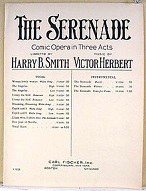
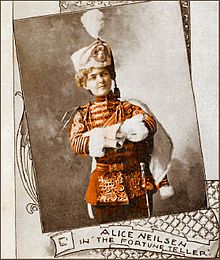
On Mar. 16, 1897 Irish-born, German-raised composer Victor August Herbert (1859-1924) and Harry Bache Smith (1860-1936) debut their comic operetta The Serenade at the Kickerbocker Theatre in New York (79 perf.); Herbert's 2nd Broadway success after "The Wizard of the Nile"; makes a star of soprano Alice Nielsen (1872-1943).
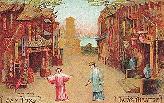
On Oct. 21, 1899 Sidney Jones (1861-1946), Edward Morton (1858-1922), Harry Greenbank (1865-99), Adrian Ross (1859-1933), and Lionel Monckton (1861-1924) debut their musical comedy San Toy, or The Emperor's Own at Daly's Theatre in West End, London (768 perf.), followed by Daly's Theatre in New York on Oct. 10, 1900 (200 perf.), passing "The Geisha" as the 2nd longest-running British musical; stars Marie Tempest as San Toy, daughter of Mandarin Yen How (Rutland Barrington), who is raised as a boy to get around conscription laws requiring daughters of Mandarins to join a regiment in Pekins; she is in love with Capt. Bobby Preston (Hayden Coffin), son of Sir George Bingo Preston (Fred Kaye), British Consul of Pynga Pong, until student Fo Hop (Scott Russell) finds out and blackmails her into marriage; Topsy Sinden plays Trixie.
On Mar. 5, 1900 David Belasco (1853-1931) debuts his play Madame Butterfly at the Herald Square Theatre in New York, based on the 1898 short story by John Luther Long (1861-1927), set in Nagasaki; U.S. Navy Lt. B.F. Pinkerton of the USS Abraham Lincoln marries 15-y.-o. geisha Cio-Cio San (Madame Butterfly) (played by Blanche Bates, followed by Valerie Bergere, and Clara Blandick), then leaves for the states, promising to return "when the robins nest again", but after three years, during which time she has borne his half-breed son, she learns that he has married a white woman, after which she gives her boy a small U.S. flag and a doll, then commits hara-kiri, uttering the soundbyte "To die with honor, when you can no longer live with honor"; incl. "Un Bel Di" (One Fine Day).
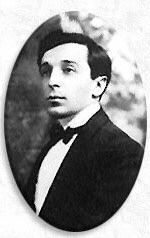
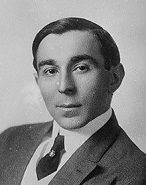
In Mar. 1900 the Shubert Org. (Family), founded by brothers Samuel S. "Sam" Shubert (1878-1905), Levi "Lee" Shubert (1875-1953), and Jacob J. Shubert (1879-1963) of Syracuse, N.Y. moves into New York City, leasing the Herald Square Theatre at the corner of Broadway and 35th Street in Manhattan, putting on shows in rented circus tents to get around the monopolistic Theatrical Syndicate (founded 1886) of Abe Erlanger and Marc Klaw; in 1910 they form the Independent Nat. Theatre Owner's Assoc. to break their monopoly, and finish breaking them in 1922, developing Broadway as the #1 theater district while controlling 1K theaters nationwide, becoming the largest theater empire of the 20th cent., incl. the Winter Garden Theatre and Shubert Theatre.
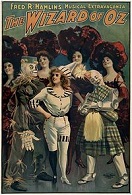
On June 16, 1902 Paul Tietjens (1877-1943) and Glen MacDonough (1870-1924) debut their musical The Wizard of Oz, based on the 1900 L. Frank Baum novel at the Chicago Grand Opera House, moving to the Majestic Theatre in New York on Jan. 21, 1903 (293 perf.), starring Anna Laughlin as Dorothy Gale, Fred Stone as the Scarecrow, David C. Montgomery as the Tin Woodman (Niccolo Chopper) (sans funnel hat, and wearing a Scottish kilt), and Arthur Hill as the Cowardly Lion; incl. Pastoria II, true king of Oz, who ends up as a motorman in Kan. with girlfriend Trixie Tryfle, and Cynthia Cynch, the Lady Lunatic, girlfriend of the Tin Woodman; used as the basis of the 1939 MGM film version.
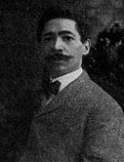
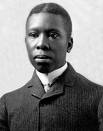
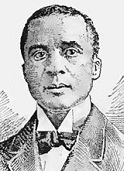
On Feb. 18, 1903 Will Marion Cook (1869-1944), Paul Laurence Dunbar (1872-1906), and Jesse Allison Shipp Sr. (1864-1934) debut In Dahomey: A Musical Comedy in New York Theater in New York City for 53 perf., becoming the first full-length musical written and played by blacks to be performed at a major Broadway house; two Boston con men devise a plan to colonize you know what; ends with a spectacular cakewalk.
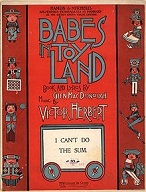
On June 17, 1903 Victor Herbert (1859-1924) and Glen MacDonough (1870-1924) debut their operetta Babes in Toyland at the Grand Opera House in Chicago, moving to the Majestic Theatre in New York on Oct. 13 (192 perf.); and attempt to cash in on "The Wizard of Oz", incl. playing in the same theater (Majestic); filmed in 1934 starring Laurel and Hardy, in 1939 starring Judy Garland and Mickey Rooney, and in 1961 by Walt Disney, and in 1997 by MGM (animated); incl. Babes in Arms, March of the Toys, Toyland.
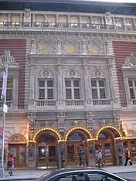
On Oct. 12, 1903 the Lyric Theatre (cap. 1.3K) at 213 West 42nd St. and 214-26 West 43rd St. (complete with two formal entrances) opens with Richard Mansfield's production of Old Heidelberg, going on to produce several Shakespeare plays; in 1906 Sarah Bernhardt appears there; in 1918 it produces Sigmund Romberg's 1917 musical Maytime; on Dec. 8, 1925 the Marx Brothers' musical The Cocoanuts, with books by George S. Kaufman and lyrics by Irving Berlin debuts there (276 perf.) (filmed in 1929); on Feb. 2, 1927 Florenz Ziegfeld debuts his musical Rio Rita (494 perf.),followed on Mar. 13, 1928 by The Three Musketeers (318 perf.); on Nov. 27, 1929 Cole Porter's musical Fifty Million Frenchmen debuts there (254 perf.); in 1934 it is converted into a movie theater; in 1992 it closes, and in 1996-8 it is combined with the former Apollo Theatre to become the Ford Center for the Performing Arts (cap. 1,938), later the Foxwoods Theatre, the Hilton Theatre, and the Lyric Theatre.
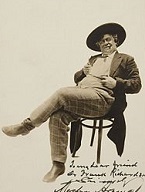
On Nov. 24, 1903 George Ade (1866-1944) debuts his comedy The County Chairman at Wallack's Theatre in New York (222 perf.); produced by Henry W. Savage; stars Maclyn Arbuckle as small-time Antioch County politician Jim Hackler; Anna Buckley plays Chick Elzey; Willis P. Sweatnam plays Sassafras Livingston in blackface; filmed in 1914, and in 1935 starring Stepin Fetchit as Sassafras.
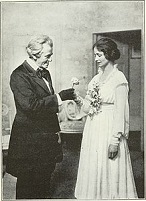
On Sept. 26, 1904 Charles Klein (1867-1915) debuts his comedy-drama The Music Master at the Belasco Theatre in New York (124 perf.), moving to the Bijou Theatre in New York (511 perf.); produced and dir. by David Belasco; stars David Warfield as Anton von Barwig; incidental msuic by William Furst.

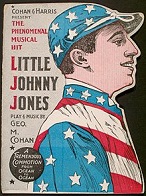
In Oct. 1904 Providence, R.I.-born George M. (Michael) Cohan (1878-1942) debuts his first musical Little Johnny Jones at the Parsons Theatre in Hartford, Conn., moving to the Liberty Theatre in New York on Nov. 7, debuting one block from the subway terminal in Times Square a few days after it opens (52 perf.), followed in 1905 by the New York Theatre in New York) (200 perf.); dir. by Cohan; produced by Sam H. Harris; Am. jockey Johnny Jones (inspired by Tod Sloan) goes to ride his horse Yankee Doodle in the English Derby, and falls for San Francisco copper heiress Goldie Gates, who disguises herself as a man to see if he really loves her; filmed in 1924 and 1929; portrayed in the 1942 film "Yankee Doodle Dandy" starring James Cagney; launches Cohan's flag-waving career on his way to becoming "the King of Broadway", and "the Man Who Owns Broadway"; features the songs Give My Regards to Broadway, and The Yankee Doodle Boy.
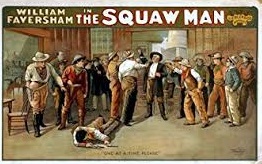
On Oct. 23, 1905 Edwin Milton Royle (1862-1942) debuts his play The Squaw Man at Wallack's Theatre in New York) (222 perf.); stars William Faversham as Englishman Capt. James Wynnegate AKA Jim Carson, who goes West and falls in love with an Indian babe, and William S. Hart as bad guy Cash Hawkins; filmed in 1914.
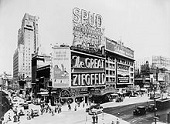
On Sept. 21, 1906 the Astor Theatre at 1537 Broadway at West 45th St. in Times Square, New York City opens with Shakespeare's "A Midsummer's Night Dream"; in 1925 Loew's Theatres acquires it and turns it into a first-run movie theater for MGM, debuting with "The Big Parade" (96 weeks); it closes in 1972.

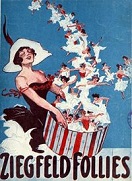
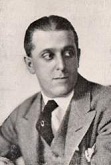
On July 8, 1907 Florenz Ziegfeld Jr. (1867-1932) presents the first of his 21 Ziegfeld Follies (1907-31) on the Jardin de Paris roof theater atop the the New York Theatre; revivals are staged in 1934, 1936, and 1943, dir. by Canadian-born John Murray Anderson (1886-1954); they become a radio program in 1932 and 1936.
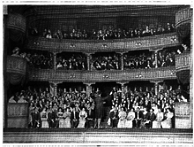
On May 22, 1909 Raymond Hubbell (1879-1954) and Glen MacDonough (1870-1924) debut their musical comedy The Midnight Sons at the Old Broadway Theatre in New York City (257 perf.), starring George A. Schiller as Sen. Constant Noyes, whose four sons Tom, Dick, Harry, and Jack scramble to find jobs; stars Blanche Ring as Mrs. Carrie Margin, who sings the hit song I've Got Rings on My Fingers (And Bells On My Toes).
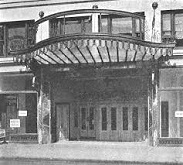
On Sept. 4, 1909 the Gaiety Theatre at 1547 Broadway in New York City opens with "The Fortune Hunter", introducing the sunken orchestra and pillar-free sight lines; in 1932 it becomes Minsky's Burlesque, featuring performances by Gypsy Rose Lee, Ann Corio, and Abbot and Costello; in 1943 after Mayor Fiorello LaGuardia cracks down on burlesque, it becomes the Victoria Theatre, which features vaudeville acts incl. Stepin Fetchit; in Sept. 1943 it becomes a movie theater, with a roof sign stretching across the neighboring Astor Theatre that is claimed to be the world's largest, ending up advertising Budweiser; in 1980 it is renamed the Embassy 5; it is demolished in 1982 along with four other theaters to make room for the New York Marriott Marquis Hotel; meanwhile the office bldg. in the top floors becomes known as the Black Tin Pan Alley for its black composers barred from the Brill Bldg. incl. Perry Bradford, W.C. Handy, Harry Pace, Will Vodery, and Bert Williams.
On Sept. 6, 1909 the Comedy Theatre at 110 West 41st St. in Manhattan, N.Y. (cap. 687) opens with The Melting Pot, becoming the place where Katharine Cornell and Ruth Draper make their debuts; in 1927 Eugene O'Neill's In the Zone debuts, becoming his first Broadway play; in 1937 it reopens as the Mercury Theatre, debuting Orson Well's adaptation of Shakespeare's "Julius Caesar", in which he plays Brutus; on Oct. 31, 1938 reporters hound Welles during an all-night rehearsal of Georg Buechner's Danton's Death the day after his infamous The War of the Worlds radio broadcast there; in 1939 it switches to classic Yiddish theater; in 1942 it is demolished.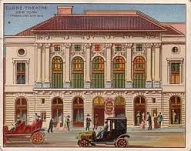
On Jan. 10, 1910 the Globe Theatre at 205 West 46th St. in Manhattan, N.Y. (cap. 1,509) opens with a production of the musical "The Old Town", featuring a rollback ceiling and seats individually cooled by ice and heated by hot air vents; in 1930s it becomes a movie theater; in 1957 it is acquired by Playhouses, Inc., which renames it the Lunt-Fontanne Theatre, reopening on May 5, 1958 with Friedrich Durrenmatt's The Visit, starring Alfred Lunt and Lynn Fontanne.

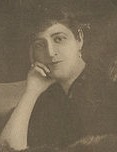
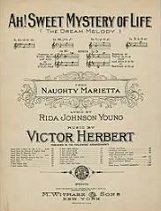
On Oct. 24, 1910 Victor Herbert (1859-1924) and Baltimore, Md.-born librettist-playwright-songwriter Rida Johnson Young (1875-1926) debut their operetta Naughty Marietta in Syracuse, N.Y., moving to the New York Theatre in New York on Nov. 7 (136 perf.); set in 1780 New Orleans, La., Capt. Richard Warrington (Orville Harold) and his lt. Sir Harry Blake (Raymond Bloomer) attempts to unmask and capture French pirate Bras Pique, gaining the aid of runaway Contessa Marietta D'Altena (Emma Trentini); Herbert's greatest success; features the songs Italian Street Song, Ah! Sweet Mystery of Life, and I'm Falling in Love With Someone; filmed in 1935 starring Nelson Eddy and Jeanette MacDonald.
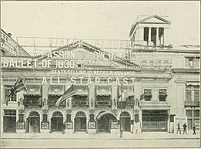
On Mar. 10, 1911 the Winter Garden Theatre at 1634 Broadway in Manhattan, N.Y. between 50th and 51st Sts. (cap. 1,526) (built in 1896 as the Am. Horse Exchange), founded by the Shubert brothers opens with the Jerome Kern musical La Belle Paree, launching the career of Al Jolson.
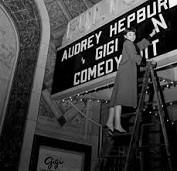
On Apr. 27, 1911 the Fulton Theatre (originally the Folies-Bergere until Oct. 20) at 210 West 46th Street in Manhattan, N.Y. opens; on Sept. 22, 1911 Mae West makes her Broadway debut, and is discovered by The New York Times; in 1955 it is renamed the Helen Hayes Theatre; it is demolished in 1982, and the Little Theatre at 240 West 44th Street (opened Mar. 12, 1912) is renamed in Hayes' honor.
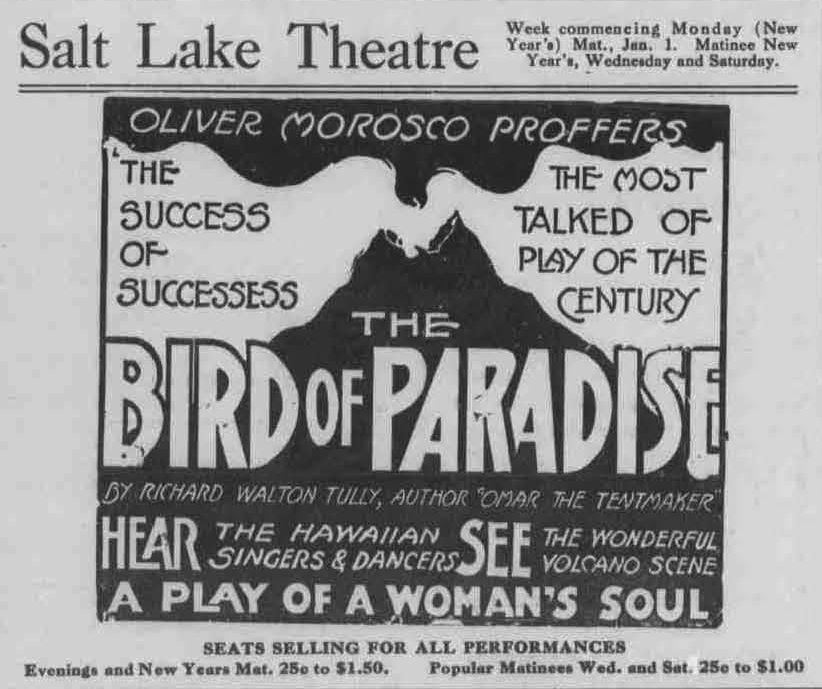
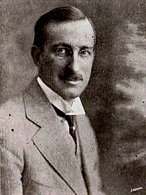
On Jan. 8, 1912 Nevada City, Nev.-born playwright Richard Walton Tully (1877-1945) debuts his play Bird of Paradise: A Play of a Woman's Soul at Daly's Theater in New York (112 perf.); awaiian princess Luana falls for Dr. Paul Wilson, who saves the people from leprosy before sacrificing himself to the volcano god; Hawaiian male singers Kolomoku, Waiwaiole, Kaiawe, Kawala, and Aoka sing "Mauna Kea", "Waialae", and "Ku'u Home" (Old Plantation) while playing the guitar, ukulele, steel guitar, and ipu, introducing Hawaiian music to Americans, along with the Hawaiian words pau (finished), wiki wiki (hurry up), pana hana (work), aloha (greetings), nui (love to you), and pilikea (trouble); after it is featured in the 1915 Panama-Pacific Internat. Exposition in San Francisco, Calif. in 1915, Hawaiian music outsells all other styles in the U.S. in 1916.

On Aug. 12, 1912 the 48th Street Theatre at 157 West 48th Street in Manhattan, N.Y. opens, debuting the play "Just Like John" by George Broadhurst; on Apr. 18, 1926 it stages the prof. debut of Martha Graham; it goes on host "The Squall" by Jean Bart (Nov. 11, 1926), "Puppy Love" starring Spring Byington (1926), "The Pagan Lady" starring Leonore Ulric (1930), and "Unexpected Husband" starring Josephine Hull (1931); in 1937 it is acquired by Sam H. Grisman, who renames it the Windsor Theatre, hosting plays for the Internat. Ladies' Garment Workers' Union; on Sept. 1, 1943 it reverts to its original name, going on to host the play "Harvey" by Mary Coyle Chase on Nov. 1, 1944; too bad, on Aug. 23, 1955 a rooftop water tank falls through the roof, spilling 10K gal. of water and causing the bldg. to be demolished.
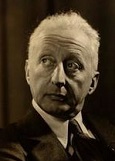

On Nov. 13, 1912 New York City-born Jerome David Kern (1885-1945), Rida Johnson Young (1875-1926), and Paul West debut their Western musical-comedy The Red Petticoat at Daly's 30th St. Theatre in New York, moving to the Broadway Theatre in New York (61 perf.); tough lady barber Sophie Brush in the rough silver-mining town of Lost River, Nev. gets her man; Kern's first complete score.
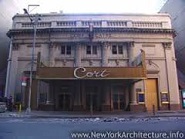
On Dec. 20, 1912 the Cort Theatre at 138 West 48th St. in Manhattan, N.Y. (cap. 1,082) opens, designed by Thomas W. Lamb for John Cort (1861-1929), with a Louis XVI interior, a Pavanozza marble lobby, and a lighted plaster-glass proscenium stage arch, debuting Peg o' My Heart, starring Laurette Taylor (603 perf.); in 1927 it is acquired by the Shubert Org.; in 1969-72 it is used as the studio for "The Merv Griffin Show".
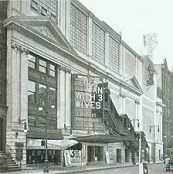
In 1912 the 44th Street Theatre (originally Weber and Fields' Music Hall until 1915) at 216 West 44th St. opens; in 1918 the Roof Garen becomes the Nora Bayes Theatre; in the 1935-9 it presented shows by the Federal Theatre Project, sponsored by the Works Progress Admin.; in 1942 the basement becomes the Stage Door Canteen; in June 1945 it is demolished.

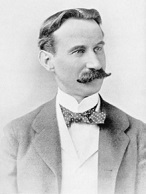
On Mar. 24, 1913 the Palace Theatre at 1564 Broadway (at West 47th St.) in New York City (cap. 1,743) opens, becoming the home of vaudeville and the #1 booking stage in the U.S. until 1929 after tyrannical owner Edward Franklin Albee II (1857-1930) teams with Joseph P. Kennedy to found the Keith-Albee Orpheum Corp. on Jan. 28, 1928, which is acquired in May by RCA and turned into RKO (Radio-Keith-Orpheum) Pictures, turning their vaudeville circuit into a movie theater chain.

On May 26, 1913 the Actors' Equity Assoc. (AEA) labor union is organized by 12 theater actors in New York City, with actor-playwright Francis Wilson (1854-1935) as pres. #1, working along with the Am. Guild of Variety Artists (AGVA) (founded 1939) and the Screen Actors Guild (SAG) (founded 1912).
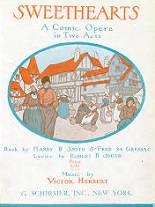
On Sept. 8, 1913 Victor Herbert (1859-1924), Harry Bache Smith (1860-36), and Robert Bache Smith (1875-1951) debut their operetta Sweethearts at the New Amsterdam Theatre in New York, followed by the Liberty Theatre in New York on Nov. 10 (136 perf.); stars Christie MacDonald as Princess Jeanne, daughter of King Rene of Zilinia, who was smuggled as an infant to Bruges doesn't know she's a princess, while the monk Mikel Mikeloviz conspires to put her on the throne in the place of heir presumptive Prince Franz, who travels in disguise and falls for her; features the song On Parade; filmed in 1938 starring Jeanette MacDonald and Nelson Eddy, becoming the first all-Technicolor MGM film; revived at the Shubert Theatre in New York on Jan. 21, 1947 (288 perf.).
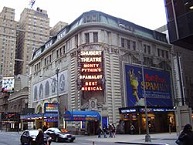
On Oct. 2, 1913 the Shubert Theatre at 225 West 44th Street in Manhattan, N.Y. next to the Booth Theatre (connected by the private Shubert Alley) (cap. 1,460) opens with Shakespeare's "Hamlet" starring Sir John Forbes-Robertson, followed on Oct. 21 by George Bernard Shaw's "Caesar and Cleopatra", going on to host many Tony Awards; the top floors house the offices of the Shubert Org; in 1975-90 it hosts "A Chorus Line" for a record 6,137 perf.
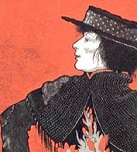
On Oct. 16, 1913 George Bernard Shaw (1856-1950) debuts his play Pygmalion at the Hofburg Theatre in Vienna, followed by the Irving Place Theatre in New York on Mar. 24, 1914, and His Majesty's Theatre in London on Apr. 11, 1914 (118 perf.); based on the Greek myth of Pygmalion of Cyprus, who fell in love with a statue he sculpted; stars Mrs. Patrick Campbell (1865-1940) as Cockney flower girl Eliza Doolittle, whom he wrote the part for, who might have been based on Alexander Graham Bell's father Alexander Melville Bell (1819-1905); later made into the musical "My Fair Lady" (1956); fear of ridicule causes him to debut it in German in Vienna, after which he gets braver and debuts it in New York (in German) followed by London; "The English have no respect for their language, and will not teach their children to speak it." (preface)
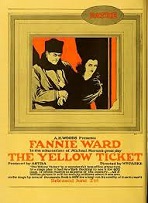

On Jan. 20, 1914 Michael Morton (1864-1931) debuts his play The Yellow Ticket at the Eltinge 42nd St. Theatre in New York (183 perf.); stars John Barrymore as Am. newspaperman Julian Rolfe (based on Julian Ralph), who rescues gorgeous Jewish Russian ho Miss Marya Varenka; also stars A.C.P. Evans and Emmett Corrigan; makes a star of Florence Reed (1883-1967), who plays Varenka; filmed in 1916, 1918, and 1931.
On Feb. 13, 1914 (Fri.) the Am. Society of Composers, Authors and Publishers (ASCAP) is founded at the Hotel Claridge in New York City by George M. Cohan, Victor Herbert, Louis Hirsch, John Raymond Hubbell, Glen MacDonough, George Maxwell (pres. #1) et al. to collect music royalties; in 1919 it signs a reciprocal agreement with the Performing Rights Society of Great Britain.




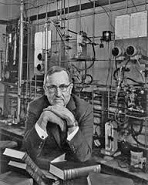
On Aug. 4, 1914 - Nov. 11, 1918 the horrific World War I causes 15M deaths and 39M military casualties. and destroys the Old Order of white formerly Christian Europe. On Feb. 26-28, 1915 the Germans first use a Flamethrower (Flame Projector) in the village of Douaumont, France near Verdun, becoming the first of 653 flamethrower attacks in the war. On Apr. 1, 1915 French aviator Roland Garros (1888-1918) becomes the first pilot to shoot down an aircraft using a deflector gear, which allows shooting through the propeller; after more Vs against German aircraft on Apr. 15 and Apr. 18, he is shot down and the Germans capture his plane, after which Dutch designer Anthony (Anton Herman Gerard) Fokker (1890-1939) clones then improves the deflector gear into the synchronization (interrupter) gear, mounting them on the new Fokker E.I. in Aug., beginning the Fokker Scourge (Scare) as they shoot down nearly every enemy aircraft they encounter and generate the first German aces, incl. Max Immelmann (1890-1916); next year the French counter with the Nieuport 11 Bebe (Bébé), in which the gun is mounted on the top wing clear of the prop, and the British with the Royal Aircraft Factory F.E.2b and Airco DH.2 (Feb. 1916), which mount the engine backwards with the prop in back, causing them to be called "pushers", ending the Fokker Scourge by spring 1917. In 1915 arsenic-based vomiting-sneeze gas Adamsite (DM) (diphenylaminechlorarsine) is synthesized by German chemist Heinrich Otto Wieland (1877-1957); in 1918 Am chemist Roger Adams (1889-1971) duplicates it, and both sides stockpile it, but it is allegedly never used on the battlefield. On Mar. 22, 1916 the British have their first success with their new Depth Charge off the SW coast of Ireland, destroying a German U-boat. Are you used to Hell yet, try this? On Sept. 15, 1916 Winston Churchill's pet project the Tank (Russian Water Closet) (Char-Schneider) is first used by the Brits in the Somme.
In 1914 the Washington Square Players are formed in Manhattan, N.Y., moving into the Comedy Theatre in 1915; in 1918 after producing Elmer Rice's play The Home of the Free, they disband and form the Theatre Guild in New York City to produce non-commercial works by Am. and foreign playwrights, helping contribute to the success of Broadway in the 1920s-1970, producing 228 plays by 1996 incl. 18 by George Bernard Shaw, and seven by Eugene O'Neill, and introducing Maxwell Anderson, Philip Barry, Sidney Hoard, William Saroyan, and Robert E. Sherwood; Pres. JFK engages it to assemble a co. headed by Helen Hayes to tour the capitals of Europe and South Am. with a repertoire incl. William Gibson, Thornton Wilder, and Tennessee Williams; the last play produced is "State Fair" in 1996.
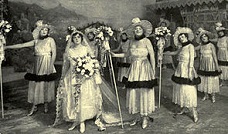
On Dec. 2, 1915 Rudolf Friml (1879-1972) and Otto Hauerbach (1873-1963) debut their operetta Katinka at the Park Theatre in Morristown, N.J., moving to the 44th Street Theatre in New York on Dec. 23 (220 perf.); produced by Arthur Hammerstein; Katinka ("pure") (May Naudain) is forced to marry Russian ambassador to Austria Boris Strogoff (Lorrie Grimaldi), while her heart belongs to his attache Ivan (Sam Ash); originally titled "Elaine" after Hammerstein's daughter, who left Broadway for the movies; Friml marries chorus singer Blanche Betters in 1917 and divorces her in 1919, causing a New York judge to deny his naturalization application in 1921; debuts in the U.K. on Aug. 30, 1923 at the Shaftesbury Theatre starring Helen Gilliland (108 perf.).
In 1915 the Neighborhood Playhouse (demolished 1927) is founded in a Jewish ghetto on Grand St. near its intersection with E. Broadway in New York City, launching the Little Theater Movement; the playhouse closes in 1927, then reopens in 1928 as the Neighborhood Playhouse School of the Theatre at 340 East 54th St.
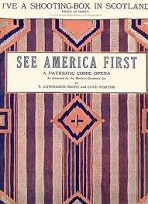

On Mar. 28, 1916 Cole Porter (1891-1964) and T. Lawrason Riggs (1888-1943)) debut their musical See America First at the Maxine Elliott Theatre in New York (15 perf.); Porter's first mediocre success, a spoof of George M. Cohan patriotic musicals, about Polly (Dorothie Bigelow), daughter of Sen. Huggins (Sam Edwards), who sends her out West to a finishing school to find a "real man", causing her real beau Percy the Duke (Clifton Webb) from London to dress as a cowboy and sneak in; Riggs loses $35K, abandons Broadway and becomes a Roman Catholic priest, the first Roman Catholic chaplain of Yale U.; features the songs I've a Shooting Box in Scotland (recorded by Victor Records, becoming the first commercial recording of a Porter song), See America First.
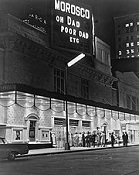
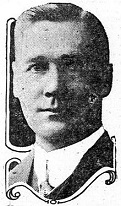
On Feb. 5, 1917 the Morosco Theatre at 217 West 45th Street in Manhattan, N.Y. (cap. 955) opens, built by the Shuberts in gratitude to Oliver Morosco (Oliver Mitchell) (1875-1945) for helping them break the Theatrical Syndicate, starting with the musical "Canary Cottage" by Morosco and Earl Carroll; it is demolished in 1982 despite a massive Save the Theatres protest movement led by Joseph Papp.
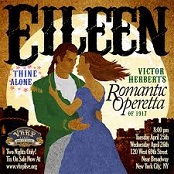
On Mar. 19, 1917 Victor Herbert (1859-1924) and Henry Blossom (1866-1919) debut the operetta Eileen (The Hearts of Erin) at the Shubert Theatre in New York (64 perf.); his attempt at an Irish musical to celebrate his homeland; based on the 1835 novel Rory O'Moore by Herbert's grandfather Samuel Lover; an Irish revolutionary in 1798 is arrested for treason by the British, and his noble sweetheart Eileen helps him escape by disguising him as a servant; produced by Joe Weber; the tour ends 3 mo. in after the sets burn; "Mr. Blossom gathered his material and atmosphere by reading for quite half an hour in some public library" (Alexander Woolcott); WWI causes musical tastes to change, causing his career to decline; features the song Thine Alone.
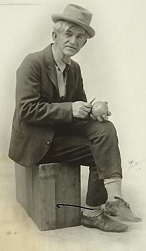
On Aug. 26, 1918 Winchell Smith (1871-1933) and Frank Bacon (1864-1922) debut their comedy Lightnin' ("A Live Wire American Comedy") at the Gaiety Theatre in New York (1,291 perf.), becoming the first production with 1K+ performances; produced by John Golden; stars Frank Bacon as big mouth Civil War vet Lightnin' Bill Jones, who lives in Calivada, where his wife operates a seedy hotel on the Calif.-Nev. state line for quicky divorce couples, and almost loses it to a group of out-of-town businessmen until young atty. John Marin (Ralph Morgan) saves him.
In June 1919 the Red Summer of 1919 sees strikes all over the U.S. by steel workers to dressmakers, accompanied by lynchings of blacks in the South; in Aug. the Actors' Revolt sees the Actors Equity Assoc. successfully strike on Broadway, gaining the right to be paid for rehearsals, free costumes, and transportation home after flops.
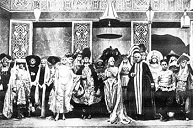
On Sept. 17, 1919 Charles Cuvillier (1877-1955), Douglas Furber (1885-1961), Fred Thompson (1884-1949), and Worton David debut their musical Afgar, or the Andalusian Leisure at the London Pavilion in West End, London (300 perf.), moving to the Central Theatre in New York on Nov. 8, 1920 (168 perf.); stars Irving Beebee as Don Juan Jr., who is imprisoned within sight of a Moorish harem to punish him for his ways, and makes friends with harem girl Zaydee (Alice Delysia), who organizes a strike demanding his release plus husbands for each girl.
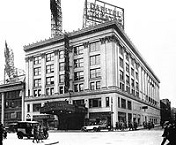
On Oct. 24, 1919 the Capitol Theatre at 1645 Broadway in Manhattan, N.Y. N of Times Square across from the Winter Garden Theatre (cap. 4K) opens; in 1924 it becomes the flagship of the Loews Theatres chain, and their premiere site for MGM films; In Nov. 22 it debuts The Capitol Theatre Family Show, which is broadcast on the NBC Blue Network on Mar. 7, 1927-July 27, 1931; in 1926-9 Capitol Theatre features light classical concerts led by Russian-born violinist Leo Zeitlin (1884-1930); in 1964 it is converted for Cinerama wide screen films; on Sept. 16, 1968 after debuting the 1968 film "2001: A Space Odyssey" it closes with an all-star benefit featuring Bob Hope and Johnny Carson.
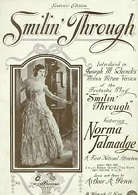
On Dec. 30, 1919 Jane Cowl (1883-1950) and Jane Murfin (1884-1955) (under alias Allan Langdom Martin) debut their play Smilin' Through at the Broadhurst Theatre in New York) (175 perf.); based on the 1919 song by Arthur A. Penn; Irish babe Kathleen Dungannon love Kenneth Wayne, but her adopted father John Carteret is opposed because of the memory of his thwarted love for her aunt Moonyean Clare (Jane Cowl), who visits him as a ghost; filmed in 1922, 1932, and 1941.
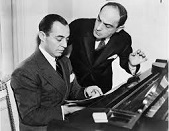
In 1919 Queens, N.Y.-born composer Richard Charles Rodgers (1902-79) meets Harlem, N.Y.-born lyricist Lorenz Milton "Larry" Hart (1895-1943), and after Rodgers almost quits show biz to sell children's underwear, they score their first hit with the musical The Garrick Gaieties, featuring the hit song (We'll Have) Manhattan; after breaking up in 1943 just before Hart's Nov. 22, 1943 death from alcoholism, Rodgers partners with Oscar Hammerstein II, going on to become the first to win an Emmy, a Grammy, an Oscar, and a Tony, along with a Pulitzer Prize (2nd is Marvin Hamlisch).
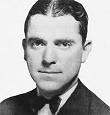
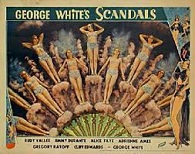
In 1919 New York City-born gorgeous white entertainer George ('Eassy) White (George Weitz?) (1891-1968), popularizer of the Turkey Trot at the Ziegfeld Follies dance debuts George White's Scandals on Broadway (ends 1939), modeled after the Ziegfeld Follies, known for half-dressed chorus girls strutting to the Scandal Walk, with scores by George Gershwin, Richard A. Whiting et al., introducing and popularizing African-Am. dances incl. the Charleston, Black Bottom, and Turkey Trot to white audiences, along with songs incl. Lucky Day (1926), and Life is Just a Bowl of Cherries (1931) (both written by Ray Henderson, Buddy G. DeSylva, and Lew Brown), going on to launch the careers of Ray Bolger, Louise Brooks, W.C. Fields, Bert Lahr, Ethel Merman, Ann Miller, Helen Morgan, Eleanor Powell, the Three Stooges, Rudy Vallee, and Alice White; the 1934 film "George White's Scandals" is the film debut of Alice Faye.

On Feb. 3, 1920 New York City-born Eugene Gladstone O'Neill (1888-1953) debuts his first play Beyond the Horizon at the Morosco Theatre in New York, moving to the Criterion Theatre in New York on Feb. 24, and the Little Theatre in New York on Mar. 9 (Pulitzer Prize); dir. by Homer Saint-Gaudens; the first native Am. tragedy?; farm brothers Andrew and Robert, Andrew's girl Ruth, and sea captain Uncle Dick. On Nov. 1, 1920 he debuts his first hit The Emperor Jones at the Playwright's Theatre in New York (204 perf.); African-Am. Pullman porter Brutus Jones (Charles Sidney Gilpin) kills another black man in a dice game, and escapes to a small backward island in the West Indies, exploiting the residents' ignorance and superstitions to gain power.
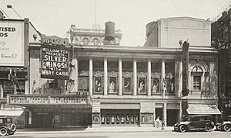
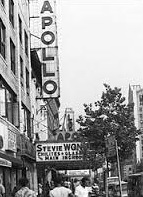
On Sept. 30, 1920 the Times Square Theatre at 217 West 42nd St. in Manhattan, N.Y. E of the Lyric Theatre (cap. 1,032) opens, with Florence Reed starring in "The Mirage"; on Nov. 17 the Apollo Theatre at 223 West 42nd St. in Manhattan opens, sharing its facade with the Times Square Theatre, debuting the Ira and George Gershwin musical Strike Up the Band on Jan. 14 (191 perf.), and George White's Scandals before turning into a movie theater until the late 1970s; in 1990 the New 42nd Street org. merges it into the new Ford Center, later called the Lyric Theatre.
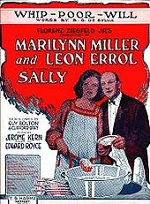
On Dec. 21, 1920 Jerome Kern (1885-1945), Victor Herbert (1859-1924), Clifford Grey (1887-1941), Buddy De Sylva (1895-1950), P.G. Wodehouse (1881-1975), Anne Caldwell (1868-1936), and Guy Bolton (1884-1979) debut their musical Sally at the New Amsterdam Theatre in New York (570 perf.), followed by the Winter Garden Theatre in Camden, London in 1921 (387 perf.); Broadway production is the debut of Evansville, Ind.-born Marilyn Miller (Mary Ellen Reynolds) (1898-1936) as Sally, a dishwasher at the Alley Inn, who poses as a famous foreign ballerina and joins the Ziegfeld Follies, rising to fame, starring in a ballet and getting married; filmed in 1929; features the song Look for the Silver Lining.
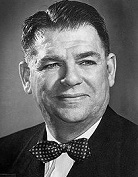
In 1920 after dropping out of law school, New York City-born librettist Oscar Greeley Clendenning Hammerstein II (1895-1960) (grandson of New York City impresario Oscar Hammerstein I) debuts his first musical Always You on Broadway, going on to become a producer and co-write 850 songs in collaboration with Jerome Kern, Vincent Youmans, Rudolf Friml, Richard A. Whiting, Sigmund Romberg, and Richard Rodgers in musicals incl. "Oklahoma!", "Carousel", "South Pacific", "The King and I", and "The Sound of Music".

On May 23, 1921 Baltimore, Md.-born pianist-composer James Hubert "Eubie" Blake (1887-1983) and Indianapolis, Ind.-born jazz composer-playwright Noble Sissle (1889-1975) debut their jazz musical Shuffle Along on Broadway at Daly's 63rd St. Theatre, dir. by Walter Brooks, running for 484 perf. (until July 15, 1922), becoming the first major Broadway production in over a decade written, produced, and performed entirely by African-Ams., and the first black love story, with blacks not restricted to balcony seats; makes stars of Josephine Baker, Adelaide Hall (as Jazz Jasmine), Florence Mills (as Ruth Little), Fredi Washington, Roger Matthews (as Harry Walton), and Paul Robeson, causing "curtain time traffic jams" on 63rd St; about corrupt politicians Sam and Steve, who run for mayor in Jimtown and agree to appoint the loser as chief of police, until virtuous Harry Walton wins the next election and runs them out of town; makes the observation that the lighter an African-Am. woman's skin is, the more desirable she is; features I'm Just Wild About Harry (adopted by Harry Truman for his pres. campaign theme), Love Will Find a Way. (In) Honeysuckle Time, Shuffle Along Overture, If You Haven't Been Vamped by a Brownskin, You Haven't Been Vamped at All, I'm Simply Full of Jazz, and Bandana Days; after leaving New York City it becomes the first black musical to play in white theaters across the U.S., while opening up Broadway to black actors, although only plots portraying blacks as half-civilized become acceptable.
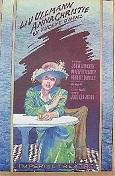
On Nov. 2, 1921 Eugene O'Neill (1888-1953) debuts his play Anna Christie at the Vanderbilt Theatre in New York (Pulitzer Prize); original title "Chris Christopherson"; a Swedish ho in 1910 Provincetown tries to turn her life around aboard coal barge Simeon Winthrop captained by her old father Chris C. Christopherson; filmed in 1923 starring Blanche Sweet, and in 1930 starring Greta Garbo (her first talkie, with the ad slogan "Garbo Talks!").
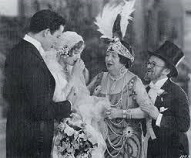
On May 23, 1922 Anne Nichols (1891-1966) debuts her comedy Abie's Irish Rose at Fulton Theatre in New York (2,237 perf.); an Irish Roman Catholic girl marries a Jewish man despite their families' objections; filmed in 1928 and 1946.
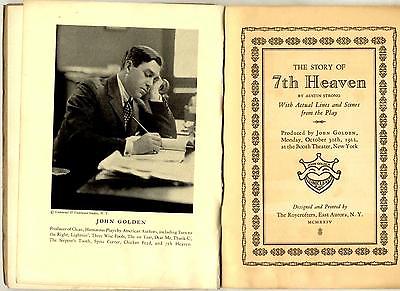
On Oct. 30, 1922 Austin Strong debuts his play Seventh Heaven at the Booth Theatre in New York (704 perf.); produced by John Golden; stars Helen Menken as Diane, and George Gaul as Chico, a street cleaner who saves her life; also features Frank Morgan as Brissac; filmed in 1927 as "7th Heaven", and 1937.
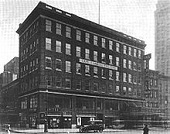
In 1922 the Earl Carroll Theatre at 753 Seventh Ave. & West 50th Street in Manhattan, N.Y. opens, reopening on a more lavish scale in Aug. 1931, billed as "the largest legitimate theater in the world" before going bankrupt in 1932 and purchased by Florenz Ziegfeld, who renames it the Casino Theatre, successfully reviving "Show Boat" before going bankrupt in 1933, after which it is acquired by Billy Rose, who turns it into a nightclub; in 1939, and in 1940 it becomes a Woolworth's store; a second Earl Carroll Theatre at 6230 Sunset Blvd. in Hollywood, Calif. opens on Dec. 26, 1938, featuring "the most beautiful girls in the world", with a 20-ft.-high neon portrait of Beryl Wallace; in 1948 after Carroll and Wallace are killed in the crash of Airlines Flight 624, it is sold, and operates until the 1950s.


On Feb. 10, 1923 Portland, Maine-born Owen Davis Sr. (1874-1956) debuts his play Icebound at the Sam H. Harris Theatre in New York City (145 perf.) (Pulitzer Prize); Ben Jordan (Robert Ames) burns a barn in Veazie, Maine and flees prosecution, then learns that his mother has died, leaving everything to her ward Jane Crosby (Phyllis Povah), but only if she marries Ben and straightens him out; too bad, after she helps him go straight he goes after another babe, causing her to give up the dough, after which he flops and goes back to her; filmed in 1924; "The story of narrow, icebound life and a man who strove to breakthrough".

On Oct. 8, 1923 Walter L. Rosemont and Ballard MacDonald (1882-1935) debut their play Battling Butler at the Selwyn Theatre in New York, moving to the Times Square Theatre in New York on Apr. 21, 1924 (313 perf.); produced by George Choos; dir. by Guy F. Bragdon; stars Charles Ruggles as Alfred Butler, who masquerades as a champion boxer to get a mountain girl; filmed in 1926 starring Buster Keaton and Sally O'Neil.
On Oct. 9, 1923 Owen Davis Sr. (1874-1956) debuts his play The Nervous Wreck at the Sam H. Harris Theatre in New York (279 perf.); from a story by E.J. Rath; stars Edward Arnold as Bob Wells, Joseph Brennan as Jud Morgan, and Hobart Cavanaugh as Mort; filmed in 1926, and in 1944 as "Up in Arms"; made into the 1930 musical film "Whoopee!" starring Eddie Cantor.
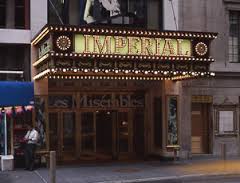
On Dec. 25, 1923 the Imperial Theatre at 249 W. 45th St. in Manhattan, N.Y. (cap. 1,417) opens with the musical "Mary Jane McKane" by Oscar Hammerstein II (1895-1960) and Vincent Youmans (1898-1946).
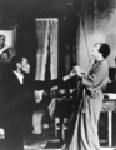
On May 15, 1924 Eugene O'Neill (1888-1953) debuts his play All God's Chillun Got Wings at the Greenwich Village Theatre in New York; about miscegeneration; stars Paul Robeson as Jim Harris, the black husband of abusive white woman Ella Downey (Mary Blair) of Lower New York City, who ruins his career as an atty. after she is called a "nigger-lover"; after Robeson kisses Blair's hand on stage, it causes a nat. uproar, causing it to shut down after the Oct. 24 performance.
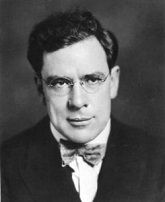
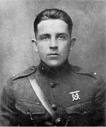
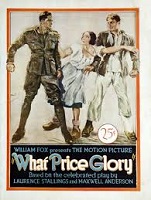
On Sept. 3, 1924 Atlantic, Penn.-born James Maxwell Anderson (1888-1959) and Macon, Ga.-born Laurence Tucker Stallings (1894-1968) debut their comedy-drama What Price Glory? at the Plymouth Theatre in New York) (433 perf.), about 1st Sgt. Quirt and Capt. Flagg, two U.S. Marines in WWI France; stars Louis Wolheim; "toot goddam sweet" and other profanity pisses-off military and religious groups, who attempt censorship, until journalist Heywood Broun reveals that Rear Adm. Charles P. Plunkett used more vulgar profanity in letters to Gen. Chatelaine; Anderson's first commercial success, allowing him to quit journalism and go pro; filmed in 1926 starring Edwmund Lowe and Victor McLaglen, and in 1952 starring Dan Dailey and James Cagney.
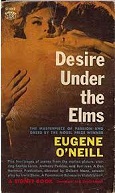
On Nov. 11, 1924 Eugene O'Neill (1888-1953) debuts his play Desire under the Elms at the Provincetown Playhouse in New York, followed in Jan. by the Earl Carroll Theater in New York, and Daly's 63rd Street Theatre in New York (420 perf.); based on the Euripides play "Hippolytus", about the Greek myths of Phaedra (Abbie Putnam) (Mary Morris), Hippolytus (Eben Cabot) (Charles Ellis), and Theseus (Ephraim Cabot) (Walter Huston), set in 1850 rural New England; filmed in 1958 starring Sophia Loren.
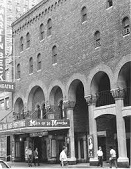
On Nov. 11, 1924 the Martin Beck Theatre at 302 West 45th St. in Manhattan, N.Y. (cap. 1,424) opens with "Madame Pompadour", becoming the only theater in New York City without a mortgage, and the most opulent theater of the time, with dressing rooms for 200 actors; on June 21, 2003 it is renamed the Al Hirschfeld Theatre.

On Mar. 11, 1925 Vincent Youmans (1898-1946), Irving Caesar (1895-1996), Otto Harbach (1873-1963), and Frank Mandel debut their musical No, No, Nanette at the Palace Theatre in West End, London (665 perf.), followed by the Globe Theatre in New York on Sept. 16 (321 perf.); London production stars Binnie Hale (1899-1984) as Atlantic City-loving Nanette, and George Grossmith Jr. (1874-1935) as her guardian, Bible publishing millionaire Jimmy Smith; Broadway production stars Louise Groody and Charles Winninger; biggest Broadway hit of the 1920s; features the songs No, No, Nanette, and Tea for Two; filmed in 1930 and 1940; revived in 1971.
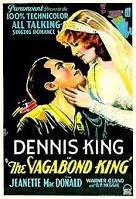
On Sept. 21, 1925 Rudolf Friml (1879-1972) and Brian Hooker (1880-1946) debut their operetta The Vagabond King at the Casino Theatre in New York, followed by the Century Theatre in New York on Nov. 11, 1925 (511 perf.); based on the 1901 novel-play "If I Were King" by Justin Huntly McCarthy; about Francois Villon (Dennis King), who woos Louis XI's cousin Katherine De Vaucelles (Carolyn Thomson) and becomes king for a day while defending France against the Duke of Burgundy; filmed in 1956; features the songs Song of the Vagabonds, and Some Day.
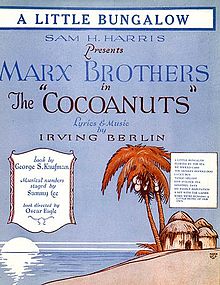
On Oct. 26, 1925 Irving Berlin (1888-1989), George S. Kaufman (1889-1961), and Morrie Ryskind (1895-1985) debut their musical The Cocoanuts at the Lyric Theatre in New York (276 perf.), starring the Marx Brothers and Margaret Dumont, about a hotel in Cocoanut Beach, Fla. during the 1920s Fla. Land Boom; filmed in 1929.
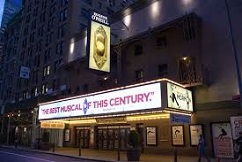
On Nov. 24, 1925 the Edwin Forrest Theatre at 230 West 49th St. in Manhattan, N.Y. (cap. 1,108) opens with the musical "Mayflowers"; in 1945 it is renamed the Coronet Theatre, and in 1959 it is renamed the Eugene O'Neill Theatre; in 1982 owner Neil Simon sells it to Jujamcyn Theaters.

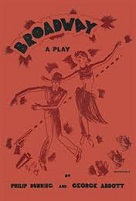
On Sept. 16, 1926 Forestville, N.Y.-born George Francis Abbott (1887-1995) and Philip Hart Dunning (1889-1968) debut their play Broadway at the Broadhurst Theatre in New York (603 perf.), produced by Jed Harris, becoming Abbott's first big hit, launching his career as "the most famous play doctor of all time"; Carl Laemmle pays $225K for the film rights.
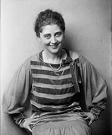

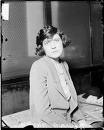
On Dec. 30, 1926 Louisville, Ky.-born Maurine Dallas Watkins (1896-1969) debuts her play Chicago (AKA A Brave Little Woman) (AKA Play Ball) in New York (172 perf.); dir. by George Abbott; about the 1924 jazz baby murder trials of twice-divorced cabaret singer Belva Gaertner (nee Boosinger) (1884-1965) (AKA Belle Brown) ("the most stylish of Murderess Row"), who shot her married lover Walter Law in the front seat of her car, and Beulah May Annan (nee Sheriff) (1899-1928) ("the beauty of the cell block"), who shot her lover Harry Kalstedt in the back in her and her hubby's bedroom after which she plays the foxtrot record "Hula Lou" for 4 straight hours while drinking cocktails then calls her hubby and tells him she killed a man who had "tried to make love" to her; after her acquittal on May 25, 1924 she leaves him, saying "He is too slow"; stars Jean Eaglers and Francine Larrimore as Roxie Hart; Clark Gable appears in the LA production as Amos Hart; adapted as a musical by Bob Fosse in 1975-7, and filmed in 2002.


On Feb. 2, 1927 the Ziegfeld Theatre at 1341 Sixth Ave. in Manhattan, N.Y. (cap. 1,638) opens, built by Broadway impresario Florenz Edward "Flo" Ziegfeld Jr. (1867-1932) with financial backing from William Randolph Hearst, and designed by Joseph Urban (1872-1933) and Thomas White Lamb (1871-1942); it opens with the musical Rio Rita by Guy Bolton, Fred Thompson, Harry Tierney, and Joseph McCarthy, followed on Dec. 27 by Jerome Kern's musical Show Boat (572 perf.); in 1933 it becomes a movie theater; in 1944 it is purchased by showman Billy Rose; in 1955-63 is is leased by NBC-TV for a TV studio, hosting The Perry Como Show; in 1963 it reopens as a Broadway Theatre, hosting the musical Anya by George Abbott, Guy Bolton, Robert Wright, and George Forrest on Nov. 29, 1965 for 16 perf. before it is torn down to make way for a skyscraper.
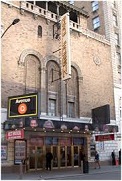
On Feb. 24, 1927 the Theatre Masque (Masque Theater) at 252 West 45th Stree in Manhattan, N.Y. (cap. 800) opens with the play "Puppets of Passion"; in 1937 impresario John Golden acquires it and renames it for himself; the exterior is used for a background shot for the 1950 film "All About Eve" and for a location shot for the 1985 film "A Chorus Line".
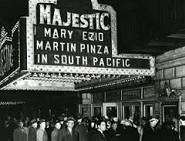
On Mar. 28, 1927 the Majestic Theatre at 245 West 44th St. in Manhattan, N.Y. (cap. 1,645) opens, becomng one of Broadway's top venues, hosting "Carousel" (1945), "South Pacific" (1949), "The Music Man" (1957), "Camelot" (1960), "A Little Night Music" (1973), "The Wiz" (1975), and "The Phantom of the Opera" (1988) (longest-running Broadway production, 12K+ perf.).
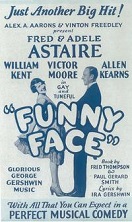
On Nov. 22, 1927 George Gershwin (1898-1937), Ira Gershwin (1896-1983), Fred Thompson (1884-1949), and Paul Girard Smith (1894-1968) debut their musical Funny Face at the Alvin Theatre in New York (244 perf.); stars Fred Astaire as Jimmie Reeves, guardian of Frankie (Adele Astaire), who won't let her have her jewels, causing her to try to steal them back with friend Peter Thurston (Allen Kearns), and end up competing with burglars Herbert (Vic Moore) and Dugsie (William Kent).
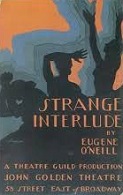
On Jan. 28, 1928 Eugene O'Neill (1888-1953) debuts his play Strange Interlude at the John Golden Theatre in New York (Pulitzer Prize); dir. by Philip Moeller; nine acts filled with stream-of-consciousness monologues lasting five hours; stars Lynn Fontanne as Ivy League Prof. Leeds' (Philip Leigh) daughter Nina Leeds (Lynn Fontanne), who has a baby with Dr. Edmund "Ned" Darnell (Glenn Anders) after finding that hubby Sam Evans (Earle Larimore) can't give her one due to family insanity, and falls in love with him, creating a triangle with the child Gordon Evans (John J. Burns) in the middle; filmed in 1932; in 1929 the mayor of Boston, Mass. bans the play, causing it to be moved to Quincy, where the fledgling Howard Johnson's restaurant receives nat. publicity after the audience flocks there for the dinner break.
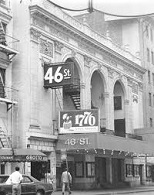
In 1928 Chanin's 46th Street Theatre at 226 West 46th St. in Manhattan, N.Y. opens, becoming the first Broadway Theatre sans separate entrances for the expensive and cheap seats; in 1931 the Shuberts acquire it, followed in 1960 by Lester Osterman, and in 1978 by Stephen R. Friedman and Irwin Meyer; in 1990 the Nederlander Org. acquires it and changes the name to Richard Rodgers Theatre; it goes on to house the greatest number of Tony Award-winning best plays and musiicals (11) on Broadway incl. "Guys and Dolls" (1950), "Damn Yankees" (1955), "Redhead" (1959), "How to Succeed in Business Without Really Trying" (1961), "1776" (1970), "Raisin" (19), "Nine" (1982), "Fences" (1987), "Lost in Yonkers" (1991), "Chicago" (1996), "In the Heights" (1008), "The Gershwins' Porgy and Bess" (2011), and "Hamilton" (2015); in 1990 it becomes the Richard Rodgers Theatre.
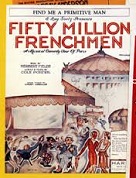
On Nov. 27, 1929 (1 mo. after the Oct. 29 Wall Street Crash) Cole Porter (1891-1964) and Herbert Fields (1897-1958) debut their musical comedy Fifty Million Frenchmen at the Lyric Theatre in New York (254 perf.); dir. by Monty Woolley; scenic design by Norman Bel Geddes; stars William Gaxton as Peter Forbes, Genevieve Tobin as Looloo Carroll, Betty Compton as Joyce Wheeler, and Lester Crawford as Billy Baxter; filmed in 1931; title taken from the 1927 song "Fifty Million Frenchmen Can't Be Wrong" by Willie Raskin, Billy Rose, and Fred Fisher.
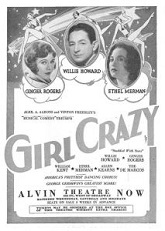
On Oct. 14, 1930 George Gershwin (1898-1937), Ira Gershwin (1896-1983), Guy Bolton (1884-1979), and John McGowan (1894-1977) debut their musical Girl Crazy at the Alvin Theatre in New York (272 perf.); dir. by Alexander Leftwich; makes a star of Ginger Rogers (1911-95), who sings Embraceable You, and Ethel Merman (1908-84) (stage debut), who sings I Got Rhythm, Sam and Delilah, and Boy! What Love Has Done to Me!; Fred Astaire helps with choreography; the opening night orchestra incl. Jimmy Dorsey, Benny Goodman, Gene Krupa, and Glenn Miller, conducted by George Gershwin; Danny Churchill (Allen Kearns) is sent to Custerville, Ariz. to manage the family ranch and give up alcohol and fast women, but he turns it into a dude ranch, importing Broadway showgirls and hiring Frisco Kate Forthergill (Merman) as an entertainer, falling for local postal clerk Molly Gray (Rogers); Willie Howard plays Gieber Goldfarb; filmed in 1932 starring Wheeler and Woolsey, and in 1943 starring Judy Garland (who combines the roles of Merman and Rogers) and Mickey Rooney.
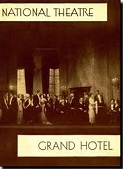
On Nov. 13, 1930 Vicki Baum (1888-1960) and William A. Drake (1899-1965) debut their play Grand Hotel at the Nat. Theater in New York (444 perf.), based on Baum's 1929 novel "Menschem im Hotel", launching the Grand Hotel genre of dramas that follow the activities of many people in a large busy place; filmed in 1932; launches the career of Colo.-born producer Herman E. Shumlin (1898-1979), who becomes known for producing the plays of Lillian Hellman (1905-84).
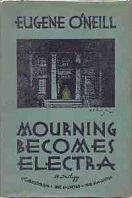
On Oct. 26, 1931 Eugene O'Neill (1888-1953) debuts his play cycle Mourning Becomes Electra at the Guild Theatre in New York) (150 perf.); three plays based on Aeschylus' "Oresteia", incl. "Homecoming", "The Hunted", "The Haunted"; Brig. Gen. Ezra Mannon (Agamemnon), Christine (Clytemnestra), Orin (Orestes), Lavinia (Electra), Adam Brant (Aegisthus).
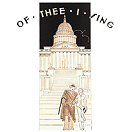
On Dec. 26, 1931 George Gershwin (1898-1937), Ira Gershwin (1896-1983), George S. Kaufman (1889-1961), and Morrie Ryskind (1895-1985) debut their musical Of Thee I Sing at the Music Box Theatre in New York (441 perf.); John P. Wintergreen (William Gaxton) runs for U.S. on the "love platform", then falls for sexretary Mary Turner (Lois Moran), who woos him with corn muffins, causing him to dump beauty queen Diana Devereux (Grace Brinkley); Victor Moore plays vice-pres. Alexander Throttlebottom; first musical to win the Pulitzer Prize for Drama.
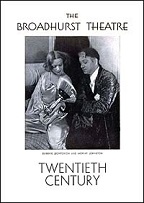
On Dec. 29, 1932 Ben Hecht (1894-1964) and Charles MacArthur (1895-1956) debut their play Twentieth Century at the Broadhurst Theatre in New York (152 perf.); based on Charles B. Millholland's play "Napoleon of Broadway", inspired by working for David Belasco; stars Moffat Johnston, Eugenie Leontovich, and William Frawley; stars Moffat Johnston as theater producer Oscar Jaffe, who travels from Chicago to New York aboard the 20th Century Limited with temperamental actress Lily Garland AKA Mildred Plotka (Eugenie Leontovich), who left him for Hollywood, giving him the chance of signing her for his new show; also stars William Frawley; filmed in 1934 by Howard Hawks starring John Barrymore and Carole Lombard; revived on Dec. 24, 1950 at the ANTA Playhouse in New York (233 perf.), dir. by Jose Ferrer, starring Ferrer as Oscar, and Gloria Swanson as Lily; revive again on Mar. 25, 2004 at the Am. Airlines Theatre in New York (84 perf.), starring Alec Baldwin and Anne Heche.
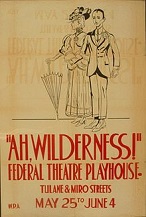
On Oct. 2, 1933 Eugene O'Neill (1888-1953) debuts his comedy Ah, Wilderness! at the Guild Theatre in New York, becoming his only well-known comedy, about the Millers of New London, Conn. on July 4, 1906, and the coming of age of 16-y.-o. middle son Richard; title taken from Omar Khayyam's "Rubaiyat", Quatrain XII: "Oh; Wilderness were Paradise enow!"; stars George M. Cohan as Nat Miller in the New York production, and Will Rogers in the San Francisco production; Elisha Cook Jr. plays Richard Miller.
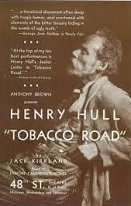
On Dec. 4, 1933 John Kirkland (1903-69) debuts his play Tobacco Road at the Theatre Masque in New York, moving to the 48th Street Theatre in New York on July 16, 1934, and the Forrest Theatre in New York on May 31, 1941 (3,182 perf.); based on the 1932 Erskine Caldwell novel about the Lester family in Jawjaw, 30 mi. from Augusta; stars Ky.-born Henry Hull (Vaughan) (1890-1977) as Jeeter Lester, Ruth Hunter as Ellie May Lester, Sam Byrd as Dude Lester, Margaret Wycherly as Ada Lester, and Maude Odell as Sister Bessie Rice.
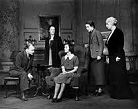

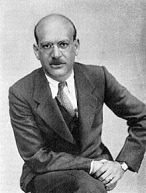
On Nov. 20, 1934 New Orleans, La.-born Lillian Florence "Lilly" Hellman (1905-84) debuts her play The Children's Hour at the Maxine Elliott Theater in New York (691 perf.); named after an 1860 Henry Wadsworth Longfellow poem, and based on a 19th cent. incident in Scotland; produced by Herman E. Shumlin (1898-1979), who ends up producing all of Hellman's plays; Wright Dobie School student Mary Tilford (Florence McGee) accuses her schoolmasters Karen Wright (Katherine Emery) and Martha Dobie (Anne Revere) of lesbianism, ruining everybody; banned in Boston in Dec. 1935, making it more popular?; filmed in 1961 - by the 1990s it would get the school extra federal funding?
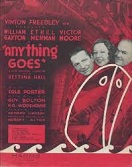
On Nov. 21, 1934 Cole Porter (1891-1964), Guy Bolton (1884-1979), and P.G. Wodehouse (1881-1975) debut their musical Anything Goes at the Alvin Theatre in New York (420 perf.); about an ocean liner en route from New York to London; stars William Gaxton as stowaway Billy Crocker, who is in love with heiress Hope Harcourt, who is engaged to Lord Evelyn Oakleigh, gaining the aid of Public Enemy #13 Moonface Martin (Victor Moore) and nightclub singer Reno Sweeney (Ethel Merman) to help him win her; features the songs Anything Goes, Blow Gabriel Blow, I Get a Kick Out of You, All Through the Night, and You're the Top (with Bing Crosby); filmed in 1936 and 1956.
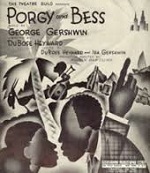
On Sept. 30, 1935 George Gershwin (1898-1937), Ira Gershwin (1896-1983), DuBose Heyward (1885-1940), and Dorothy Heyward (1890-1961) debut their jazz opera Porgy and Bess at the Colonial Theatre in Boston, moving on Oct. 10 to the Alvin Theatre in New York (124 perf.); based on the 1925 Heyward novel, set in Catfish Row (real-life Cabbage Row) in Charleston, S.C., with an all-black cast, incl. Anne Wiggins Brown (192-2009) as Bess, Jack Carr as her possessive lover Crown, John Williams "Bubbles" Sublett (1902-86) as drug dealer Sportin' Life, and baritone Robert Todd Duncan (1903-98) as Porgy, who goes on to lead a successful protest against the Nat. Theatre of Washington, D.C. for audience segregation; choral dir. by Eva Jessye (1895-1992); too bad, the 1935 album features mostly white opera singers; features the songs It Ain't Necessarily So, Summertime, I Got Plenty O' Nuttin'.
In 1935 the New York Drama Critics' Circle is founded at the Algonquin Hotel in Manhattan, N.Y. by 22 drama critics incl. Brooks Atkinson, Robert Benchley, and Walter Winchell; in 1936 it awards the first New York Drama Critics' Circle Award to Maxwell Anderson's "Winterset", followed by Maxell Anderson's "High Tor" (1937), John Steinbeck's "Of Mice and Men" (1938), William Saroyan's "The Time of Your Life" (1939), Lillian Hellman's "Watch on the Rhine" (1941), Sidney Kingsley's "The Patriots" (1943), Tennessee Williams' "The Glass Menagerie" (1945), Arthur Miller's "All My Sons" (1947), and Tennessee Williams' "Death of a Salesman" (1949).
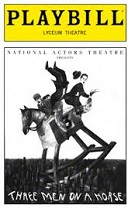
On Jan. 30, 1935 George Abbott (1887-1995) and John Cecil Holm (1904-81) debut their play Three Men on a Horse at the Playhouse Theatre in New York (835 perf.); a man can choose the winning horse as long as he never places the bet himself; stars Garson Kanin, Shirley Booth, and Sam Levene; filmed in 1936 starring Frank McHugh, Joan Blondell, Sam Levene, and Guy Kibbee.
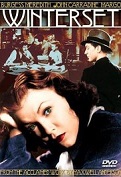
On Sept. 25, 1935 Atlantic, Penn.-born James Maxwell Anderson (1888-1959) debuts his play Winterset at the Martin Beck Theatre in New York (195 perf.); based on the Sacco and Vanzetti case, about Mio Romagna, who struggles to prove his father Bartolomeo's innocence after he is executed for a robbery-murder he didn't commit; dir. by Guthrie McClintic; stars Burgess Meredith, Margo, and Edward Ciannelli; winner of the first New York Drama Critics' Award for best play.
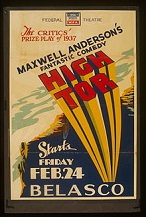
On Jan. 9, 1937 Maxwell Anderson (1888-1959) debuts his play High Tor at the Martin Beck Theatre in New York (171 perf.); named after a summit overlooking the Tappan Zee portion of the Hudson River near his home in Rockland County; stars Burgess Meredith as Van Van Dorn, who is about to sell High Tor when he is trapped in a rock slide, meeting Lisa (Peggy Ashcroft), the spirit of a Dutch girl, who tells him that spirits of Dutch sailors have been trapped there for over 300 years after being killed in a shipwreck, then steals his heart; on Mar. 10, 1956 CBS-TV debuts a musical adaptation with music by Arthur Schwartz on Ford Star Jubilee starring Bing Crosby as Van and Julie Andrews as Lisa (her U.S. TV debut), becoming the first TV movie.

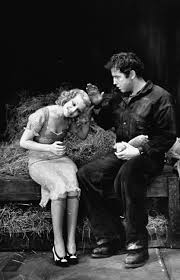
On Nov. 23, 1937 Salinas, Calif.-born John Ernst Steinbeck Jr. (1902-68) debuts his first play Of Mice and Men at the Music Box Theatre in New York (207 perf.); based on his 1937 novel; dir. by George S. Kaufman; stars Broderick Crawford as Lennie Small, Wallace Ford as George Milton, John F. Hamilton as Candy, Will Geer as Slim, Sam Byrd as Curley, and Claire Luce as his wife; filmed in 1939 starring Lon Chaney Jr., Burgess Meredith, and Betty Field, and in 1992 starring John Malkovich and Gary Sinise.
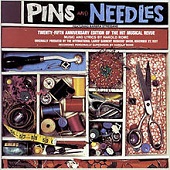
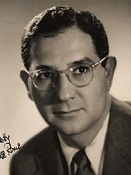
On Nov. 27, 1937 Arthur Arent, Marc Blitzstein (1905-64), Harold J. Rome (1908-93) et al. debut their idiom revue Pins and Needles at the Princess Theatre in New York (1,108 perf.); performed by striking members of the Internat. Ladies Garment Workers Union, becoming the first Broadway hit produced by a labor union (until ?), and first group of unknown non-profs. to bring a successful musical to Broadway (until ?); debut of Hartford, Conn.-born composer-lyricist Harold Jacob Rome (1908-93).
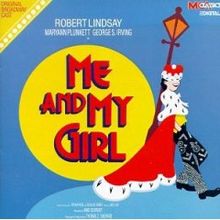
On Dec. 16, 1937 Noel Gay (1898-1954), Douglas Furber (1885-1961), and L. Arthur Rose debut their musical Me and My Girl at the Victoria Palace Theatre in West End, London (1,646 perf.); broadcast by BBC radio live on Jan. 13, 1938, becoming the first full-length musical to be broadcast live on radio; revived at the Adelphi Theatre in West End, London on Feb. 12, 1985 (3,303 perf.) (2nd longest running play in West End, London), and at the Marquis Theatre in New York on Aug. 10, 1986 (1,420 perf.); unrefined cockney gentleman Bill Snibson (Lupino Lane) learns that he is the 14th earl of Hareford; features the song The Lambeth Walk by Lupino Lane, which becomes fashionable in the U.K., and is banned in Germany; filmed in 1939.
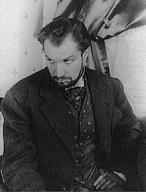
In Dec. 1938 Patrick Hamilton (1904-62) debuts his drama Gas Light (Angel Street) at the Apollo Theatre in West End, London, moving to the John Golden Theatre in New York on Dec. 5, 1941 and the Bijou Theatre in New York on Oct. 2, 1944 (1,295 perf.); set in 1880 London "before the feeble dawn of gaslight and tea", about Jack Manningham, who is trying to convince his wife Bella that she's going nuts in order to search for her jewels, causing the term "gaslighting" to be coined for psychological abuse in which false info. is fed the victime to make them doubt their own memory and perception; stars Vincent Price as Manningham; filmed in 1940 and 1944.
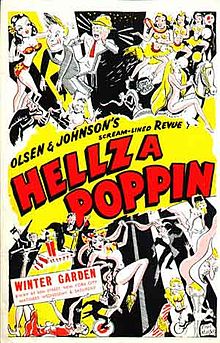
On Sept. 10, 1938 Ole Olsen (1892-1963), Chic Johnson (1891-1962), Sammy Fain (1902-89), and Charles Tobias (1898-1970) debut their musical revue Hellzapoppin at the Shubert Theatre in Boston, moving to the 46th Street Theatre in New York on Sept. 22, the Winter Garden Theatre in New York on Nov. 26, and the Majestic Theatre in New York on Nov. 25, 1941 (1,404 perf.); big hit, with unpredictable onstage chaos, never the same way twice; filmed in 1941 as "Helzapoppin'".
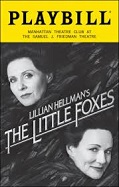
On Feb. 15, 1939 Lillian Hellman (1905-84) debuts her play The Little Foxes at the Nat. Theatre in New York (410 perf.); title taken from the Song of Solomon 2:15 ("Take us the foxes, the little foxes, that spoil the vines; for our vines have tender grapes"); the Southern Hubbard family of 1900 Ala. fights for the family fortune; stars Patricia Collinge as Birdie Hubbard, Carl Benton Reid as her hubby Oscar Hubbard, Charles Dingle as his older brother Benjamin "Ben" Hubbard, Tallulah Bankhead as their crafty sister Regina Hubbard Giddens, Frank Conroy as her hubby Horace Giddens, and Dan Duyrea as Oscar's son Leo; produced by Herman Shumlin; filmed in 1941 with more bankable Bette Davis replacing Bankhead; followed by "Another Part of the Forest" (1946).



On Sept. 1, 1939 - Sept. 2, 1945 the horrific $3.5T World War II resulted in 24M military and 49M civilian deaths, and featured the low point of the Jewish Holocaust (Shoah) by the German Nazis, I guess it was the Jews' fault for not ransoming themselves to go to Israel before they could round them up for the camps. The whole experience turned Jews from lovers into fighters, ramping up the Zionist movement with full world sympathy and support by new world superpower U.S., which had its own guilt trip because on Nov. 24, 1942 Budapest-born Am. Zionist leader Rabbi Stephen Samuel Wise (1874-1949) announced in a press conference in Washington, D.C. that he was authorized by the U.S. State Dept. to confirm that the Nazis had murdered 2M Jews as part of a plan to exterminate all Jews in Europe; too bad, the nat. newspapers didn't consider it front page news, and the U.S. govt. did nada. After the war ended and Americans toured the concentration camps in horror, Polish-born Jewish scholar Raphael Lemkin (1900-59), who single-handedly led an unsuccessful campaign to get the League of Nations to give internat. protections against genocide starting in 1933 finally got what he wanted after his own people got it, namely the Dec. 9, 1948 U.N. Convention on the Prevention and Punishment of the Crime of Genocide (Gen. Assembly Resolution 260), which didn't come in force until Jan. 12, 1951, and which the U.S. still didn't ratify until 1988.

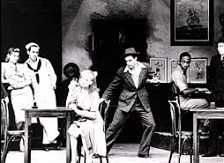
On Oct. 25, 1939 Fresno, Calif.-born William Saroyan (1908-81) debuts his first play The Time of Your Life at the Booth Theatre in New York, followed by the Guild Theatre in New York on Jan. 29, 1940 (249 perf.); first drama to win the Pulitzer Prize (refused) and the New York Drama Critics Circle Award; stars Eddie Dowling as moneyed loafer Joe, who counsels patrons of Nick's Pacific Street Saloon, Restaurant and Entertainment Palace in San Francisco (based on a cafe owned by Izzy Gomes), incl. flunky Tom, ho Kitty Duval (Julie Haydon), and wannabe dancer Harry (Gene Kelly); filmed in 1948 starring James Cagney; "In the time of our life, live, so that in that wondrous time you shall not add to the misery and sorrow of the world, but shall smile to the infinite delight and mystery of it."
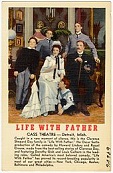
On Nov. 8, 1939 Russel Crouse (1893-1966) and Howard Lindsay (1889-1968) debut their play Life With Father at the Empire Theatre in New York, moving to the Bijou Theatre in New York on Sept. 8, 1945, and the Alvin Theatre in New York on July 12, 1947 (3,224 perf.); based on the 1935 Clarence Day autobio. book; stars Howard Lindsay as Father (Clarence Day Sr.); a giant hit, becoming the longest-running non-musical play on Broadway (until ?); filmed in 1947.
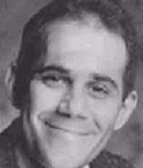

On Jan. 10, 1941 New York City-born Joseph Otto Kesselring (1902-67) debuts his comedy Arsenic and Old Lace at the Fulton Theatre in New York, moving to the Hudson Theatre in New York on Sept. 25, 1943 (1,444 perf.); the mad Brewster family, descended from the Mayflower, incl. two spinster aunts Martha (Jean Adair) and Abby (Josephine Hull), who poison lonely old men with elderberry wine laced with arsenic, strychnine, and "just a pinch" of cyanide; Boris Karloff plays brother Jonathan Brewster, who had so much bad plastic surgery that he looks like you know who; Allyn Joslyn plays drama critic Mortimer Brewster; filmed in 1944 by Frank Capra starring Cary Grant.
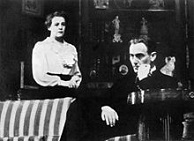
On Apr. 1, 1941 Lillian Hellman (1905-84) debuts her play Watch on the Rhine at the Martin Beck Theatre in New York (378 perf.); written in response to the Aug. 1939 Nazi-Soviet Non-Aggression Pact, calling for an internat. alliance against Hitler despite the Communists; produced by Herman Shumlin; anti-fascist underground activists Sarah and Kurt Mueller (Mady Christians and Paul Lukas) are blackmailed at their mother's home in Washington, D.C. by Romanian count de Brancovis (George Coulouris), causing Kurt to kill him and return to Germany to continue the fight; filmed in 1943.
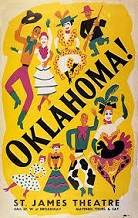
On Mar. 31, 1943 Richard Charles Rodgers (1902-79) and Oscar Greeley Clendenning Hammerstein II (1895-1960) debut their musical Oklahoma! (Away We Go) at the St. James Theater, based on the 1931 play "Green Grow the Hollies" by Lynn Riggs, becoming their first musical play; choreography by Agnes de Mille; farm girl Laurey Williams (Joan Roberts), cowboy Curly McLain (Alfred Drake), and farmhand Jud Fry (Howard Da Silva) of Claremore; wins a special Pulitzer Prize in 1944; record 2,212 consecutive perf. (first show over 500), ending the lean years of the Great Depression and launching a Golden Age of Broadway; incl. People Will Say We're in Love, Surrey With the Fringe on Top, Oh, What a Beautiful Mornin'; filmed in 1955.
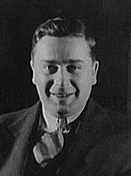
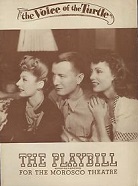
On Dec. 8, 1943 London, England-born John William Van Druten (1901-57) debuts his comedy The Voice of the Turtle (title from Song of Solomon 2:10-13) at the Morosco Theatre in New York (1,557 perf.); aspiring actress Sally Middleton from Joplin, Mo. moves to the Big Apple and falls for U.S. Army Sgt. Bill Page, struggling with her religious upbringing demanding chastity until marriage; filmed in 1947 starring Ronald Reagan and Eleanor Parker.
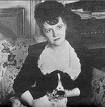

On Nov. 1, 1944 Denver, Colo.-born Mary Coyle Chase (nee Mary Agnes McDonough Coyle) (1906-81) debuts her play Harvey at the 48th Street Theatre in New York (1,775 perf.) (Pulitzer Prize); dir. by Antoinette Perry; stars Frank Fay (followed by Joe E. Brown, Jack Buchanan, and James Stewart) as 42-.y-.o. easygoing bar-loving bachelor Elwood P. Dowd, whose constant companion is invisible 6'4.5" white pooka rabbit Harvey; also stars Josephine Hull as his sister Veta Louise Simmons, who tries to get him committed and ends up getting committed instead; filmed in 1950 starring James Stewart.
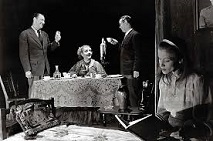

On Dec. 26, 1944 Columbus, Miss.-born Thomas Lanier "Tennessee" Williams III (1911-83) debuts his play The Glass Menagerie at the Civic Theatre in Chicago, followed by the Playhouse Theatre in New York on Mar. 31, 1945, and the Royale Theatre in New York on July 1, 1946; a 5-char. "memory play" about faded Southern belle Amanda Wingfield, her son Tom Wingfield, and his crippled sister Laura; makes Williams a star; filmed in 1950 and 1987; "Time is the longest distance between two places".
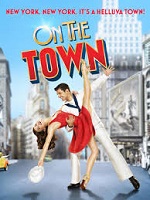
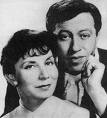
On Dec. 28, 1944 Leonard Bernstein (1918-90), Roger Edens (1905-70), Betty Comden (1917-2006), and Adolph Green (1914-2002) debut their musical On the Town at the Adelphi Theater in New York (462 perf.); based on the 1944 Jerome Robbins ballet "Fancy Free"; dir. by George Abbott; choreography by Jerome Robbins; stars John Battles as Gabey, Cris Alexander as Chip, Nancy Walker as Hildy, Sono Osato as Ivy, Betty Comden as Claire, and Adolph Green as Ozzie; a record six African-Ams. in the cast; 9 mo. after the debut African-Am. conductor Everett Lee becomes the conductor; features the songs New York, New York, Lonely Town, and I Can Cook, Too; filmed in 1949 starring Frank Sinatra and Gene Kelly; the debut of lyricists (unmarried) Adolph Green (1914-2002) and Betty Comden (Basya Cohen) (1917-2006), who become the longest creative partnership in Broadway history (until ?).
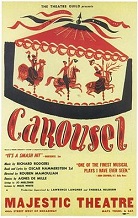
On Apr. 19, 1945 Richard Rodgers (1902-79) and Oscar Hammerstein II (1895-1960) debut their also-ran musical Carousel at the Majestic Theatre in New York (890 perf.); adapted from the 1909 Ferenc Molnar play "Liliom", transplated from Budapest to the coast of Maine; carnival barker Billy Bigelow (John Raitt/Henry Michel)) hooks up with millworker Julie Jordan (Jan Clayton/Iva Withers)), and after they both lose their jobs he botches a robbery; meanwhile millworker Carrie Pipperidge (Jean Darling/Margot Moser) hooks up with fisherman Enoch Snow (Eric Mattson); filmed in 1956 starring Gordon MacRae and Shirley Jones; features the songs If I Loved You, June Is Bustin' Out All Over, and You'll Never Walk Alone; Rodgers' favorite musical.
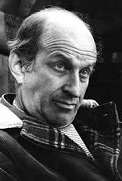
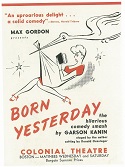
On Feb. 4, 1946 Garson Kanin (1912-99) debuts his comedy Born Yesterday at the Lyceum Theatre in New York (1,642 perf.); stars Paul Douglas as crooked tyccon Harry Brock, who goes with his girlfriend Billie Dawn (Judy Holliday) to Washington, D.C to buy some politicians, where she meets journalist Paul Verrall (Gary Merrill), who wins her and helps her escape from him; filmed in 1950 starring Holliday; according to Neil Simon, the funniest play ever written.
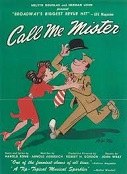
On Apr. 18, 1946 Arnold M. Auerbach (1912-98) and Harold Jacob Rome (1908-93) debut their revue Call Me Mister at the Nat. Theatre in New York, moving to the Majestic Theatre and the Plymouth Theatre (734 perf.); about troops returning to civilian life; stars Betty Garrett, George S. Irving, Maria Karnilova, Harry Clark, Jules Munshin, and Lawrence Winters; features the song South America, Take It Away, sung by Bing Crosby and the Andrews Sisters; filmed in 1951 starring Betty Grable as USO entertainer Kay Hudson, Dan Dailey as her ex-husband Shep Dooley, and Dale Robertson as Capt. Johnny Comstock.
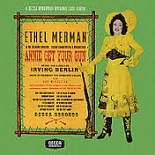
On May 16, 1946 Irving Berlin (1888-1989), Dorothy Fields (1905-74), and Herbert Fields (1897-1958) debut their musical Annie Get Your Gun in New York) (1,147 perf.), about Annie Oakley (1860-1926) and her mgr.-hubby Frank Butler (1847-1926); dir. by Joshua Logan; stars Ethel Merman as Annie, and Ray Middleton as Frank; features the songs There's No Business Like Show Business, Doin' What Comes Natur'lly, I'm an Indian, Too (later ommitted for being too insensitive to Indians), Moonshine Lullaby, You Can't Get a Man with a Gun", They Say It's Wonderful, and Anything You Can Do; filmed in 1950 starring Betty Hutton and Howard Keel.
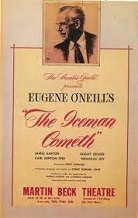
On Oct. 9, 1946 Eugene O'Neill (1888-1953) debuts his first play in 10 years The Iceman Cometh at the Martin Beck Theatre in New York (136 perf.); dir. by Eddie Dowling; Harry Hope's saloon in 1912 Greenwich Village, with 15 patrons incl. 12 men and three hos, where salesman Theodore "Hickey" Hickman visits every 6 mo., and expects to find his wife "rolling in the hay with the iceman" when he comes home, later revealing that he has murdered her; written at Tao House in Calif. - policeman without the pol?
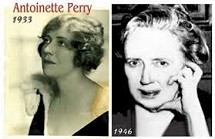
On Apr. 6, 1947 the first Tony Awards (Antoinette Perry Awards for Excellence in Broadway Theatre), named in honor of Denver, Colo.-born Am. Theatre Wing co-founder Mary Antoinette "Tony" Perry (1888-1946) are presented by the Am. Theatre Wing and the Broadway League at the Waldorf-Astoria Hotel in New York City, becoming the highest U.S. theater honor, the New York City version of the Oscars, Grammys, and Emmys (EGOT), and the equivalent of the Laurence Olivier Award in the U.K., and the Moliere Award in France; theaters must have 500+ seats to be considered; by 2010 only 40 theaters make the list.
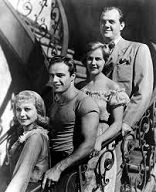
On Dec. 3, 1947 Tennessee Williams (1911-83) debuts his play A Streetcar Named Desire at the Ethel Barrymore Theatre in New York (Pulitzer Prize) (855 perf.), set in the French Quarter of New Orleans, La., starring Marlon Brando as Stanley Kowalski, Jessica Tandy as Blanche DuBois, Kim Hunter as Stella Kowalski, and Karl Malden as Mitch; "I have always depended upon the kindness of strangers" (Blanche); "This game is seven-card stud" (Steve).
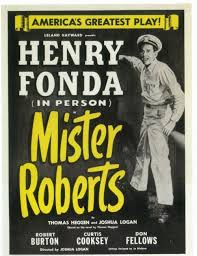
On Feb. 18, 1948 Thomas Heggen (1918-49) and Joshua Logan (1908-88) debut their play Mister Roberts (Alvin Theatre, New York) (1,157 perf.), based on Heggen's 1946 novel, starring Henry Fonda as Lt. Doug Roberts aboard the USS Reluctant in the South Pacific in WWII; filmed in 1955; too bad, on May 19, 1949 after getting writer's block and going on alcohol and sleeping pills, Heggen drowns in his bathtub in New York City.
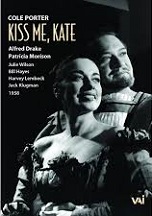
On Dec. 30, 1948 Cole Porter (1891-1964), Samuel Spewack (1899-1971), and Bella Spewack (1899-1990) debut their musical Kiss Me, Kate at the New Century Theatre in New York (1,077 perf.), becoming Porter's biggest hit; stars Alfred Drake, Patricia Morison, Lisa Kirk, and Harold Lang; based on Shakespeare's "The Taming of the Shrew", and inspired by the backstage bickering of Alfred Lunt and Lynn Fontanne during a Shakespeare play; choreography by German immigrant Hanya Holm (1893-1992), who goes on to choreograph "My Fair Lady" in 1956 and "Camelot" in 1960; filmed in 1953 starring Howard Keel, Kathryn Grayson, and Ann Miller; features the songs So In Love, Brush Up Your Shakespeare, Kiss Me, Kate, Another Op'nin' Another Show, We Open in Venice, Tom, Dick or Harry, I've Come to Wive It Wealthily in Padua, Too Darn Hot, Always True to You in My Fashion.
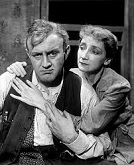

On Feb. 10, 1949 Harlem, N.Y.-born playwright Arthur Asher Miller (1915-2005) debuts his drama Death of a Salesman (Pulitzer Prize) at the Morosco Theatre in New York (742 perf.); 63-y.-o. has-been salesman William "Willy" Loman (Lee J. Cobb, Albert Dekker, Gene Lockhart)), his wife Linda (Mildred Dunnock), his sons Biff Loman (Arthur Kennedy) and Harold "Happy" Loman (Cameron Mitchell), his older brother Uncle Ben, his boss Howard Wagner, and wise-cracking neighbor Charley (Howard Smith); dir. by Elia Kazan; in Oct. 1953 sex bombshell Jayne Mansfield performs in a production of the play in Dallas, Tex., getting her discovered by Paramount Pictures; Happy follows in his deceased father's footsteps, and Biff doesn't; "... and there'll be noody home. We're free and clear, Willy. We're free... We're free"; filmed in 1951.
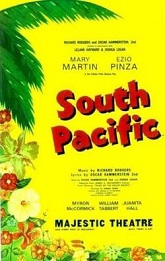
On Apr. 7, 1949 Richard Rodgers (1902-79), Oscar Hammerstein II (1895-1960) and Joshua Logan (1908-88) debut their musical South Pacific at the Majestic Theatre in New York (1,925 perf.) (Pulitzer Prize); based on James A. Michener's "Tales of the South Pacific" (1948); wins 10 Tony Awards; stars Mary Martin as cock-eyed nurse Ensign Nellie Forbush, and Ezio Pinza as her beau planter Emile de Becque; explores racial prejudice; features the songs Bali Ha'i, Some Enchanted Evening, A Wonderful Guy, Happy Talk, There is Nothing Like a Dame, Younger Than Springtime, I'm Gonna Wash That Man Right Outa My Hair.
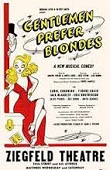
On Dec. 8, 1949 Joseph Fields (1895-1966), Anita Loos (1889-1981), Leo Robin (1900-84), and Jule Styne (1905-94) debut their musical Gentlemen Prefer Blondes at the Ziegfield Theatre in New York (740 perf.), followed by the Princes Theatre in West End, London on Aug. 20, 1962 (223 perf.); based on the 1925 novel by Anita Loos; the Broadway production stars Carol Channing as Lorelei Lee, and Yvonne Adair as Dorothy Shaw; the West end production stars Dora Bryan and Anne Hart; filmed in 1953 starring Marilyn Monroe and Jane Russell.

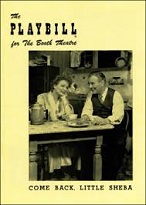
On Feb. 15, 1950 Independence, Kan.-born William Motter Inge (1913-73) debuts his first play Come Back, Little Sheba at the Booth Theatre in New York (190 perf.); overweight middle-aged Lola (Shirley Booth) and her recovering alcoholic hubby Doc Delaney (Sidney Blackmer) are disrupted by lustful boarder and college art student Marie Buckholder (Joan Lorring); Lola loses her dog named guess what; filmed in 1952 starring Burt Lancaster as Doc, and Terry Moore as Marie.
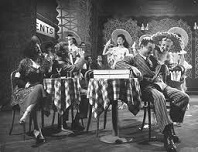

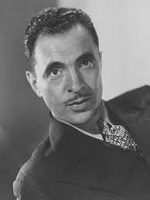
On Nov. 24, 1950 Frank Loesser (1910-69), Abe Burrows (1910-85), and Jo Swerling (1897-1964) debut their musical Guys and Dolls at the 46th Street Theatre in New York (1,200 perf.); based on two short stories by Damon Runyon (1880-1946), "The Idyll of Miss Sarah Brown" and "Blood Pressure"; no Pulitzer Prize for Drama is awarded this year depite it being selected as the winner because Burrows' troubles with HUAC cause the Columbia U. trustees to veto it; features choreography by Michael Kidd (1915-2007); stars stars Robert Alda, Isabel Bigley, Vivian Blaine, and Samuel "Sam" Levene (1905-80), who can't sing, causing the key solo number "Sue Me" to be rewritten in a single octave; too bad, he loses the role to Frank Sinatra in the 1955 film version, although Sinatra can't add the Jewish touches, and would have been better as Sky Masterson, the role taken by Marlon Brando?; songs incl. Sue Me, A Bushel and a Peck, Adelaide's Lament, Sit Down You're Rocking the Boat, If I Were a Bell, Marry the Man Today, Take Back Your Mink, Luck Be a Lady, The Crapshooters' Dance, and A Fugue for Tinhorns, sung by three scruffy horse-betters at a street stall.
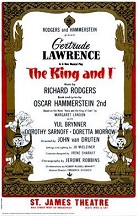
On Mar. 29, 1951 Richard Rodgers (1902-79) and Oscar Hammerstein II (1895-1960) debut their musical The King and I at the St. James Theatre in New York) (1,246 perf.); based on the 1944 Margaret Landon book "Anna and the King of Siam", about Welsh widow Anna Leonowens and King Mongkut of Siam in the 1860s; stars Gertude Lawrence (1898-1952) as Anna, who dies of cancer on Sept. 6, 1952, and Yuliy Borisovich "Yul" Brynner (Taidje Khan) (1920-85), who carries on with Marlene Dietrich offstage?; banned in Thailand; incl. the song Getting to Know You.
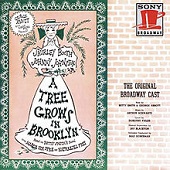
On Apr. 19, 1951 Arthur Schwartz (1900-84), Dorothy Fields (1905-74), George Abbott (1887-1995), and Betty Smith (1896-1972) debut their musical A Tree Grows in Brooklyn at the Alvin Theatre in New York (267 perf.); based on the 1943 novel by Smith; dir. by Abbott; choreographed by Herbert Ross; stars Shirley Booth as Aunt Cissy, causing the role to be expanded to make use of her comedic talents.
On Nov. 24, 1951 after writer Colette personally picks her for the part, Audrey Hepburn makes her stage debut in Gigi at the Fulton Theatre (219 perf.), adapted by Anita Loos.
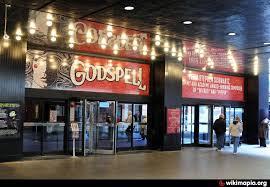
In 1951 the Circle in the Square Theatre at 235 West 50th St. in Manhattan, N.Y. is founded by Theodore Mann et al. as a cabaret located at 5 Sheridan Square in Greenwich Village, moving in 1960 to 159 Bleecker St. in Greenwich Village, and the present location in 1972, opening on Nov. 15, 1972 with a revival of "Mourning Becomes Electra", becoming one of only two Broadway theaters with a thrust stage (after the Vivian Beaumont Theater in Lincoln Center).
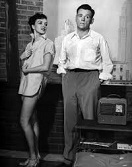
On Nov. 20, 1952 George Axelrod (1922-2003) debuts his play The Seven Year Itch at the Fulton Theatre in New York (1,141 perf.); about the itch to divorce after seven years; stars Vanessa Brown as The Girl, and Tom Ewell as Richard Sherman; filmed in 1955 starring Marilyn Monroe as The Girl, and Tom Ewell as Richard Sherman.
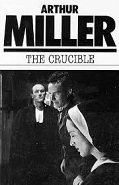
On Jan. 22, 1953 Arthur Miller (1915-2005) debuts his drama The Crucible at the Martin Beck Theatre in New York) (197 perf.); original title "Those Familiar Spirigs" set in 1692/3 Salem, Mass.; an answer to witch-hunt McCarthyism and fink Elia Kazan (he shouldn't be able to live with himself?) at the same time?; John Proctor (Arthur Kennedy) must decide whether to make a false confession to save himself; Rev. Samuel Parris (Fred Stewart), Betty Parris (Boo Alexander), Elizabeth Proctor (Beatrice Straight), John's mistress Abigail Williams (Madeleine Sherwood), Tituba (Jacqueline Andre), Mary Warren (Jennie Egan), Rev. John Hale (E.G. Marshall); Deputy Gov. Danforth (Walter Hampden); filmed in 1957 and 1996; "I saw Goody Bibber with the Devil"; "I have given you my soul - leave me my name"; fear of HUAC causes lukewarm reviews that totally censor the connection with current politics, and the show flops after 197 perf.; actress Jean Adair (b. 1873) dies on May 11, forcing a replacement to be found.
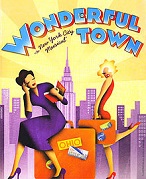
On Feb. 25, 1953 Jerome Chodorov (1911-2004) and Joseph Albert Fields (1895-1966) debut their musical Wonderful Town at the Winter Garden Theatre in New York (559 perf.); based on their 1942 play, which is based on the 1938 book by Ruth McKenney; sisters Ruth and Eileen Sherwood (Rosalind Russell and Edie Adams) travel from Columbus, Ohio to New York City in search of love and fortune; dir. by George Abbott amd choreographed by Donald Saddler.
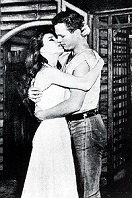
On Feb. 19, 1953 William Inge (1913-73) debuts his play Picnic at the Music Box Theatre in New York (477 perf.) (Pulitzer Prize); about virile drifter Hal Carter and a group of repressed women in a small Kansas town on Labor Day; stars Ralph Meeker as Hal Carter, Paul Newman (Broadway debut) as his old college friend Alan Seymour, Kim Stanley as Millie Owens, Janice Ruler as Madge Owens, and Elizabeth Wilson as Christine Schoenwalder; filmed in 1955 starring William Holden.

On Feb. 25, 1953 Leonard Bernstein (1918-90), Jerome Chodorov (1911-2004) and Joseph Albert Fields (1895-1966), Betty Comden (1917-2006), and Adolph Green (1914-2002) debut their musical Wonderful Town at the Winter Garden Theatre in New York (559 perf.); based on the 1940 play "Sister Eileen", which is based on the 1938 book by Ruth McKenney; sisters Ruth and Eileen Sherwood (Rosalind Russell and Edie Adams) travel from Columbus, Ohio to New York City in search of love and fortune, ending up in an apt. in Greenwich Village; dir. by George Abbott amd choreographed by Donald Saddler; features the songs Ohio, A Quiet Girl, Conga!
On Mar. 19, 1953 Tennessee Williams (1911-83) debuts his play Camino Real at the Martin Beck Theatre in New York (60 perf.); stars Eli Wallach, Jo Van Fleet, Frank Silvera et al.; expansion of 1-act play "Ten Blocks on the Camino Real"; surrealistic mixing of historical figures Byron, Casanova et al. in a celebration of romantic idealism; panned by critics and flops, but Williams declares it his favorite play - never let pain stop you in the pursuit of your passion?

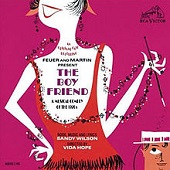
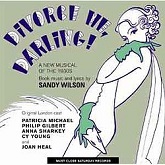
On Apr. 14, 1953 Manchester, England-born Alexander Galbraith "Sandy" Wilson (1924-2014) debuts his musical The Boy Friend (Boyfriend) at the Players' Theatre Club in London, followed by Wyndham's Theatre in West End, London on Jan. 14, 1954 (2,078 perf.), and the Royal Theatre in New York on Sept. 30, 1954 (485 perf.); the French Rivieria in the Roaring Twenties; big hit with the queen; Broadway production stars John Hewer, Geoffrey Hibbert, Dilys Laye et al.; the Broadway debut of 19-y.-o. "perfect pitch" Julia Elizabeth "Julie" Andrews (nee Wells) (1935-) as Polly, who is discovered by the producers of "My Fair Lady" there; features the song The Boyfriend; followed by the 1930s musical Divorce Me, Darling! (Players' Theatre, London) (Dec. 9, 1964) (Globe Theatre, West End, London) (Feb. 1, 1965) (91 perf.).
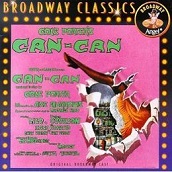
On May 7, 1953 Cole Porter (1891-1964) and Abe Burrows (1910-85) debut their musical Can-Can at the Shubert Theatre in New York (892 perf.), followed by the Coliseum Theatre in West End, London on Oct. 14, 1954 (394 perf.); Broadway production dir. by Abe Burrows and choreographed by Michael Kidd, starring Lilo, Gwen Verdon, Hans Conried, and Peter Cookson; filmed in 1960 starring Shirley MacLaine, Frank Sinatra, Louis Jordan, and Maurice Chevalier, debuting Juliet Prowse; features the songs I Love Paris, C'est Magnifique, It's All Right with Me.
On May 14, 1953 Dylan Thomas (1914-53) debuts his play Under Milk Wood at the Poetry Center in New York, about the small Welsh fishing village of Llareggub ("bugger all" backwards); Mrs. Ogmore-Pritchard, Capt. Cat, the two Mrs. Dai Breads; Organ Morgan, and Polly Garter; broadcast on BBC-Radio in 1594 starring Richard Burton; filmed in 1973 by Andrew Sinclair starring Richard Burton.
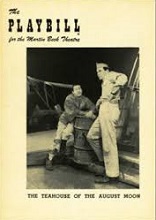
On Oct. 15, 1953 John Patrick (1905-95) debuts his play The Teahouse of the August Moon at the Martin Beck Theatre in New York (Pulitzer Prize) (1,027 perf.); based on the 1951 Vern Sneider novel about the island town of Tobiki, Okinawa after WWII, and the efforts of GIs to implement Plan B to "turn villagers into Americans"; dir. by Robert Lewis; stars John Forsythe as Capt. Fisby, Paul Ford as Col. Wainright Purdy III, Mariko Niki as Lotus Blossum, and David Wayne as Sakini; filmed in 1956 starring Glenn Ford as Fisby, and Marlon Brando as Sakini.
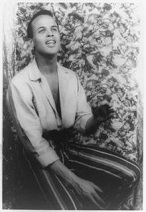
On Dec. 10, 1953 Richard Adler (1921-) and Jerry Ross (1926-55) debut their musical revue John Murray Anderson's Almanac at the Imperial Theatre in New York (229 perf.); stars Harry Belafonte, Hermione Gingold, Polly Bergen, Orson Bean, Tina Louise, and Kay Medford; incl. the hit song Rags to Riches, based on a Charlie Chaplin movie tune about a magic elf who regained her youth by drinking three cups of enchanted Gypsy blood.


On May 13, 1954 Richard Adler (1921-), Jerry Ross (1926-55), George Francis Abbott (1887-1995), and Richard Bissell (1913-77) debut their musical The Pajama Game at the St. James Theatre in New York (1,063 perf.); based on the 1953 novel "7-1/2 Cents" by Richard Bissell; Sleep-Tite Pajama Factory suptd. Sid Sorokin fights with union grievance committee leader Katherine "Babe" Williams over a 7.5 cent pay increase, and they fall in love; produced by George Abbott (1887-1995) and his asst. Harold Smith "Hal" Prince (1928-), who goes on to become "the Prince of Broadway" in the 1960s-1970s; Shirley MacLaine (1934-) is discovered by Paramount Pictures producer Hal Wallis; features the songs Hernando's Hideaway, One a Year Day, Racing with the Clock, 7-1/2 Cents, Slow Down, Steam Heat, Think of the Time I Save.
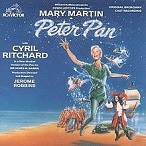
On July 19, 1954 Jule Styne (1905-94), Mark Charlap, Betty Comden (1917-2006), Adolph Green (1914-2002), Carolyn Leigh, and J.M. Barrie (1860-1937) debut their musical Peter Pan at the Curran Theatre in San Francisco, followed by the Winter Garden Theatre in New York on Oct. 20 (152 perf.); based on the 1904 J.M. Barrie play; stars Mary Martin as Peter Pan, Cyril Ritchard as Capt. Hook, and Kathleen Nolan as Wendy Darling. On Mar. 7, 1955 Peter Pan, starring Larry Hagman's mother Mary Martin (1913-90) is telecast on NBC-TV; on Dec. 8, 1960 it is restaged, again starring Martin.
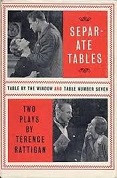
On Sept. 22, 1954 Terence Rattigan (1911-77) debuts his play Separate Tables at St. James's Theatre in London, followed by the Music Box Theatre in New York on Oct. 25, 1956; in two acts, "Table by the Window" and "Table Number Seven", set in the Beauregard Private Hotel in Bournemouth 18 mo. apart, starring Margaret Leighton as Mrs. Shankland and Sibyl, and Eric Portman as the Labour politician and Maj. Pollock.
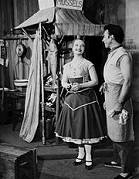
On Nov. 4, 1954 Samuel N. Behrman (1893-1973), Joshua Logan (1908-88), and Harold Jacob Rome (1908-93) debut their musical Fanny at the Majestic Theatre in New York, followed by the Belasco Theatre in New York on Dec. 4 (888 perf.); based on the Marcel Pagnol trilogy "Marius", "Fanny", and "Cesar", set in old Marseilles, about young babe Fanny (Florence Henderson), whose beau Marius (William Tabbert) leaves her pregnant to go to sea, causing her tavern owner father Cesar to disown him and force her to marry older man Panisse (Walter Slezak), only to see him return; stars Gary Wright as Acolyte, and Ezio Pinza as Cesar.
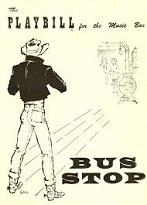
On Mar. 2, 1955 William Inge (1913-73) debuts his play Bus Stop at the Music Box Theatre in New York City (478 perf.); based on people he met in a snowstorm in Tonganoxie, Kan. 25 mi. W of Kansas City; boorish naive hick cowboy Bo Decker (Albert Salmi) romances hillbilly dive singer Cherie (Kim Stanley); filmed in 1956 starring Don Murray and Marilyn Monroe.
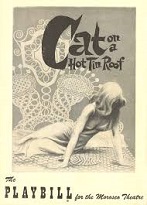
On Mar. 24, 1955 Tennessee Williams (1911-83) debuts his play Cat on a Hot Tin Roof (Pulitzer Prize) at the Morosco Theatre in New York; dir. by Elia Kazan; alcoholic ex-football star Brick (Jack Lord, who replaces Ben Gazzara) (who lost his football buddy Skipper to suicide, making him go alcoholic) battles Brother Man AKA Gooper (Pat Hingle) in Miss. for Big Daddy's ("the Delta's biggest cotton-planter") (Burl Ives) fortune after he contracts terminal cancer, which is an open secret; Mildred Dunnock plays Big Mama; Madeleine Sherwood plays Gooper's wife Mae; Brick's beautiful estranged wife Margaret "Maggie the Cat" Pollitt (Barbara Bel Geddes) gives a 57-min. monologue in Act 1; at the end she locks Brick's liquor up and promises that she will "make the lie" about being pregnant "true".
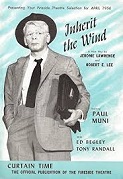
On Apr. 21, 1955 Jerome Lawrence (1915-2004) and Robert Edwin Lee (1918-94) debut their drama Inherit the Wind (Nat. Theater, New York) (Apr. 21) (806 perf.); the 1925 Scopes Monkey Trial, meant to throw light on McCarthyism, starring Karl Light as teacher Bertram Cates, Paul Muni as his atty. Clarence Darrow, er, Henry Drummond, and Ed Begley as William Jennings Bryan, er, Matthew Harrison Brady; Tony Randall plays infidel reporter E.K. Hornbeck (really H.L. Mencken), who turns it into a laugh riot, after which Drummond tells him "You never pushed a noun against a verb except to blow something up" and "He [Brady] was looking for God too high up and far away"; produced by Herman Shumlin; filmed in 1960.
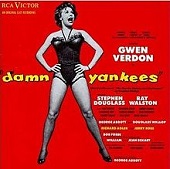
On May 5, 1955 Richard Adler (1921-2012), Jerry Ross (1926-55), George Francis Abbott (1887-1995), and Douglas Wallop (1920-85) debut their musical Damn Yankees at the 46th Street Theatre in New York, moving on May 17 to the Adelphi Theatre in New York (1,019 perf); dir. by George Abbott; based on the 1954 Douglass Wallop novel "The Year the Yankees Lost the Pennant", about loser Washington Senators fan Joe Boyd, who sells his soul to the Devil (Applegate) to become a baseball star and rescue the team; stars Robert Shafer as Boyd, Ray Walston as Applegate, Gwen Verdon as Lola, and Shannon Bolin as Meg; features the songs Whatever Lola Wants, Shoeless Joe from Hannibal Mo.
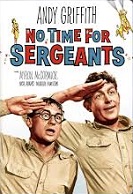
On Oct. 20, 1955 Ira Levin (1929-2007) debuts his play No Time for Sergeants at the Alvin Theatre in New York) (796 perf.); based on the 1954 Mac Hyman novel; stars Andy Griffith as country bumpkin Pvt. Will Stockdale, Myron McCormick as Sgt. Orville King, Roddy McDowell as Will's budy Ben, and Don Knotts in his Broadway debut as Corp. Manual Dexterity; filmed in 1958 - by the guy who gave us Rosemary's Baby?
In 1955 the Drama Desk Award for Outstanding Play (originally the Vernon Rice Award for Outstanding Achievement in Theatre until 1975) is founded by Drama Desk to recognize achievement in theater among Broadway, off-Broadway, and Off-off-Broadway productions; the 1956 winner is "The Iceman Cometh" by Eugene O'Neill; no awards in 1960-74.
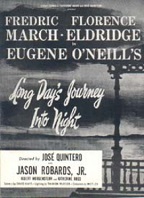
On Feb. 2, 1956 Eugene O'Neill (1888-1953) posth. debuts his semi-autobio. play Long Day's Journey Into Night at the Royal Dramatic Theatre in Stockholm, followed by the Helen Hayes Theatre in New York on Nov. 7 (Pulitzer Prize); written in 1941; his masterpiece?; a day in Aug. 1912 from 8:30 a.m. to midnight in the seaside Conn. home of the dysfunctional alcohol-morphine-taking Tyrone acting family in Monte Cristo Cottage; James Tyrone Sr. (65) (Fredric March), Mary Cavan Tyrone (54) (Florence Eldridge), James "Jamie" Tyrone Jr. (33) (Jason Robards Jr.), Edmund Tyrone (23) (Bradford Dillman), Cathleen the maid (Katherine Ross); filmed in 1962; "We are such stuff as manure is made on, so let's drink up and forget it." (Edmund)
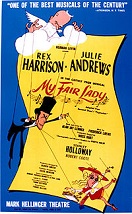
On Mar. 15, 1956 Alan Jay Lerner (1918-86) and Frederick Loewe (1901-88) debut their musical My Fair Lady at the Mark Hellinger Theatre in New York (2,717 perf.); based on George Bernard Shaw's 1913 "Pygmalion"; title comes from the nursery rhyme "London Bridge is Falling Down"; stars Rex Harrison as Prof. Henry Higgins, and Julie Andrews as Eliza Doolittle; features the songs I Could Have Danced All Night, On the Street Where You Live; Andrews is two weeks from going home to England from New York when she is cast for the production?; filmed in 1964, restoring Harrison's Hollywood career, which tanked when Carole Landis committed suicide for him in 1948.
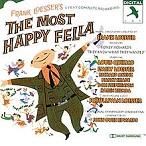
On May 3, 1956 Frank Loesser (1910-69) debuts his musical The Most Happy Fella at the Imperial Theatre in New York (676 perf.), based on the 1924 play "They Knew What They Wanted" by Sidney Howard, about a romance between an older man and a younger woman; stars baritone Robert Weede as aging Italian-Am. Calif. farmer Tony Esposito, Jo Sullivan as Rosabella, and Art Lund as Joey; featured in the Mar. 25, 1957 episode of "I Love Lucy" ("Lucy's Night in Town"); a step away from an opera?; features the songs Standing on the Corner (Watching All the Girls Go By), Happy to Make Your Acquaintance, Big D, Joey, Joey, Joey, Mamma, Mamma.
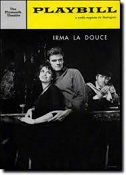
On Nov. 12, 1956 Marguerite Monnot (1903-61) and Alexandre Breffort (1901-71) debut their musical Irma La Douce at the Theatre Gramont in Paris, followed by the Lyric Theatre in West End, London on July 17, 1958 (1,512 perf.), and the Plymouth Theatre in New York on Sept. 25, 1960, moving to the Alvin Theatre on Oct. 30, 1961 (524 perf.); poor Parisian law student Nestor le Fripe (Fripé) falls in love with a hooker with a heart of gold, and disguises himself as rich older man Oscar, keeping her by holding down several jobs, which gets him down, so he pretends to kill Oscar, and is convicted of his murder and sent to Devil's Island, then escapes, returns, and proves his innocence, living happily with her forever; filmed in 1963 starring Shirley MacLaine and Jack Lemmon.
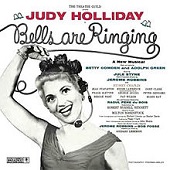
On Nov. 29, 1956 Jule Styne (1905-94), Betty Comden (1917-2006), Adolph Green (1914-2002) debut their musical Bells Are Ringing at the Shubert Theatre in New York (924 perf.) (Alvin Theatre) (Coliseum, West End, London) (Nov. 14, 1957) (292 perf.); dir. by Jerome Robbins; choreographed by Robbins and Bob Fosse; Brooklyn telephone operator Ella Peterson (Judy Holliday) of Susananswerphone, known for playing games with customers by assuming fake roles falls for handsome playwright Jeffrey Moss (Sydney Chaplain) while pretending to be old woman Mom on the phone; meanwhile the cops suspect it's a front for a call girl service; filmed in 1960; features the songs Bells Are Ringing, Long Before I Knew You, Just in Time, The Party's Over.
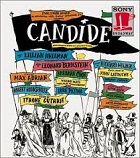
On Dec. 1, 1956 Leonard Bernstein (1918-90), Hershy Kay (1919-81), Lillian Hellman (1905-84), and Richard Wilbur (1921-) debut their musical Candide at the Martin Beck Theatre in New York (73 perf.), followed by the Saville Theatre in West End, London on Apr. 30, 1959 (60 perf.), based on the 1759 novel by Voltaire; Broadway production stars Robert Rounseville as Candide, Barbara Cook as Cunegonde, Max Adrian as Pangloss, and Irra Petina as the Old Lady; revised on Broadway in 1974 with a new book by Hugh Wheeler, becoming far more successful (740 perf.); features the songs Overture, The Best of All Possible Worlds, Glitter and Be Gay.
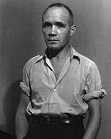
On Apr. 22, 1957 Jean Genet (1910-86) debuts his play The Balcony at the Arts Theatre Club in London, followed by the Circle in the Square Theatre in New York on Mar. 3, 1960; pub. in French in 1956; an upscale brothel ("house of illusions") run by madam Irma (Selma Vaz Dias) in an unnamed city during a rev. in the streets, where patrons play public authority figures (Irma = the Queen); after the rev. ends, they become the real authority figures; filmed in 1963 by Joseph Strick; Genet attempts to obstruct the London opening night performance but is blocked by the police.
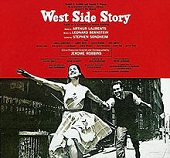
On Sept. 26, 1957 Leonard Bernstein (1918-90), Stephen Sondheim (1930-), and Arthur Laurents (1917-2011) debut their musical West Side Story at the Winter Garden Theatre in New York (732 perf.); based on Shakespeare's "Romeo and Juliet", about the Jets (white) and the Sharks (Puerto Rican) in ethnic blue-collar Upper West Side, New York City; Tony of the Jets (Larry Kert), best friend of gang leader Riff (Michael Callan) falls in love with Maria (Carol Lawrence), sister of Bernardo, leader of the Sharks; produced by Harold Prince and Robert E. Griffith; choreographed by Jerome Robbins; filmed in 1961; features the songs Maria, America, Tonight, One Hand, One Heart, Officer Krupke. Somewhere, Tonight, A Boy Like That, I Feel Pretty, Cool.

On Dec. 19, 1957 Meredith Willson (1902-84) and Franklin Lacey (1917-88) debut their musical The Music Man at the Majestic Theatre in New York, followed on Apr. 15, 1961 by the Broadway Theatre in New York (1,375 perf.); set in his home town of River City (really Mason), Iowa; 1912 con man "Professor" Harold Hill (Robert Preston) promises to set up a boys band and plans to skip town until he falls for librarian Marian Paroo (Barbara Cook); features the songs Iowa Stubborn, 76 Trombones, Ya Got Trouble, Till There Was You, Shipoopi, Goodnight, My Someone; introduces barbership harmony to the public consciousness; filmed in 1962.
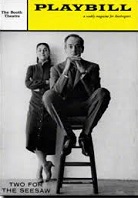
On Jan. 16, 1958 William Gibson (1914-2008) debuts his play Two for the Seesaw at the Booth Theatre in New York (750 perf.); stars Henry Fonda as Jewish atty. Jerry, who lives next door to young Jewish babe Gittel (Anne Bancroft), who utters the soundbyte: "He may have slept with me, but I didn't sleep with him"; filmed in 1962 by Robert Wise, starring Robert Mitchum and Shirley MacLaine.
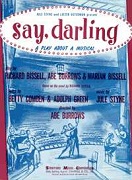
On Apr. 3, 1958 Abe Burrows (1910-85), Russell Bissell (1913-77), and Marian Bissell debut their comedy Say, Darling at the ANTA Theatre in New York, followed by the Martin Beck Theatre in New York (332 perf.); about the creation of a Broadway musical, with nine original songs by Jule Styne, with lyrics by Betty Comden and Adolph Green, starring David Wayne (later Eddie Albert) as bestselling novelist Jack Jordan, who develops his novel into a musical for leading lady Irene Lovelle (Vivian Blaine), dir. Richard Hackett (Jerome Cowan), and producer Ted Snow (Robert Morse); choreographed by Matt Mattox.
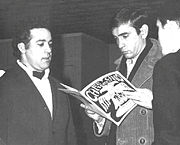
In 1958 retired gay dancer Joseph "Joe" Cino (1931-67) founds Caffe Chino at 31 Cornelia St. in Greenwich Village, N.Y., debuting James Howard's "Flyspray" in summer 1960, introducing acts with the phrase "It's magic time!", founding the Off-Off-Broadway movement consisting of theaters with less than 100 seats and often using non-union actors; in May 1964 Lanford Wilson debuts his play "The Madness of Lady Bright" (205 perf.), becoming Cino's breakthrough hit; he goes on to launch the careers of Doric Wilson, William Hoffman, Robert Patrick, John Guare, Tom Eyen, Sam Shepard, Robert Heide, Paul Foster, Jean-Claude van Italie, Lanford Wilson, Tom O'Horgan, Marshall W. Mason, Al Pacino, and Bernadette Peters.
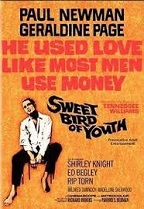
On Mar. 10, 1959 Tennessee Williams (1911-83) debuts his play Sweet Bird of Youth at the Martin Beck Theatre in New York (375 perf.); gigolo drifter Chance Wayne (Paul Newman) and faded movie star Alexandra Del Lago (Geraldine Page), who is traveling incognito as Princess Kosmonopolis, and whom Wayne hopes to use to help him break into the movies while trying to get back his youthful girlfriend he lost when her father ran him out of town; written for Williams' good friend Tallulah Bankhead.

On Mar. 11, 1959 Lorraine Hansberry (1930-65) debuts her play A Raisin in the Sun at the Ethel Barrymore Theatre in New York, becoming the first Broadway play written by a black playwright; title taken from the Langston Hughes 1951 poem "Montage of a Dream Deferred".
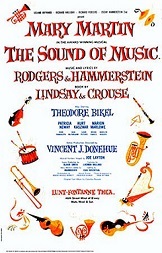
On Nov. 16, 1959 Richard Rodgers (1902-79), Oscar Hammerstein II (1895-1960), Howard Lindsay (1889-1968), and Russel Crouse (1893-1966) debut their musical play The Sound of Music in New York, becoming the last Rogers and Hammerstein musical, based on "The Story of the Trapp Family Singers" by Maria von Trapp; set in Austria in 1938; young abbey novice Maria (Mary Martin) takes a job as a governess to a large family, and falls in love with widowed father Capt. von Trapp (Theodore Bikel), fleeing with him from the Nazis with the children; filmed in 1965 starring Julie Andrews and Christopher Plummer; songs incl. The Sound of Music (recorded by Patti Page), My Favorite Things, Do-Re-Mi, Climb Ev'ry Mountain, Edelweiss (last song composed by Hammerstein II).

On Nov. 23, 1959 Jerry Bock (1928-), Sheldon Harnick (1924-), George Abbott (1887-1995), and Jerome Weidman (1913-98) debut their musical Fiorello! at the Broadhurst Theatre in New York, moving to the Broadway Theatre in New York on May 9, 1961 (795 perf.); dir. by George Abbott; choreography by Peter Gennaro; stars Tom Bosley as LaGuardia, and Howard Da Silva as Repub. machine boss Ben Marino; about New York City mayor (1934-45) Fiorello Henry LaGuardia (1882-1947) and how he broke the Tammany Hall machine; features the songs My Name's La Guardia ("Tammany spells tyranny like r-a-t spells rat"), Little Tin Box, Politics and Poker.

On May 3, 1960 Harvey Lester Schmidt (1929-) and Tom Jones (1928-) debut their musical The Fantasticks at the Sullivan St. Playhouse in New York (17,162 perf.) (world's longest-running musical until ?); based on the play "Les Romanesques" (The Romancers) by Edmond Rostand; two fathers fake a feud and put up a wall between their houses so that reverse psychology will cause their children to fall in love, then hire actors to stage a mock abduction so that Matt can become a hero saving Luisa; later they discover the plot and separate, then return having learned from the world that they really love each other; uses the word "rape" to mean abduction (Lat. rapere), pissing-off the PC police; filmed in 1995; features the songs Try to Remember, and Soon It's Gonna Rain.

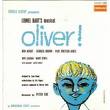
On June 30, 1960 Stepney, London-born Lionel Bart (Begleiter) (1930-99) debuts his musical Oliver! at the New Theatre in West End, London (2,618 perf.), followed by the Imperial Theater in New York on Jan. 6, 1963 (774 perf.); based on Charles Dickens' 1837 novel "Oliver Twist"; dir. by Peter Coe; stars Ron Moody as Fagin, and Georgia Brown as Nancy; Broadway production stars Davy Jones as the Artful Dodger; filmed in 1968; features the songs Food, Glorious Food, Fine Life, Oliver!, Where Is Love?, Oom-Pah-Pah, Consider Yourself, You've Got to Pick a Pocket or Two, I'd Do Anything, As Long As He Needs Me.
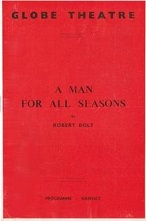
On July 1, 1960 Robert Oxton Bolt (1924-95) debuts his play A Man for All Seasons at the Globe Theatre in London, followed by the ANTA Playhouse in New York on Nov. 22, 1961 (620 perf.); about Sir Thomas More (1478-1535), played by Paul Scofield; written by an agnostic Socialist who admires his will to stand up to a king; "What matters is not that it's true, but that I believe it; or no, not that I believe it, but that I believe it"; filmed in 1966 starring Paul Scofield, and in 1988 starring Charlton Heston.
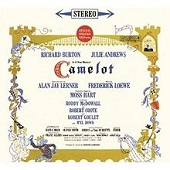
On Oct. 1, 1960 Alan Jay Lerner (1918-86) and Frederic Loewe (1901-88) debut their musical Camelot at the O'Keefe Centre in Toronto, followed on Dec. 3 by the Majestic Theatre in New York, closing on Jan. 5, 1963 after 873 perf.; based on the 1958 T.H. White novel "The Once and Future King"; Richard Burton's only appearance in a musical, as King Arthur; also stars Julie Andrews as Queen Guinevere, Roddy McDowell as Mordred, Robert Goulet as Sir Lancelot, and John Cullum as Sir Dinadan in their first Broadway roles; pres.-elect JFK attends a perf., launching the Camelot legend of his admin.
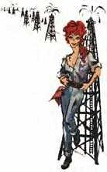
On Dec. 16, 1960 Cy Coleman (1929-2004), Carolyn Leigh (1926-83), and N. Richard Nash (1913-2000) debut their musical Wildcat at the Alvin Theatre in New York (171 perf.); dir. and choreographed by Michael Kidd; stars 48-y.-o. Lucille Ball (her only musical) as Wildcat "Wildy" Jackson in 1912 oil boom town Centavo City, and Keith Andes (after Kirk Douglas turns it down) as her partner Joe Dynamite; stars Paula Stewart as Jane Jackson; Valerie Harper is in the chorus; shuts down after Ball suffers a lingering illness and fatigue; features the song Hey, Look Me Over.
In 1960 Back Stage (Backstage) weekly mag., ed. by Ira Eaker (1921-2002) and Allen Zwerdling (1922-2009) begins pub. in New York City, becoming a must-read for stage and movie actors looking for work, zooming from 10K to 32K copies/week; in 1994 they found "Back Stage West" for readers in Los Angeles, Calif., reaching 24K copies/week; in 1986 it is acquired by Billboard Pubs.

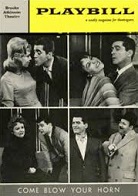
On Feb. 22, 1961 Bronx, N.Y.-born Marvin Neil Simon (1927-2018) debuts his play Come Blow Your Horn (Brooks Atkinson Theater, New York) (Feb. 22) (678 perf.); his first Broadway hit, about a Jewish businessman (Lou Jacobi), whose his rebellious son Buddy (Warren Berlinger) decides to leave the nest to live in the bachelor pad of his older brother Alan (Hal March), starting his string of hits that make him #1, with the most Oscar and Tony nominations of all time; dir. by Stanley Prager; filmed in 1963 starring Frank Sinatra as Alan and Tony Bill as Buddy.
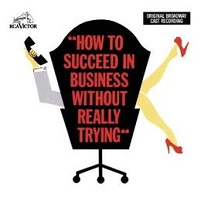
On Oct. 14, 1961 Abe Burrows (1910-85), Willie Gilbert (1916-80), Frank Loesser (1910-69), and Jack Weinstock (-1969) debut their musical How to Succeed in Business Without Really Trying (46th Street Theatre, New York) (Oct. 14) (1,417 perf.) (Pulitzer Prize); based on the 1952 book by Shepherd Mead (1914-94); J. Pierrepont Finch (Robert Morse) climbs from window washer to mail room to chmn. of World Wide Wickets in one week, vying with pres. J.W. Biggley (Rudy Vallee).
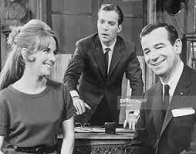
On Oct. 18, 1961 Marcel Achard (1899-1974) and Harry Kurnitz (1908-68) debut their play A Shot in the Dark at the Booth Theatre in New York (389 perf.), adapted from Achard's play "L'Idiote"; stars Julie Harris, Walter Matthau, and William Shatner; adapted for the 1963 Blake Edwards film "The Pink Panther".
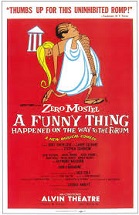
On May 8, 1962 Stephen Sondheim (1930-), Burt Shevelove (1915-82), and Larry Gelbart (1928-) debut their musical A Funny Thing Happened on the Way to the Forum at the Alvin Theatre in New York, followed by the Mark Hellinger Theatre and the Majestic Theatre (964 perf.); dir. by George Abbott; produced by Hal Prince; choreography by Jack Cole; costume design by Tony Walton; slave Pseudolus (Zero Mostel, after Phil Silvers turns it down helps his young master shag the girl next door; inspired by the farces of ancient Roman writer Plautus (-251 to -183); filmed in 1966.

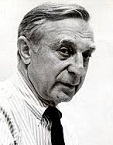
On Sept. 23, 1962 the New York Philharmonic Hall, designed by Max Abramovitz (1908-2004) is the first bldg. to open at the new Lincoln Center for the Performing Arts in Manhattan, N.Y., whose first pres. is composer William Howard Schuman (1910-92) (until 1969), going on to house the Metropolitan Opera (1966) and the New York City Ballet.

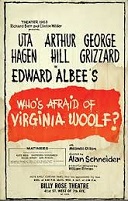
On Oct. 13, 1962 Va.-born Edward Franklin Albee III (1928-2016) debuts his black comedy Who's Afraid of Virginia Woolf? at the Billy Rose Theatre in New York) (664 perf.); stars Uta Hagen and Arthur Hill as Martha and George (based on New York socialites Willard Maas and Marie Menken), Melinda Dillon as Honey, and George Grizzard as Nick, two college profs. and their wives, who spend 3 hours exploring who's afraid of living life without false illusions; "I am, George, I am" (Martha); "Humiliate the Host", "Get the Guests", "Hump the Hostess", "Bringing Up Baby"; features Bette Davis' line "What a dump"; Am. drama critic John Mason Brown (1900-69) resigns from the Pulitzer Prize drama jury after his nomination is rejected on the grounds of obscenity; filmed in 1966 starring Richard Burton and Elizabeth Taylor.
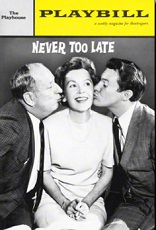
On Nov. 27, 1962 Sumner Arthur Long (1921-93), Never Too Late debut their comedy at the Playhouse Theatre in New York (1,007 perf.); dir. by George Abbott; middle-age Harry Lambert (Paul Ford) and Edith Lambert (Maureen O'Sullivan) are expecting; filmed in 1965.
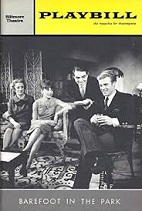
On Oct. 23, 1963 Neil Simon (1927-2018) debuts his romantic comedy Barefoot in the Park at the Biltmore Theatre in New York (1,530 perf.), his 2nd Broadway hit, about honeymooners Paul Bratter (Robert Redford) and Corie Bratter (Elizabeth Ashley) living in a couped-up broken-down 5th floor Greenwich Village flat and dealing with oddball neighbor Victor Velasco (Kurt Kasznar) and Corie's mother Mrs. Banks (Mildred Natwick); he finally drops his button-down atty. ways and walks you know what in the you know where for her in winter to prove his love; filmed in 1967 starring Robert Redford and Jane Fonda.


On Jan. 16, 1964 Jerry Herman (1931-) and Michael Stewart (1924-87) debut their musical Hello, Dolly! at the St. James Theater in New York (2,844 perf.); produced by David Merrick; based on the 1955 Thornton Wilder play "The Matchmakers", and the hit song by Louis Armstrong; original title "Dolly, A Damned Exasperating Woman", changed for the Armstrong song; produced by David Merrick; stars Carol Channing (1921-) as meddling matchmaker Dolly Gallagher Levi after Ethel Merman (for whom the part was written), turns it down, followed by Mary Martin; filmed in 1969.
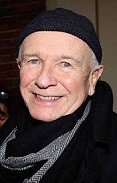
On Feb. 4, 1964 St. Petersburg, Fla.-born gay playwright Terrence McNally (1938-) debuts his first play And Things That Go Bump in the Night at the Guthrie Theater in Minneapolis, moving to the Royale Theatre in New York on Apr. 28, 1965 (16 perf.), about a family living in fear in their basement, incl. Fa, Grandfa, Ruby, her daughter Lakme, and her son Sigfrid, along with visitor Clarence.
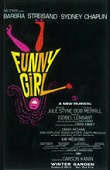
On Mar. 26, 1964 Bob Merrill (1921-98), Jule Styne (1905-94), and Isobel Lennart (1915-71) debut their musical Funny Girl at the Winter Garden Theatre in New York (1,348 perf.); stars Barbara Streisand as Fanny Brice, and Sydney Chaplin as Nick Arnstein; features the song People by Bob Merrill; filmed in 1968 starring Barbra Streisand and Omar Sharif.

In May 1964 Lebanon, Mo.-born gay playwright Lanford Wilson (1937-2011) debuts his play The Madness of Lady Bright at Caffe Chino in Greenwich Village, N.Y. (205 perf.), about aging drag queen Leslie Bright, becoming the first play to portray gays as normal people; it closes after the Apr. 2, 1967 suicide of gay owner Joe Cino (b. 1931).

On Sept. 22, 1964 Jerry Bock (1928-), Sheldon Harnick (1924-), and Joseph Stein (1912-) debut their musical Fiddler on the Roof at the Imperial Theatre in New York (3,242 perf.) (first musical to pass the 3K perf. mark); based on the story "Tevye and His Daughters" by Sholom Aleichem about Jews in 1905 Anatevka, Russia, and paintings by Marc Chagall; dir. by Jerome Robbins; poor Jewish milkman Tevye (Zero Mostel) tries to raise his five daughters (Tzeitel, Hodel, Chava, Sphrintze, Bielke) without losing his Jewish culture; Tevye's wife Golde, village matchmaker Yente, wealthy butcher Lazar Wolf; "Without our traditions our lives would be as shaky as a fiddler on the roof"; features the songs Tradition, Matchmaker, Matchmaker, If I Were a Rich Man, Sunrise, Sunset, Do You Love Me?; filmed in 1971.

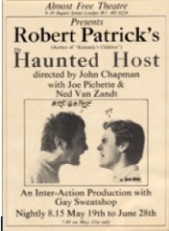
In 1964 Kilgore, Tex.-born gay playwright Robert Patrick (O'Connor) (1937-) debuts his first play The Haunted Host at Caffe Cino in Greenwich Village, launching his career in Off-Off-Broadway gay theater, with 300+ productions by the end of the decade.

On Mar. 10, 1965 Neil Simon (1927-2018) debuts his play The Odd Couple at the Plymouth Theatre in New York, followed by the Eugene O'Neill Theatre in New York (966 perf.); dir. by Mike Nichols; based on his brother Danny Simon and theatrical agent Roy Gerbert (Mel Brooks and Speed Vogel?) moving in together after divorces; fastidious newswriter Felix Unger (Art Carney) and slovenly sportswriter Oscar Madison (Walter Matthau), who reside at 1049 Park Ave.; Jack Klugman later subs for Matthau; on June 11, 1985 "The Female Odd Couple debuts at the Broadhurst Theatre in New York (295 perf.), featuring the Broadway debut of Tony Shalhoub.
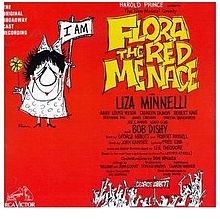
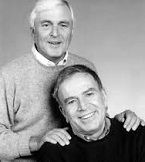
On May 11, 1965 John Kander (1927-), Fred Ebb (1928-2004), George Francis Abbott (1887-1995), and Robert Russell (1912-92) debut their musical Flora the Red Menace at the Alvin Theatre in New York (87 perf.); produced by Harold Prince; dir. by Abbott; stars Liza Minnelli in her Broadway debut, winning a Tony Award for best actress in a musical, becoming the youngest until Frankie Michaels in 1966; features the song A Quiet Thing; the first team production of composer John Harold Kander (1927-) and lyricist Fred Ebb (1928-2004), who go on to produce "Cabaret" (1966) and "Chicago" (1975).

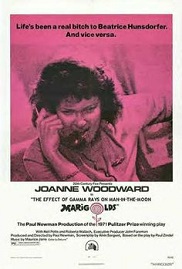
On May 12, 1965 Staten Island, N.Y.-born Paul Zindel (1936-2003) debuts his first play The Effect of Gamma Rays on Man-in-the-Moon Marigolds (Pulitzer Prize) at the Alley Theatre in Houston, followed by the Mercer-O'Casey Theatre in New York on Apr. 7, 1970 (819 perf.); dir. by Melvin Bernhardt; a dysfunctional family headed by single mother Beatrice Hunsdorfer, who has two daughters, extroverted Ruth, and introverted Matilda "Tillie", who is preparing her science fair experiment consisting of seeds exposed to radioactivity, while the other two try to sabotage her; at the end Tillie wins, and Beatrice kills the girls' pet rabbit Peter; stars Pamela Payton-Wright as Tillie, Amy Levitt as Ruth, Sada Thompson as Beatrice, and Swoosie Kurtz as Janice Vickery; filmed in 1972 by Paul Newman starring Joanne Woodward.
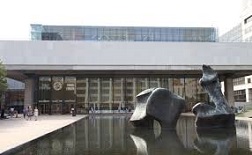
On Oct. 21, 1965 the $9.6M Vivian Beaumont Theater at the Lincoln Center at 150 West 65th St. in Manhattan, N.Y. (cap. 1.2K) opens, designed by Eero Saarinen becoming the only Broadway-class theater not located in the Theater District near Times Square, named after May Dept. Stores heiress Vivian Beaumont Allen (1885-1962), debuting with the 1835 play "Danton's Death" by George Buechner, starring James Earl Jones and Stacy Keach; in 1985 the Forum in the lower level becomes the Mitze E. Newhouse Theatre (cap. 299); in 2012 the Claire Tow Theatre opens on the roof.

On Nov. 11, 1965 William Alfred (1922-99) debuts his drama Hogan's Goat at the Theater at St. Clement's Church in New York, moving to the East 74th St. Theatre in New York (607 perf.); about Irish-Am. mayoral politics in 1890 Brooklyn, N.Y.; dir. by Frederick Rolf; stars Ralph Waite as Matthew Stanton, and Tom Ahearne as his rival Ned Quinn, who discovers that Stanton and his wife Kathleen, played by Faye Dunaway (1941-) were never married in a Catholic church, and that Stanton was once a goat (kept man) of Quinn's ex-girlfriend Agnes Hogan; makes Dunaway a star.
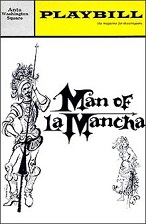
On Nov. 22, 1965 Dale Wasserman (1917-), Mitch Leigh (1928-), and Joe Darion (1917-) debut their musical Man of La Mancha (Washington Square Theatre, New York) (Martin Beck Theatre, New York) (Mar. 20, 1968) (Eden Theatre, New York) (Mar. 3, 1971) (Mark Hellinger Theatre, New York) (May 26, 1971) (2,328 perf.); inspired by Miguel de Cervantes' 1605/1615 novel "Don Quixote", set in a prison where Cervantes is being held by the Inquisition; stars Richard Kiley as Don Quixote, Irving Jacobson as Sancho Panza, Ray Middleton as the Innkeeper, Robert Rounseville as The Padre, and Joan Diener as Aldonza; features the songs The Impossible Dream (The Quest), sung by Richard Kiley, and later by Elvis Presley (1971), Tom Jones, Andy Williams, Matt Monro, USMC Pfc Gomer Pyle (Jim Nabors) et al.; "To dream the impossible dream/ To fight the unbeatable foe/ To bear with unbearable sorrow/ And to run where/ The brave dare not go... This is my quest, to follow that star/ No matter how hopeless,/ No matter how far,/ To fight for the right/ Without question or pause/ To be willing to march,/ March into hell/ For that heavenly cause."
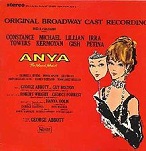
On Nov. 29, 1965 Robert Wright (1914-2005), George Forrest (1915-99), George Abbott (1887-1995), and Guy Bolton (1884-1979) debut their musical Anya at the Ziegfeld Theater in New York (16 perf.); based on Marcelle Maurette's play "Anastasia" and the 1956 film; stars Constance Towers as Anya, Michael Kermoyan as Bounine, Karen Shepard as Genia, "Floperetta Queen" Irra Petina as Katrinia, and Lillian Gish as the Dowager Empress; last production in the Ziegfeld Theatre, who started out in 1927 with "Show Boat"; too bad, critics pan it as an operetta, and it flops.
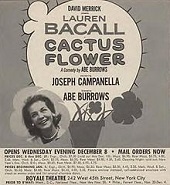
On Dec. 8, 1965 Abe Burrows (1910-85) debuts his farce Cactus Flower at the Royale Theatre in New York (1,234 perf.); based on the play "Fleur de Cactus" by Pierre Barillet and Jean-Pierre Gredy about young wild chick Toni (Brenda Vaccaro) and her old man dentist lover Julian Winston (Barry Nelson), who claims he's married to keep from having to marry her, causing her to attempt suicide, after which he gets his shy spinster nurse Stephanie Dickinson (Lauren Bacall) to pose as his wife to fool her and convince her to get a new beau; filmed in 1969 starring Walter Matthau, Goldie Hawn, and Ingrid Bergman.
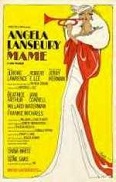
On May 25, 1966 Jerry Herman (1931-), Jerome Lawrence (1915-2004), and Robert Edwin Lee debut their musical Mame (original title "My Best Girl") at the Winter Garden Theatre in New York (1,508 perf.), based on the 1955 Patrick Dennis novel; stars Angela Lansbury as eccentric Mame Dennis, who leads a fabulous life with wealthy friends until her late brother's son arrives; Lansbury is followed in Aug. 1967 by Celeste Holm, in Apr. 1968 by Janis Paige, in Dec. 1968 by Jane Morgan, and in May 1969 by former movie dancer Ann Miller, who does a tap dance number created just for her that wows the audience; features the songs If He Walked Into My Life, Open a New Window, We Need a Little Christmas. Eugene Ionesco (1909-94), La Lacune; filmed in 1958 starring Rosalind Russell, and in 1974 starring Lucille Ball.
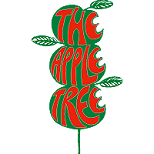
On Oct. 18, 1966 Jerry Bock (1928-) and Sheldon Harnick (1924-) debut their musical The Apple Tree at the Shubert Theatre in New York (463 perf.); three acts, each based on another work: "The Diary of Adam and Eve" by Mark Twain (1835-1910), "The Lady or the Tiger?" by Frank Richard Stockton (1834-1902), "Passionella" by Jules Feiffer (1929-); stars Barbara Harris, Larry Blyden, and Alan Alda.

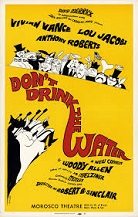
On Nov. 17, 1966 Brooklyn, N.Y.-born Heywood "Woody" Allen (Allan Stewart Konigsberg) (1935-) debuts his first Broadway play Don't Drink the Water at the Morosco Theatre in New York (598 perf.); stars Kay Medford, Tony Roberts, Lou Jacobi, Anita Gilette, Dona Mills, and Richard Libertini; the Hollander family goes to Europe and is forced to land in Vulgaria behind the Iron Curtain, after which they are accused of spying for taking photos, and end up holed-up in the U.S. embassy; filmed in 1969 starring Jackie Gleason, and in 1994 starring Michael J. Fox.

On Nov. 20, 1966 Joe Masteroff (1919-), John Kander (1927-), and Fred Ebb (1933-2004) debut their musical Cabaret at the Broadhurst Theater in New York (1,165 perf.); produced and dir. by Harold Prince; based on Christopher Isherwood's Berlin Stories" and John Van Druten's 1951 play "I Am a Camera", about Sally Bowles and the Kit Kat Club in Berlin before Hitler shuts them down, and her Am. lover Clifford; stars Joel Gray (MC), Jill Haworth (Sally), Bert Convy (Clifford), Jack Gifford (Herr Schultz), Lotte Lenya (Fraulein Schneider); features the songs Cabaret, Wilkommen, The Money Song; filmed in 1972.

On Feb. 22, 1967 Barbara Garson (1941-) debuts her play MacBird at the Village Gate Theater in New York (386 perf.); a counterculture anti-Vietnam War anti-LBJ pro-third party parody of Shakespeare's "Macbeth", accusing LBJ of murdering JFK, with Lady MacBird uttering the soundbyte "Out, damned odor"; becomes a big hit, sells 500K copies as a book, and is produced worldwide; makes stars of newbies Stacey Keach, William Devane, Cleavon Little, and Rue McClanahan.
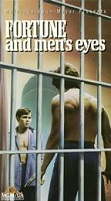
On Feb. 23, 1967 John Herbert Brundage (1926-2001) debuts his play Fortune and Men's Eyes at the Actors Playhouse in New York (382 perf.); title taken from Shakespeare's Sonnet 39; autobio. gay-friendly interracial prison drama exploring sexual slavery becomes most successful Canadian play to date; stars Robert Christian and Victor Arnold; filmed in 1971 by Harvey Hart.

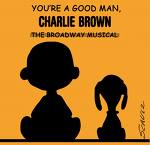
On Mar. 7, 1967 Augusta, Maine-born Clark Gesner (1938-2002) debuts his musical You're a Good Man, Charlie Brown at the Theater 80 St. Marks in New York (1,579 perf.), followed by the Fortune Theatre in West End, London on Feb. 1, 1968 (116 perf.); based on the Charles M. Schulz "Peanuts" comic strip; stars Gary Burghoff as Charlie Brown, Bob Balaban as Linus, and Bill Hinnant as Snoopy; features the song Happiness.
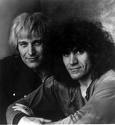

On Oct. 29, 1967 the hippie counterculture rock musical Hair: The American Tribal Love-Rock Musical, by bi actor-lovers Gerome Bernard Ragni (1935-91) and James Rado (James Alexander Radomsky) (1932-), with music by Canadian-born Galt MacDermot (1928-) opens off-Broadway in the Pubic, er, Public Theatre of Joe Papp in Greenwich Village, followed by the Cheetah Nightclub in Manhattan for 1 mo., then opens on Broadway at the Biltmore Theatre next Apr. 29, running for 1,750 perf., followed by 1,998 more in London, introducing the rock musical, with ticket-selling nudity, drugs, profanity, multiracial cast, and irreverence for the U.S. flag, phony cops busting the show at the end of the first act, topped by a Hare Krishna chant and a Be-In finale that invites the audience onstage; about the Tribe in New York City, incl. Claude, Berger, and Sheila, living a bohemian lifestyle while fighting the draft; first rock musical, and first nude scene in a commercial Broadway musical; stars Gerome Ragni as Bezar; set in the fall after the 1967 Summer of Love, complete with draft card burning; features the songs Hare Krishna, Aquarius, Good Morning Starshine, Let the Sun Shine In.

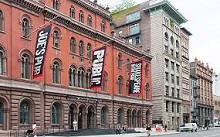
In 1967 Joseph "Joe" Papp (Papirofsky) (1921-91) founds The Public Theatre at 425 Lafayette Street in the former Astor Library in the East Village section of Lower Manhattan, N.Y., opening with the world debut of the musical Hair and going on to host avant-garde plays by David Rabe, Ntozake Shange, Charles Gordone et al.
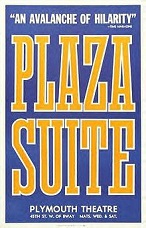
On Feb. 14, 1968 Neil Simon (1927-2018) debuts his comedy Plaza Suite (Feb. 14) (Plyouth Theatre, New York) (1,097 perf.); three 1-act plays centered on Suite 719 of New York's Plaza Hotel, incl. "Visitor from Mamarneck" (about Sam and Karen Nash), "Visitor from Hollywood" (about Jesse Kiplinger and Muriel Tate), "Visitor from Forest Hills" (about Roy and Norma Hubley and their daughter Mimsey); dir. by Mike Nichols; stars George C. Scott, Maureen Stapleton, and Bob Balaban; filmed in 1971 starring Walter Matthau.
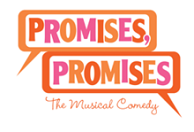
On Dec. 1, 1968 Burt Bacharach (1928-), Hal David (1921-), and Neil Simon (1927-2018) debut their musical Promises, Promises at the Shubert Theatre in New York (1,281 perf.); based on the 1960 Billy Wilder film "The Apartment"; dir. by Robert Moore; choreographed by Michael Bennett and Bob Avian; stars Jerry Orbach as Chuck Baxter, Jill O'Hara as Fran Kubelik, and Edward Winter as J.D. Sheldrake; features the song I'll Never Fall in Love Again, which becomes a hit for Dionne Warwick.
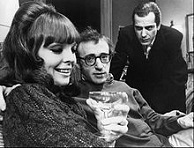
On Feb. 12, 1969 Woody Allen (1935-) debuts his 2nd Broadway play Play It Again, Sam at the Broadhurst Theatre in New York (453 perf.); stars Woody Allen as recently divorced film mag. writer Allan Felix, who falls for Linda (Diane Keaton), wife of his best friend Dick Christie (Tony Roberts), while getting advice from the ghost of Humphrey Bogart (Jerry Lacy); filmed in 1972.
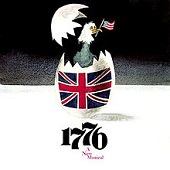
On Mar. 16, 1969 Peter Stone (1930-2003) and Sherman Edwards (1919-81) debut their musical 1776 at the 46th Street Theatre in New York (1,217 perf.); stars Howard Da Silva as Benjamin Franklin (1706-90), William Daniels as John Adams (1735-1826), Ken Howard as Thomas Jefferson (1743-1826), and Virginia Vestoff as Abigail Adams (1744-1818); John Adams's struggle to convince his colleagues to vote for independence and sign the DOI; a cerebral struggle ending in a compromise on slavery becomes a great entertainment for the college crowd?; beats "Hair" for best musical of 1969; filmed in 1972.

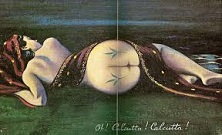
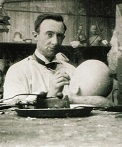
On June 17, 1969 Kenneth Peacock Tynan (1927-80) debuts his musical Oh! Calcutta! at the Eden Theater in New York) (1,314 perf.); title taken from a 1946 painting by French artist Clovis Trouille (1889-1975) titled "Oh! Calcutta, Calcutta!", a pun on "Oh quel cul t'as" (Oh what an ass you have); erotic avant-garde theatrical revue about every conceivable erotic fantasy of Western man, with musical lyrics by the Open Door, featuring contributions by Samuel Beckett (1906-89), Jules Feiffer (1929-), Bruce Jay Friedman (1930-), Dan Greenberg, John Lennon (1940-80), Sam Shepard (1943-) et al.; full nudity and blatant sexual content prompt a nat. shaken-and-restirred master debate on censorship; in 1970 the Dave Pell Singers release Oh, Calcutta; in June 1972 the film Oh! Calcutta is released; runs 610 perf., then is revived next year in West End, London (3.9K perf.), and revived again on Broadway on Sept. 24, 1976- Aug. 6, 1989 (5,959 perf.), becoming the 2nd longest-running musical in Broadway history (7th longest by 2012).
On July 14, 1969 the Circle Theater Co. is founded in Manhattan, N.Y. by Caffe Cino veterans Marshall W. Mason, Lanford Wilson, Rob Thirkield, and Tanya Berezin to nourish a pool of artists for the creation of plays, moving in the early 1970 to the Sheridan Square Playhouse, which in the early 1980s becomes the Circle Repertory Theatre; in 1974 the New York Times calls it the "chief provider of new American plays"; playwrights incl. Jon Robin Baltz, John Bishop, Jules Feiffer, Herb Gardner, William M. Hoffman, Albert Innaurato, Larry Kramer, Craig Lucas, David Mamet, William Mastrosimone, Terrence McNally (1938-), Mark Medoff, Marsha Norman, Robert Patrick, Sam Shepard, Lanford Wilson, and Tennessee Williams; actors incl. Joan Allen, Alec Baldwin, Kathy Bates, Lindsay Crouse, Jeff Daniels, Olympia Dukakis, Laurence Fishburne, Scott Glenn, Farley Granger, Ed Harris, Joan Hart, Judd Hirsch, William Hurt, Timothy Hutton, Swoosie Kurtz, Christine Lahnti, Piper Laurie, Jennifer Jason Leigh, John Malkovich, Demi Moore, Cynthia Nixon, Mary-Louise Parker, Christopher Reeve, and Gary Sinise; it disbands in 1996.
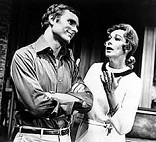
On Oct. 21, 1969 Leonard Gershe (1922-2002) debuts his play Butterflies Are Free at the Booth Theatre in New York (1,128 perf.); title taken from Charles Dickens' "Bleak House": "I only ask to be free. The butterflies are free. Manking will surely not deny to Harold Skimpole what it concedes to the butterflies"; stars Keir Dullea as blind Manhattan atty. Don Baker (based on Harold Krents), who hooks up with free-spirited hippie Jill Tanner (Blythe Danner), pissing-off his domineering mother Mrs. Baker (Eileen Heckart); filmed in 1972 starring Edward Albert and Goldie Hawn.
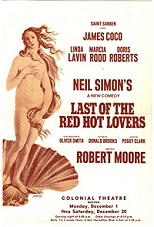
On Dec. 28, 1969 Neil Simon (1927-2018) debuts his comedy Last of the Red Hot Lovers at the Eugene O'Neill Theatre in New York (706 perf.); dir. by Robert Moore; stars James Coco as married middle-aged Jew Barney Cashman, who tries to join the sexual rev. by unsuccessfully chasing three women, incl. Elaine Navazio (Linda Lavin), Bobbi Michele (Marcia Rodd), and Jeannette Fisher (Doris Roberts); filmed in 1972 by Gene Saks, starring Alan Arkin as Barney, Sally Kellerman as Elaine, Paula Prentiss as Bobbi, and Renee Taylor as Jeannette.

On Feb. 2, 1970 Richard Seff (1927-) debuts his comedy Paris Is Out! at the Brooks Atkinson Theatre in New York (96 perf.); stars Molly Picon and Sam Levene; produced by David Black and New York City-born Donald John Trump (1946-); after it flops, recent Wharton School of the U. of Penn. grad Trump decides to go into real estate.
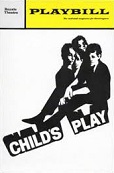
On Feb. 12, 1970 Robert Marasco (1936-98) debuts his first play Child's Play at the Royale Theatre in New York (342 perf.); original title "The Dark"; produced by David Merrick; dir. by Joseph Hardy; big hit about demonic doings at the St. Charles Roman Catholic boys boarding school, inspired by a newspaper story about a teacher who gave kids some homework and jumped out of the window; stars Pat Hingle as Joseph Dobbs, Fritz Weaver as Jerome Malley, Ken Howard as Paul Reese, and Michael McGuire as Father Frank Mozian; filmed in 1972 by Sidney Lumet.
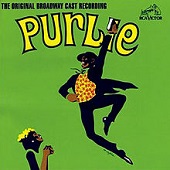
On Mar. 15, 1970 Gary Geld (1935-), Peter Udell (1929-), Ossie Davis (1917-2005), and Philip Rose (1921-2011) debut their musical Purlie at the Broadway Theatre in New York, followed by the Winter Garden Theatre in New York and the ANTA Theatre in New York (688 perf.); based on Davis' 1961 play "Purlie Victorious" and the 1963 film "Gone Are the Days!", about Jim Crow era Southern traveling preacher Purlie Victorious Judson (Cleavon Little) (later Robert Guillaume), who returns to a small Ga. town to save the Big Bethel Church and help free cotton pickers from the Ol' Cap'n Cotchipee Plantation; features the song I Got Love.
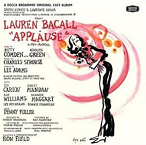
On Mar. 30, 1970 Charles Strouse (1928-), Lee Adams (1924-), Betty Comden (1917-2006), and Adolph Green (1914-2002) debut their musical Applause at the Palace Theatre in New York (896 perf.); based on the 1950 film "All About Eve", and the Mary Orr story "The Wisdom of Eve"; choreographed by Ron Field; stars Lauren Bacall (later Anne Baxter, and Arlene Dahl, after Rita Hayworth proves to have Alzheimer's) as Margo Channing, and Penny Fuller as Eve Harrington.
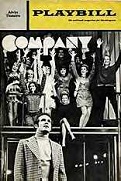
On Apr. 26, 1970 Stephen Sondheim (1930-) and George Furth (1932-2008) debut their musical Company (original title "Threes") at the Alvin Theatre in New York (705 perf.); dir. by Harold Prince; stars Dean Jones as single male Bobby, who has three girlfriends, Donna McKechnie, Susan Browning, Pamela Myers, and celebrates his birthday as five married couples who are his best friends tell about their gripes, giving the audience a lesson in adult relationships; "Broadway Theatre has been for many years supported by upper-middle-class people with upper-middle-class problems. These people really want to escape that world when they go to the theatre, and then here we are with Company talking about how we're going to bring it right back in their faces" (Sondheim); features the songs Company, Sorry-Grateful, The Little Things You Do Together, You Could Drive a Person Crazy.
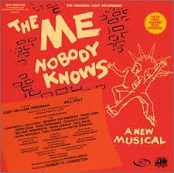
On May 18, 1970 Gary William Friedman and Will Holt (1929-) debut the rock musical The Me Nobody Knows at the Orpheum Theatre in New York (208 perf.), followed by the Helen Hayes Theatre in New York on Dec. 18, and the Longacre Theatre in New York on Nov. 14, 1971 (378 perf.); first Broadway hit to voice the sentiments of inner-city Am. youth, with a cast of eight blacks and four whites; stars Irene Cara (1959-) as Lillie Mae, Beverly Bremers (1950-) as Catherine, Hattie Winston (1945-) as Nell, and Northern J. Calloway (1948-70) (David in "Sesame Street"); features the songs If I Had a Million Dollars, Light Sings, Robert, Alvin, Wendell and Jo Jo - Rhoda, Lillian, Lillie Mae and William.
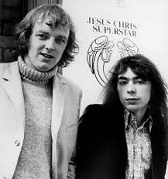
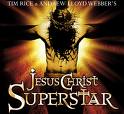
In Sept. 1970 Kensington, London-born composer Andrew Lloyd Webber (1948-) and Shardeloes, England-born lyricist Sir Timothy Miles Bindon "Tim" Rice (1944-) release their concept double album Jesus Christ Superstar (#1 in the U.S.), which sells $40M by the end of the year; banned by the BBC for being sacreligious, making it more popular?; incl. Superstar I Don't Know How to Love Him, King Herod's Song, Pilate's Dream, Hosanna, Gethsemane (I Only Want to Say), Simon Zealotes/Poor Jerusalem, Jesus Must Die. On Oct. 12, 1971 Webber and Rice debut their musical Jesus Christ Superstar at the Mark Hellinger Theatre in New York (711 perf.); dir. by Tom O'Horgan; the last seven days of the life of a most amazing Jew from Galilee, from the modern Jewish-Am. hippie POV, based on the concept album, starring Jeff Fenholt as Judas, Ben Vereen as Judas, and Bob Bingham as Caiaphas.

On Oct. 19, 1970 Jerry Bock (1928-), and Sheldon Harnick (1924-), and Sherman Yellen (1932-) debut their musical The Rothschilds at the Lunt-Fontanne Theatre in New York (505 perf.); based on the book by Frederic Morton, set in the 1770s; last work by Bock and Harnick; stars Hal Linden as Mayer Rothschild, Leila Martin as Gutele, Jill Clayburgh as Hannah Cohen, Chris Sarandon as Jacob Rothschild, and Robby Benson as young Solomon Rothschild.
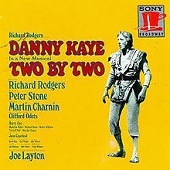
On Nov. 10, 1970 Richard Rodgers (1902-79), Martin Charnin (1934-), and Peter Stone (1930-2003) debut their musical Two by Two at the Imperial Theatre in New York (352 perf.); based on the 1954 Clifford Odets play "The Flower Peach"; the story of Noah and his preprations for the Great Flood; dir. by Joe Layton; stars Danny Kaye, Marilyn Cooper, Joan Copeland, Harry Goz, Madeline Kahn, Tricia O'Neil, and Walter Willison; Kaye keeps it alive by hamming it up differently in each performance.
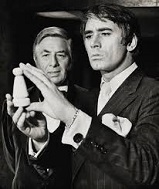
On Nov. 12, 1970 Liverpool-born Anthony Joshua Shaffer (1926-2001) (twin brother of Peter Shaffer) debuts his play Sleuth at the Music Box Theatre in New York (1,222 perf.); stars Anthony Quayle as mystery writer Andrew Wyke of Wiltshire (based on game-lover Stephen Sondheim), and Keith Baxter as his wife's lover Milo Tindle, whom he talks into staging a robbery of her jewelry in order to trap him, ending up in a cat-and-mouse game; filmed in 1972 starring Laurence Olivier and Michael Caine, in 2007 starring Jude Law and Michael Caine, and in 2014.

In 1970 Off-Broadway Theater comes into its own this year, winning most of the drama awards, incl. the Pulitzer Prize for drama, which goes to black playwright Charles Gordone (1925-95) for No Place to Be Somebody (1969); the Manhattan Theatre Club at 311 West 43rd St. is founded as an Off-Off-Broadway showcase, growing into a top theater org. that wins 19 Tony Awards, 48 Obie Awards, 32 Drama Desk Awards, six Pulitzer Prizes et al.
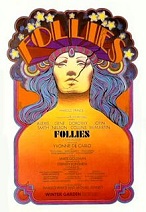
On Apr. 4, 1971 James Goldman (1927-98), Stephen Sondheim (1930-), and Michael Bennett (1943-87) debut their musical Follies (original title "The Girls Upstairs") at the Winter Garden Theatre in New York (522 perf.); dir. by Harold Prince and Michael Bennett; stars Alexis Smith as Phyllis Rogers Stone, John McMartin as Benjamin "Ben" Stone, Dorothy Collins as Sally Durant Plummer, Gene Nelson as Buddy Plummer, and Yvonne De Carlo as Carlotta Campion; features the songs Broadway Baby, Losing My Mind, I'm Still Here, Too Many Mornings, Could I Leave You?.
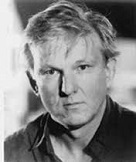
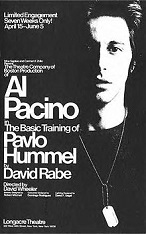
On May 19, 1971 Dubuque, Iowa-born David William Rabe (1940-) debuts his play The Basic Training of Pavlo Hummel at the Public Theater in New York, followed by the Longacre Theatre in New York on Apr. 24, 1977 (117 perf.); dir. by David Wheeler; about a soldier (Al Pacino) who dies in a Saigon brothel after mindlessly grabbing a live hand grenade; his conscience assumes the form of officer Ardell (Gustave Johnson); Joe Fields play Sgt. Tower; first in the Vietnam War trilogy ("Sticks and Bones", "Streamers").
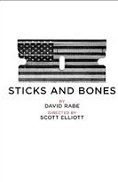
On Nov. 7, 1971 David Rabe (1940-) debvuts his play Sticks and Bones at Joseph Papp's Public Theater in New York, moving to the John Golden Theatre in New York on Mar. 1, 1972 (246 perf.); 2nd in his Vietnam War trilogy, about the TV Nelson family coping with their son's return from the war; stars Tom Aldredge as Ozzie, Anne Jackson as Harriet, and Cliff DeYoung as David.

On Feb. 14, 1972 Jim Jacobs (1942-), Warren Casey (1935-88), and John Clifford Farrar (1945-) debut their musical Grease at the Eden Theatre in New York, moving on June 7 to the Broadhurst Theater in New York (3,388 perf.); dir. by Tom Moore (1943-); Sandy Dumbrowski (Carole Demas) and Danny Zuko (Barry Bostwick) at Rydell H.S. in 1959, based on Taft H.S. in Chicago; features the songs Look at Me, I'm Sandra Dee, We Go Together, Shakin' at the High School Hop, Alone at a Drive-In Movie; the three 1-syllable Euro countries are Spain, France, and guess what?
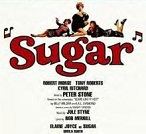
On Apr. 9, 1972 Bob Merrill (1921-98), Peter Stone (1930-2003), and Jule Styne (1905-94) debut their musical Sugar at the Majestic Theatre in New York (505 perf.); based on the 1959 film "Some Like It Hot"; produced by David Merrick; dir. by Gower Champion; stars Robert Morse as Jerry/Daphne, Tony Roberts as Joe/Josephine, Elaine Joyce as Sugar Kane, and Cyril Ritchard as Osgood Fielding Jr.
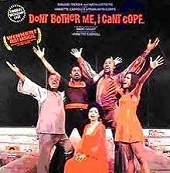
On Apr. 19, 1972 Vinnette Carroll (1922-2002) and Micki Grant (1941-) debut their musical revue Don't Bother Me, I Can't Cope at the Playhouse Theatre in New York) (1,065 perf.), about the African-Am. experience; stars Micki Grant (Minnie Perkins McCutcheon); Carroll becomes the first African-Am. woman to direct on Broadway, also the first to receive a Tony nomination for direction; features the songs Fighting for Pharaoh, My Name is Man, So Little Time, Time Brings About a Change.
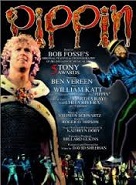
On Oct. 23, 1972 Stephen Schwartz (1948-) and Roger O. Hirson (1926-) debut their musical Pippin at the Imperial Theatre in New York) (1,944 perf.); Pippin the Hunchback, son of Charlemagne searches for the meaning of life; stars John Rubinstein as Pippin, nd Ben Vereen as the Leading Player; the TV ads become the first to show actual scenes from the show; features the song Magic to Do, sung by Vereen, with the chars. going into the audience afterwards to thank them for coming; Patina Miller plays the Leading Player in a 2013 revival, becoming the first two actors of different sexes to win a Tony for the same role.
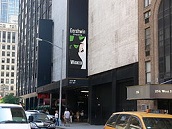
On Nov. 28, 1972 the $12.5M Art Nouveau Gershwin Theatre (Uris Theatre until June 5, 1983) at 222 West 51st St. in Manhattan, N.Y. opens on the site of the former Capitol Theatre, named after brothers George and Ira Gershwin, with the largest seating capacity (1,933) of any Broadway theater.
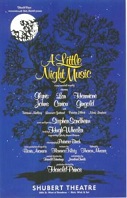
On Feb. 25, 1973 Stephen Sondheim (1930-) and Hugh Callingham Wheeler (1912-87) debut their musical A Little Night Music (English mistranslation of the German name for Mozart's 1787 Serenade No. 13 in G major "Eine Kleine Nachtmusik"), at the Shubert Theatre in New York (601 perf.) (Adelphi Theatre, West End, London) (Apr. 15, 1975) (406 perf.) (Piccadilly Theatre, West End, London) (Oct. 6, 1989) (144 perf.); Broadway production dir. by Harold Prince, starring Glynis Johns as Desiree Armfeldt, Len Cariou as Fredrik Egerman, and Hermione Gingold as Madame Armfeldt; inspired by Ingmar Bergman's 1955 film "Smiles of a Summer Night"; filmed in 1977 by Harold Prince; incl. the hit song Send in the Clowns, written for Glynis Johns.
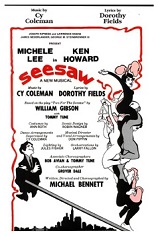
On Mar. 18, 1973 Michael Bennett (1943-87), Cy Coleman (1929-2004), Dorothy Fields (1905-74), and William Gibson (1914-2008) debut their musical Seesaw at the Uris Theatre in New York, moving to the Mark Hellinger Theater on Aug. 1 (296 perf.); based on the 1958 play "Two for the Seesaw" by Gibson; Fields' last musical; stars Lucie Arnaz, John Gavin, and Tommy Tune; features the song It's Not Where You Start (It's Where You Finish).

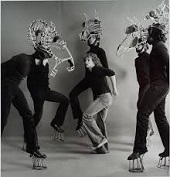
On July 26, 1973 Liverpool-born Sir Peter Levin Shaffer (1926-2016) debuts his play Equus at the Nat. Theatre in London, moving to the Plymouth Theatre in New York on Oct. 24, 1974, and to the Helen Hayes Theatre in New York on Oct. 5, 1976 (1,209 perf.); why did 17-y.-o. stable boy Alan Strang (Peter Firth), blind six horses near Suffolk, Englnd with spikes in the eyes asks pshrink Dr. Martin Dysart (played by Alec McCowen "on the knife edge of professional skill and personal disgust"); the horses are played by actors in brown track suits with wire horse heads; "Harry Potter" Daniel Radcliffe plays Strang in 2007, appearing onstage nude; it has something to do with crucifixes?; filmed in 1977, starring Peter Firth as Alan Strang, and Richard Burton as Martin Dysart.
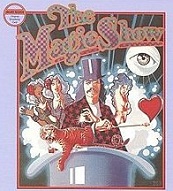
On May 28, 1974 Stephen Lawrence Schwartz (1948-) debuts his musical The Magic Show at the Cort Theatre in New York (1,920 perf.); stars David Ogden Stiers as Feldman the Magnificent in the seedy Top Hat nightclub, Doug Henning (later Jeffrey Mylett) as Doug, Dale Soules as Cal, Sam Schacht as agent Goldfarb, Anita Morris (later Loni Ackerman) as Charmin, and Annie McGreevey and Cheryl Barnes as Donna and Dina.
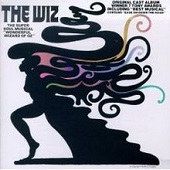
On Oct. 21, 1974 Charlie Smalls (1943-87), William Ferdinand Brown (1928-), George W. Faison (1945-), Timothy Graphenreed, Luther Vandross (1951-2005), and Harold Wheeler (1943-) debut their musical The Wiz: The Super Soul Musical "Wonderful Wizard of Oz" at the Morris A. Mechanic Theatre in Baltimore, moving to the Majestic Theatre in New York on Jan. 5, 1975 (1,672 perf.); an Africanized version of L. Frank Baum's "The Wizard of Oz"; stars an all-black cast incl. Stephanie Mills as Dorothy, Hinton Battle as Scarecrow, Tiger Haynes as Tin Woodman, Ted Ross as Lion, Dee Dee Bridgewater as Glinda the Good Witch of the South, Andre DeShields as the Wiz, and Mabel King as Evillene the Wicked Witch of the West; dir. by Geoffrey Holder; features the song Ease On Down the Road.
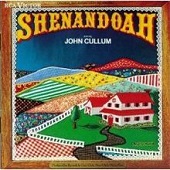
On Jan. 7, 1975 Gary Geld (1935-), Peter Udell, Philip Rose (1921-2011), and James Lee Barrett (1929-89) debut their musical Shenandoah (Alvin Theatre, New York) (Jan. 7) (1,050 perf.); based on the 1965 film, starring John Collum as Charlie Anderson, Joel Higgins as James, Robert Rosen as Henry, and Penelope Milford as Jenny.

On Apr. 15, 1975 Michael Bennett (1943-87) (dir./choreography), Marvin Hamlisch (1944-) (music), James Kirkwood Jr. (1924-89) and Nicholas Dante (Conrado Morales) (1941-91) (book), and Edward Kleban (1939-87) (lyrics) debut their musical A Chorus Line at the Public Theatre in New York) (101 perf.), moving on July 25 to the Shubert Theatre in New York (6,137 perf.) (Pulitzer Prize); 17 dancers audition for eight spots on a bare Broadway stage; longest running Broadway show until "Cats" in 1997 and "The Phantom of the Opera" in 2006; features What I Did for Love, One (finale).

On June 3, 1975 Fred Ebb (1933-2004), John Kander (1927-), and Bob Fosse (1927-87) debut their musical Chicago: A Musical Vaudeville at the 46th Street Theatre in New York (936 perf.), based on the 1926 play by reporter Maurine Dallas Watkins (1896-1969) (who became a born-again Christian and wouldn't allow it to be produced until his death) about Beula Annan ("Roxie Hart"), who was accused of the 1924 murder of Harry Kalstedt, and Belva Gaertner ("Velma Kelly"), who was accused of the 1924 murder of Walter Law, and are both gotten off by attys. William Scott Stewart and W.W. O'Brien (combined as "Billy Flynn"); stars Chita Rivera as Velma Kelly, Gwen Verdon as Roxie Hart, Barney Martin as Amos Hart, and Jerry Orbach as Billy Flynn; followed in Apr. 1979 by the Cambridge Theatre in West End, London (600 perf.), and on Nov. 14, 1996 at the (Richard Rodgers Theater in New York; stars Bebe Neuwirth as Velma Kelly, Ann Reinking as Roxie Hart, Joel Grey as Amos Hart, and James Naughton as Billy Flynn; on Nov. 23, 2014 it stages its 7,486 perf., passing "Cats"; filmed in 2002 starring Catherine Zeta-Jones as Velma Kelly, Renee Zellweger as Roxie Hart, John C. Reilly as Amos Hart, Richard Gere as Billy Flynn, and Queen Latifah as Mama Morton.

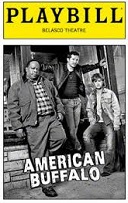
On Nov. 23, 1975 after scoring his first success with "Sexual Perversity in Chicago" (1974), Chicago, Ill.-born David Mamet (1947-) debuts his play American Buffalo at the Goodman Theatre Stage II in Chicago, followed by the Theater at St. Clement's Church in New York on Jan. 26, 1976, and the Ethel Barrymore Theatre on Feb. 8, 1877 (122 perf.); three nasty thugs botch a buffalo nickel heist; dir. by Ulu Grosband; stars Robert Duvall as Teach, Kenneth McMilan as Donny, and John Savage as Bobby.
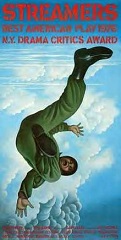
On Apr. 21, 1976 David Rabe (1940-) debuts his play Streamers at the Mitzi E. Newhouse Theater in New York (478 perf.); last in the Vietnam War Trilogy ("The Basic Training of Pavlo Hummel", "Sticks and Bones"); an army barracks in 1965, incl. black middle-class Roger (Terry Alexander), upper-class Manhattanite Richie (Peter Evans), conservative Wisc. country boy Billy (Paul Rudd), loose cannon Carlyle (Dorian Harewood), alcoholic Sgt. Cokes, aggressive Sgt. Rooney (Kenneth McMillan).
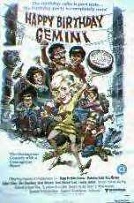
On Dec. 8, 1976 Albert Innaurato (1947-) debuts his play Gemini at Playwrights Horizons in New York, moving to the Little Theatre in New York on May 21, 1977 (1,819 perf.); stars new star Daniel Louis "Danny" Aiello (1933-) as Harvard student Francis Geminiani with a working class South Philly background and confused sexual orientation celebrating his 21st birthday in summer 1973 with his dysfunctional family, incl. his father Fran, Fran's widowed girlfriend Lucille, her obese son Herschel, neighbor Bunny Weinberger, and wealthy WASP siblings Judith and Randy Hastings; filmed in 1980 by Richard Benner as "Happy Birthday, Gemini".
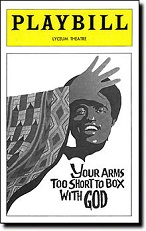
On Dec. 22, 1976 Alex Bradford (1927-78), Vinnette Carroll (1922-2002), and Micki Grant (1941-) debut their musical Your Arms Too Short to Box with God: A Soaring Celebration in Song and Dance at the Lyceum Theatre in New York (Dec. 22), moving to the Eugene O'Neill Theatre in New York on (Nov. 16, 1977) (429 perf.); based on the Gospel of Matthew; title from the 1927 poem "The Prodigal Son" by James Weldon Johnson; stars Vinnette Carroll; a 1980 revival becomes the Broadway debut of Jennifer Holliday.
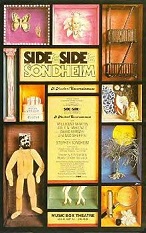
On Apr. 18, 1977 Stephen Sondheim (1930-) debuts his musical revue Side by Side by Sondheim at the Music Box Theatre in New York, followed by the Morosco Theatre in New York (384 perf.); the entire cast is nominated for Tony Awards.
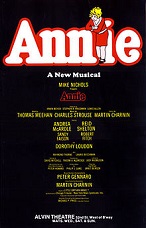
On Apr. 21, 1977 Martin Charnin (1934-), Charles Strouse (1928-), and Thomas Meehan debut their musical Annie at the Alvin Theatre in New York) (2,377 perf.); based on the Harold Gray comic strip "Little Orphan Annie"; set in 1933; stars Andrea McArdle as Annie, Reid Shelton as Daddy Warbucks, Dorothy Loudon as Miss Hannigan, and Sandy Faison as Grace Farrell; filmed in 1982; features the songs Little Girls, It's a Hard Knock Life, Tomorrow, and You're Never Fully Dressed Without a Smile.
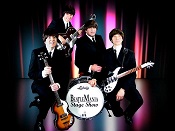
On May 31, 1977 Bob Gill (1931-), Robert Rabinowitz, Lynda Obst (1950-) debut their musical Beatlemania at the Winter Garden Theatre in New York) (1,006 perf.), becoming the first full media theatrical revue of the Beatles, starring Mitch Weissman as Paul, Joe Pecorino as John, Les Fradkin as George, and Justin McNeill as Ringo; filmed in 1981; too bad, in 1986 Apple Corps wins a $5.6M trademark infringement lawsuit, barring further performances.
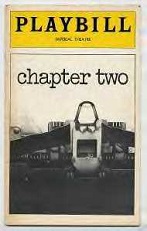
On Oct. 7, 1977 Neil Simon (1927-2018) debuts his play Chapter Two at the Ahmanson Theatre in Los Angeles, moving to the Imperial Theatre in New York on Dec. 4, and the Eugene O'Neill Theatre in New York on Jan. 1979 (857 perf.); semi-autobio. play, starring Cliff Gorman as recently widowed novelist George Schneider, who hooks up with divorced soap opera actress Jennie Malone (Anita Gillette); also stars Judd Hirsch as George, and Ann Wedgeworth as Faye; filmed in 1979 starring James Caan and Simon's 2nd wife Marsha Mason.
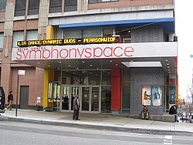
On Jan. 9, 1978 the multidisciplinary Symphony Space at 2537 Broadway in Manhattan, N.Y. opens with a free marathon concert organized by founders Isaiah Sheffer and Allan Miller, going on to host all New York City productions of the New York Gilbert and Sullivan Players in 1978-2001; it incl. the Peter Jay Sharp Theatre (cap. 760) and the Leonard Nimoy Thalia (cap. 160).
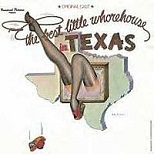
On June 19, 1978 Larry L. King (1929-2012), Peter Masterson (1934-), and Carol Hall (1936-) debut their musical The Best Little Whorehouse in Texas at the 46th St. Theater in New York) (1,584 perf.); based on a Playboy mag. story by Larry L. King about the closing of the Chicken Ranch in La Grange, Tex.; filmed in 1982; features The Aggie Song.

On June 21, 1978 Andrew Lloyd Webber (1948-) and Tim Rice (1944-) debut their musical Evita at the Prince Edward Theatre in West End, London (3,176 perf.) (Broadway Theatre, New York) (Sept. 25, 1979) (1,567 perf.); dir. by Harold Prince; the West End production makes a star of Elaine Paige (1948-) as Eva Peron, singing Don't Cry For Me, Argentina; also stars Joss Ackland as Juan Peron, and David Essex as Che; the Broadway production stars Patti LuPone as Eva, Mandy Patinkin as Che, and Bob Gunton as Peron; don't miss Act 2, set on the Casa Rosada balcony?; filmed in 1996 starring Madonna.
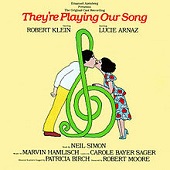
On Feb. 11, 1979 Neil Simon (1927-2018), Marvin Hamlisch (1944-), and Carole Bayer Sager (1944-) debut their musical They're Playing Our Song at the Imperial Theatre in New York (1,082 perf.); about the real-life relationship of composer Hamlisch and lyricist Sager; stars Lucie Arnaz (Broadway debut) and Robert Klein.
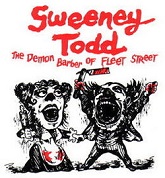
On Mar. 1, 1979 Stephen Sondheim (1930-) and Hugh Callingham Wheeler (1912-87) debut their musical Sweeney Todd, the Demon Barber of Fleet Street: A Musical Thriller at the Uris Theatre in New York (577 perf.); dir. by Harold Prince; stars Len Cariou as Sweeney Todd, and Angela Lansbury as Mrs. Lovett; based on the 1973 play by Christopher Bond, based on the 19th cent. fictional char. Sweeney Todd (Benjamin Barker), who kills his customers and turns them into yummy pies; features the song Pretty Women.
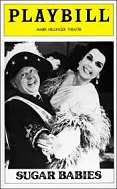
On Oct. 8, 1979 Jimmy McHugh (1894-1969), Dorothy Fields (1905-74), and Al Dubin (1891-1945) debut their musical revue Sugar Babies at the Mark Hellinger Theatre in New York (1,208 perf.); conceived and produced by Ralph Gilmore Allen (1934-2004) and Harry Rigby (1925-85); a tribute to the burlesque era; stars Ann Miller, Mickey Rooney, and Ann Jillian; features The Sugar Baby Bounce.
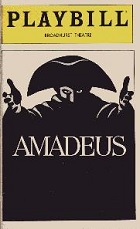
On Nov. 2, 1979 Peter Shaffer (1926-) debuts his play Amadeus at the Royal Nat. Theatre in London, moving to the Broadhurst Theatre in New York on Dec. 11, 1980 (1,181 perf.); based on the 1830 Alexander Pushkin play "Mozart and Salieri", set in Nov. 1823 Vienna, recalling the decade 1781-91; mediocre composer Antonio Salieri (Paul Scofield) is jealous of the "voice of God" coming from "obscene child" Wolfang Amadeus Mozart, and sets out to destroy him; filmed in 1984; the London production is dir. by Sir Peter Hall, and stars Paul Scofield as Salieri, Simon Callow as Mozart, and Felicity Kendal as Constanze; the Broadway production stars Ian McKellen as Salieri, Tim Curry as Mozart, and Jane Seymour as Constanze.
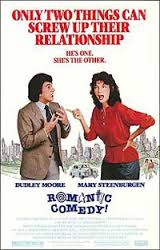
On Nov. 8, 1979 Bernard Slade (1939-) debuts the play Romantic Comedy at the Ethel Barrymore Theatre in New York (396 perf.); stars Anthony Perkins and Mia Farrow as playwrights Jason Carmichael and Phoebe Craddock in a 9-year relationship; filmed in 1983 starring Dudley Moore and Mary Steenburgen.

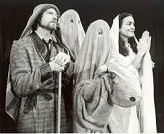
On Dec. 14, 1979 Montclair, N.J.-born Christopher Ferdinand Durang (1949-) debuts his play Sister Mary Ignatius Explains It All For You at the Ensemble Studio Theatre in New York, followed by Playwrights Horizons Theater in New York on Oct. 16, 1981 (947 perf.); Sister Mary (Elizabeth Franz) teaches the basic tenets of Roman Catholicism to 7-y-o. Thomas (Mark Stefan), until former students Gary Sullivan (gay) (Timothy Landfield), Diane Symonds (abortions) (Polly Draper), Philomena Rostovich (unwed mother) (Mary Catherine Wright), and Aloysius Benheim (alcoholic) crash and begin telling their reasons for hating her; filmed in 2001 by Showtime Network; St. Louis tries to ban it, making it more popular?

On Aug. 25, 1980 Michael Stewart (1924-87), Mark Bramble (1950-), Al Dubin, and Harry Warren debut their musical 42nd Street at the Winter Garden Theatre in New York, going for 3,486 perf.; based on the 1932 Bradford Ropes novel and the 1933 film screenplay by Rian James, James Seymour, and Whitney Bolton, about dictatorial Great White Way dir. Julian Marsh during the Great Depression; first movie musical adapted for the stage since the 1974 flop "Gigi"; features the songs "Keep Young and Beautiful", "Lullaby of Broadway", "Shuffle Off to Buffalo", and "Forty-Second Street".

On May 11, 1981 Andrew Lloyd Webber (1948-) debuts his musical Cats at the New London Theatre in London, followed on Oct. 7 at Winter Garden Theatre in New York, becoming the longest-running Broadway musical on June 19, 1997 with 6,138 perf. before closing on Sept. 10, 2000 after 7,485 perf.; lyrics from T.S. Eliot's 1939 "Old Possum Book of Practical Cats"; stars Elaine Paige followed by Betty Buckley as Grizzabella, making them big stars singing Memory.


On Oct. 16, 1981 Harvey Fierstein (1952-) debuts his play Torch Song Trilogy at the Richard Allen Center in New York, moving to the Actors' Playhouse in Greenwich Village on Jan. 5, 1982 ((117 perf.), and the Little Theatre in New York on June 10, 1982 (1,222 perf.); dir. by Peter Pope; three plays incl. "International Stud", "Fugue in a Nursery", "Widows and Children First!"; stars Fierstein as torch song-singing Jewish New York effeminate drag queen Arnold Beckoff, who longs for love and family.
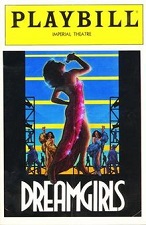
On Dec. 21, 1981 Tom Eyen (1940-91) and Henry Krieger (1945-) debut their musical Dreamgirls at the Imperial Theatre in New York (1,522 perf.), followed by the Ambassador Theatre Group in London on Dec. 14, 2016; stars Jennifer Holliday in a story of the African-Am. female singing trio from Chicago called the Dreams; filmed in 2006 by Bill Condon starring Jennifer Hudson.
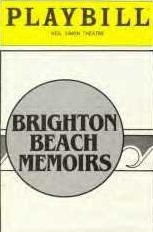
On Feb. 2, 1983 Neil Simon (1927-2018) debuts his play Brighton Beach Memoirs at the Curran Theatre in San Francisco, moving to the Alvin Theatre in New York on Mar. 27, and the 46th Street Theatre in New York on May 11, 1986 (1,299 perf.); Russian-Jewish aspiring teenie writer Eugene Morris Jerome (Matthew Broderick) comes of age in 1937 with his brother Stanley, parents Kate and Jack, Kate's sister Blanche (Joyce Van Patten), and her two daughters Nora and Laurie, and gets feelings for cousin Nora.
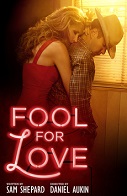
On Feb. 9, 1983 Sam Shepard (1943-) debuts his play Fool for Love at the Magic Theatre in San Francisco, moving to the Circle Repertory Theater in New York on May 26, and the Douglas Fairbanks Theatre in New York on Nov. 30 (1,000 perf.); half-sibling lovers Eddie (Ed Harris) and May (Kathy Baker) in Mojave Desert in the Old West; filmed in 1985 by Robert Altman starring Shepard and Kim Basinger.
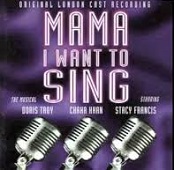
On Mar. 23, 1983 Wesley Naylor, Vy Higgenson, and Ken Wydro debut their musical Mama, I Want to Sing! (Hecksher Theater, New York) (Mar. 23) (2,213 perf.); stars Crystal Johnson (followed by Tisha Campbell) as African-Am. singer Doris Troy, a preacher's daughter who sings in a church choir before being discovered by James Brown; filmed in 2012; longest-running black off-Broadway musical in history (until ?).
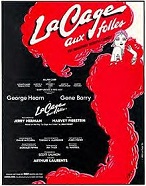
On Aug. 21, 1983 Jerry Herman (1931-) and Harvey Fierstein (1952-) debut their musical La Cage aux Folles (Fr. "the cage of birds/queens") at the Palace Theatre in New York (1,761 perf.); based on the 1973 Jean Poiret play; dir. by Arthur Laurents; stars non-gay actor George Hearn (1934-) as Saint-Tropez gay drag nightclub star Albin, and non-gay actor Gene Barry (1919-2009) as his gay bud and club mgr. Georges, who try to fool the homophobic conservative parents of Georges' son Jean-Michel's fiancee when he brings them home to meet them; features the gay anthem I Am What I Am, and the song The Best of Times.
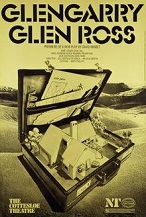
On Sept. 21, 1983 David Mamet (1947-) debuts his play Glengarry Glenn Ross at Cottesloe Theatre in London, moving to the John Golden Theatre in New York on Mar. 25, 1984 (378 perf.) (Pulitzer Prize); the dog-eat-dog world of U.S. real estate sales; two days in the lives of sleazy Chicago real estate agents, who are trying to unload Glengarry Highlands while reminiscing about the good old days of Glen Ross Farms; stars Robert Prosky as Shelley Levene, J.T. Walsh as John Williamson, James Tolkan as Dave Moss, Mike Nussbaum as George Aaronow, Joe Mantegna as Richard Roma, and William L. Peterson as James Lingk; filmed in 1992.
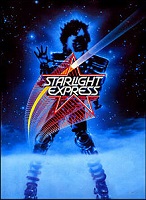
On Mar. 27, 1984 Andrew Lloyd Webber (1948-) and Sir Richard Stilgoe (1943-) debut their musical Starlight Express at the Apollo Victoria Theatre in West End, London (7,406 perf.), followed by the Gershwin Theatre in New York on Mar. 15, 1987 (761 perf.); actors perform on roller skates; choreography by Arlene Phillips; Rusty the Steam Train attempts to become the Fastest Engine in the World, inspired by the legend of you know what, winning the first-class girl coach Pearl's heart; stars Stephanie Lawrence, Francis Ruffelle, Jeff Shankley, Jeffrey Daniel, and Ray Shell; debuts in Germany, becoming their #1 musical (until ?).
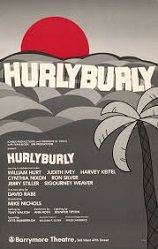
On Aug. 7, 1984 after debuting it at the Goodman Theatre in Chicago, and the Promenade Theatre in Manhattan in June, David Rabe (1940-) debuts his play Hurlyburly at the Ethel Barrymore Theatre in New York (343 perf.); dir. by Mike Nichols; stars William Hurt, Harvey Keitel, Christopher Walken, Jerry Stiller as four separated or divorced male failures living in a Hollywood Hills bungalow; also stars Sigourney Weaver; filmed in 1998.
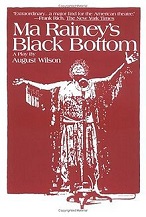
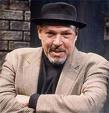
On Oct. 11, 1984 Pittsburgh, Penn.-born August Wilson (Frederick August Kittel Jr.) (1945-2005) debuts his play Ma Rainey's Black Bottom at the Cort Theatre in New York (225 perf.); stars Theresa Merritt as 1920s Chicago jazz singer Ma Rainey, whose group (Cutler, Toledo, Slow Drag, Levee) has to decide between art and commerce and the risk of losing their black identity; also stars Charles S. Dutton as Levee.
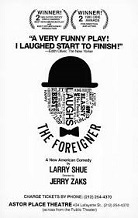
On Nov. 1, 1984 Larry Shue (1946-85) debuts his play The Foreigner at the Astor Place Theatre in New York (686 perf.); dir. by Jerry Zaks; stars Shue as Charlie Baker, Anthony Heald as SSgt. Froggy LeSueuer, and Patricia Kalember as Southern belle Catherine Simms in a fishing lodge in Ga., where Englishman Baker pretends to be unable to speak English.
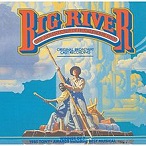
On Apr. 25, 1985 Roger Miller (1936-92) and William Hauptman (1942-) debut their musical Big River: The Adventures of Huckleberry Finn at the Eugene O'Neill Theatre in New York (1,005 perf.); based on the 1884 Mark Twain novel; stars Rene Auberjonois as the Duke, Bob Gunton as the King, and John Goodman as Pap Finn, Daniel H. Jenkins as Huckleberry Finn, Gordon Connell as Mark Twain, and Ron Richardson as Jim.

On Oct. 8, 1985 Claude-Michel Schonberg (1944-), Alain Boubil (1941-), and Herbert Kretzmer (1925-) debut their musical Les Miserables (Misérables) (based on the 1862 Victor Hugo novel) at the Palace Theatre in London, starring Colin Wilkinson as Jean Valjean, and Michael Ball as Marius; on Mar. 12, 1987 it debuts on Broadway at the Broadway Theatre, closing on May 18, 2003 after 6,680 perf.; features the songs I Dreamed a Dream, Do You Hear the People Sing?, Empty Chairs at Empty Tables, Castle on a Cloud, One Day More, A Heart Full of Love, Stars, Bring Him Home, Master of the House, Little People, A Little Fall of Rain, On My Own.

On Oct. 9, 1986 Andrew Lloyd Webber (1948-), Charles Hart (1961-), and Richard Stilgoe (1943-) debut their musical The Phantom of the Opera at Her Majesty's Theatre in London; on Jan. 26, 1988 it opens on Broadway at the Majestic Theatre, New York; based on Gaston Leroux's 1911 novel, it stars Mark Crawford as disfigured musical genius Gerard Butler; breaks the record of Webber's "Cats" on Jan. 9, 2006 with 7,486 perf., and celebrates its 25th anniv. on Jan. 26, 2013 with its 10,400th perf., reaching 12K perf. by Nov. 2016; total receipts are $5.6B, incl. $845M on Broadway, with an audience of 130M in 145 cities in 27 countries by 2011, not passed until "The Lion King" in 2014.
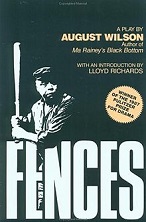
On Mar. 26, 1987 August Wilson (1945-2005) debuts his play Fences (Pulitzer Prize) at the 46th Street Theatre in New York (525 perf.); #6 in the Pittsburgh Cycle; father-son drama about 1957 garbage man Troy Maxson (James Earl Jones), who reminisces about his wasted youth in the Negro leagues and prison, and takes it out on his family incl. sons Cory (Courtney B. Vance), Gabriel, and Lyons, and best friend Bono; dir. by Lloyd Richards; filmed in 2016 by Denzel Washington.

In Apr. 1988 Brooklyn, N.Y.-born Wendy Wasserstein (1950-2006) debuts her drama The Heidi Chronicles (drama) (Pulitzer Prize) at the Seattle Repertory Theate, followed by Playwrights Horizons in New York on Nov. 18 (99 perf.), and the Plymouth Theatre in New York (Mar. 9, 1989) (622 perf.); the career of feminist art historian Heidi Holland, incl. her best friend Peter Petrone (a gay pediatrician), and best friend slash lover Scoop Rosenbaum (a mag. editor); Jerry Seinfeld initially titles his July 1989 NBC-TV series "The Seinfeld Chronicles" in tribute.
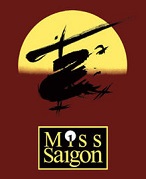
On Sept. 20, 1989 Claude-Michel Schonberg (1944-), Alain Boublil (1941-), and Richard Maltby Jr. (1937-) debut their musical Miss Saigon at the Theatre Royal in Drury Lane, London, moving to the Broadway Theatre in New York on Apr. 11, 1991 (4,092 perf.); basaed on Giacomo Puccini's opera "Madame Butterfly", about a doomed romance between a U.S. G.I. and a Vietnamese bargirl.
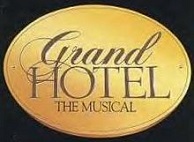
On Nov. 12, 1989 Robert Wright (1914-2005), George Forrest (1915-199), Maury Yeston (1945-), and Luther Davis (1916-2008) debut their musical Grand Hotel at the Martin Beck Theatre in New York, followed by the George Gershwin Theatre in New York (1,017 perf.); based on the 1929 Vicki Baum novel, play, and 1932 film about an elegant hotel in Berlin in 1928 and its eccentric guests incl. Elizaveta Grushinskaya (Liliana Montevecchi/Cyd Charisse/Zina Bethune), Otto Kringelein (Michael Jeter), the Baron (David Carroll), Preysing (Timothy Jerome), Ottenschlg (John Wylie), Erik (Bob Stillman), and Flaemmchen (Jane Krakowsi); choreographed by Tommy Tune; first Am. musical since "Big River" to top 1K Broadway performances.
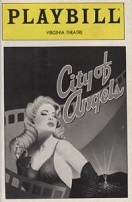
On Dec. 11, 1989 Cy Coleman (1929-2004), Larry Gelbart (1928-2009), and David Zippel (1954-) debut their musical comedy City of Angels at the Virginia Theatre in New York (879 perf.), followed by the Prince of Wales Theatre in West End, London in Mar. 1993, flopping after 4 mo.; dir. by Michael Blakemore; an homage to film noir of the late 1940s, combining a Hollywood comedy with full-color sets and costumes, and a detective film in B&W, with most actors doubling up except LA private eye Stone and novelist Stine.
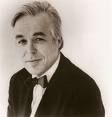
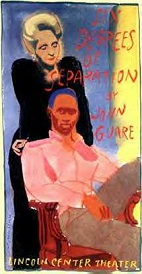
On May 16, 1990 New York City-born John Guare (1938-) (rhymes with "air") debuts his play Six Degrees of Separation at the Mitzi E. Newhouse Theater in New York, moving to the Vivian Beaumont Theater in New York on Nov. 8 (485 perf.); dir. by Jerry Zaks; explores the premise that all people are connected to each other via a chain of no more than six acquaintances; based on the real-life story of 1980s con man David Hampton, who tried to con Osborn Elliott and Inger McCabe Elliott in Oct. 1983; stars Stockard Channing as Ouisa Kittredge, John Cunningham as Flan Kittredge, and Courtney B. Vance as Paul; filmed in 1993 by Fred Schepisi.
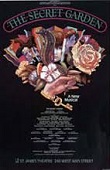
On Apr. 25, 1991 Lucy Simon (1943-) and Marsha Norman (1947-) debut their musical The Secret Garden at the St. James Theatre in New York (709 perf.); based on the 1911 Frances Hodgson Burnett novel; dir. by Susan H. Schulman; choreography by Michael Lichtefeld; stars Daisy Eagan as Mary Lennox.
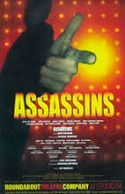
On Dec. 18, 1991 Stephen Sondheim (1930-) and John Weidman (1946-) debut their musical Assassins at the Playwrights Horizons in New York (73 perf.); a revue of successful and unsuccessful U.S. pres. assassins incl. Leon Czolgosz, John Hinckley, Charles Guiteau, Giuseppe Zangara, Samuel Byck, Lynette "Squeaky" Fromme, Sara Jane Moore, and John Wilkes Booth.
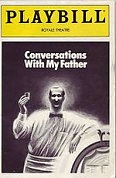
On Mar. 22, 1992 Herb Gardner (1934-2003) debuts his play Conversations with My Father at the Royale Theatre in New York (402 perf.); dir. by Daniel Sullivan; Russian immigrant bartender Eddie Ross (Judd Hirsch) in Manhattan and his son Charlie (Tony Shalhoub) in 1936-76 suffer through assimilation.

On Apr. 29, 1992 William Finn (1952-) and James Lapine (1949-) debut their musical Falsettos at the John Golden Theatre in New York (487 perf.); dir. by Lapine; stars Michael Rupert as Marvin, Stephen Bogardus as Whizzer, Brbara Walsh as Trina, Chip Zien as mendel, Jonathan Kaplan as Jason, Heather MacRae as Charlotte, and Carolee Carmello as Cordella; starts out in 1979 New York City with Four Jews in a Room Bitching, incl. Marvin, his son Jason, his pshrink Mendel, who left his wife Trina for male lover Whizzer; also features Everyone Hates His Parents.
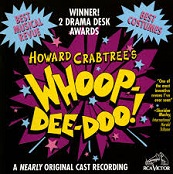
On June 16, 1993 Charles Catanese, Howard Crabtree, Dick Gallagher, Phillip George, Peter Morris, and Mark Waldrop debut their musical revue Whoop-Dee-Doo! ("a postage stamp extravaganza") (Actors Playhouse, New York) (June 16) (271 perf.); dir. by Phillip George; dir. by Phillip George; camp gay musical with extravagant costumes; features the songs "Born This Way", "Last One Picked", "A Soldier's Musical"; view review.
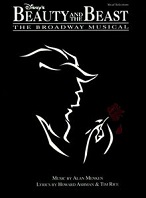
On Apr. 18, 1994 Alan Irwin Menken (1949-), Howard Ashman (1950-91), Tim Rice (1944-), and Linda Woolverton debut their musical Beauty and the Beast at the Palace Theatre in New York, moving to the Lunt-Fontanne Theatre in New York on Nov. 11, 1999 (5,461 perf.); based on the 1991 Disney animated film; stars Susan Egan as Belle, and Terrence Mann as Beast; grosses $1B by 2017 in 13 countries and 115 citiies.
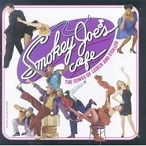
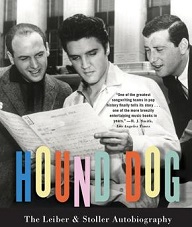
In Nov. 1994 lyricist Jerry Leiber (1933-2011) and composer Mike Stoller (1933-) debut their musical revue Smokey Joe's Cafe at the Doolittle Theatre in Los Angeles, moving to the Virginia Theatre in New York on Mar. 2, 1995 (2,036 perf.) (longest-running musical revue in Broadway history until ?), dir. by Jerry Zaks, with a 9-member cast incl. Ken Ard and Michael Park, and guest appearances by Ben E. King, Pam Tillis, Gladys Knight, Tony Orlando, Lou Rawls, Gloria Gaynor, and Rick Springfield; features 39 of their songs incl. "Ruby Baby", "Kansas City", "Fools Fall in Love", "Yakety Yak", "Charlie Brown", "Hound Dog", "There Goes My Baby", "Love Potion #9", "Jailhouse Rock", "Spanish Harlem", and "Stand by Me"; debuts at the Prince of Wales Theatre in West End, London on Oct. 1, 1996.
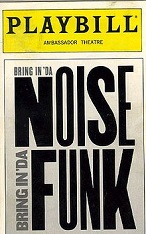
On Nov. 3, 1995 Daryl Waters, Zane Mark, and Ann Duquesnay debut their musical revue Bring in 'da Noise, Bring in 'da Funk at the Public Theater in New York, moving to the Ambassador Theatre in New York on Apr. 25, 1996 (1,135 perf.); dir. by George C. Wolfe; black history told through tap dancing; stars Jeffrey Wright and Savion Glover.
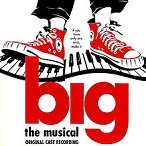
On Apr. 28, 1996 David Shire (1937-), Richard Maltby Jr. (1937-), and John Weidman (1946-) debut their musical Big: The Musical at the Shubert Theatre in New York (193 perf.), adapted from the 1988 Tom Hanks film; stars Daniel H. Jenkins as Josh Baskin; an expensive flop despite five Tony nods, saved by a nat. tour.


On Apr. 29, 1996 Jonathan Larson (1960-96) debuts his musical Rent at the Nederlander Theatre in New York (Pulitzer Prize) (5,123 perf.); based on Giacomo Puccini's opera "La Boheme" (1896); starving HIV-infected artists in New York City's East Village Alphabet City incl. dancer (Mimi Marquez), musician (Roger Davis), filmmaker Mark Cohen, drag queen drummer Angel Dumott Schunard, gay philosopher Tom Collins, lesbian atty. Joanne Jefferson, and landlord Benjamin "Benny" Coffin III.
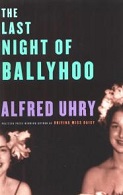
On Feb. 27, 1997 Alfred Uhry (1936-) debuts his play The Last Night of Ballyhoo at the Helen Hayes Theatre in New York (556 perf.); dir. by Ron Lagomarsino; an upper class German-Jewish family in Atlanta, Ga. at the Dec. 1939 premiere of "Gone With the Wind" discovers intra-ethnic prejudice at a lavish cotillion ball; #2 in the Jews in Atlanta Trilogy (1987-98).
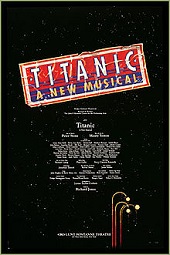
On Apr. 23, 1997 Maury Yeston (1945-) and Peter Stone (1930-2003) debut their musical Titanic at the Lunt-Fontanne Theatre in New York (804 perf.), about the Apr. 15, 1912 Titanic disaster, with orchestration by Jonathan Tunick, and scenic design by Stewart Laing; somehow turning a tragedy into a celebration, it fails to each 1K performances despite the release of James Cameron's film "Titanic" in Dec., which has no connection.

On July 8, 1997 Tim Rice (1944-), Roger Allers (1949-), Irene Mecchi, and Elton John (1947-) debut their musical The Lion King at the Orpheum Theatre in Minneapolis, Minn., which moves on Oct. 15 to the New Amsterdam Theatre in New York, the Lyceum Theatre in West End, London on Oct. 19, 1999, and the Minskoff Theatre in New York on June 13, 2006 (8,074 perf.); based on the 1994 Walt Disney animated film, with mandrill Rafiki changed from male to female, played by Tsidii Le Loka; features the songs "Circle of Life", "Hakuna Matata", "Rafiki Mourns".
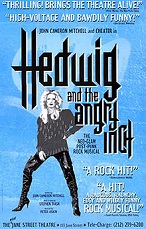
On Feb. 14, 1998 Stephen Trask (1966-) and John Cameron Mitchell (1963-) debut their musical Hedwig and the Angry Inch at the Jane Street Theatre in New York (857 perf.); dir. by Peter Askin; the rock & roll band The Angry Inch fronted by transgender East German singer Hedwig Robinson AKA Hansel Schmidt, who met GI Luther Robinson AKA Sugar Daddy and underwent a sex change to marry him; too bad, the operation was botched, leaving a 1-in. thing between her legs, "with a scar running down it like a sideways grimace on an eyeless face"; her band follows rock star Tommy Gnosis around the U.S.: the theater is located in the ballroom of the Hotel Riverview, which once housed the surviving crew of the Titanic; filmed in 2001.

On Apr. 6, 1999 Catherine Johnson (1957-), Goran Bror Benny Andersson (1946-), and Bjorn Kristian Ulvaeus (1945-) debut their musical Mamma Mia! at the Prince Edward Theatre in West End, London, moving on Apr. 6 to the Prince of Wales Theatre in West End, London before opening on Broadway at the Winter Garden Theatre in New York on Oct. 18, 2001 and the Delfont Mackintosh Theatres in London on Sept. 6, 2012 for 5,773 perf. by Sept. 12, 2015; named after the 1975 ABBA hit song, and filled with ABBA hits incl. "Dancing Queen", "Knowing Me, Knowing You", "Lay All Your Love on Me", "Money, Money, Money", "SOS", "Take a Chance on Me", "Thank You for the Music", "Voulez-Vous", "The Winner Takes All"; filmed in 2008.
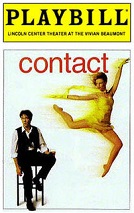
On Sept. 9, 1999 John Weidman (1946-) and Susan Stroman (1954-) debut their musical Contact at the Mitzi E. Newhouse Theater in New York, followed by the Vivian Beaumont Theater in New York on Mar. 30, 2000 (1,010 perf.); dancers incl. Boyd Gaines, Jack Hayes, Deborah Yates; after it wins the 2000 Tony Award for Best Musical despite no original music or living singing, the Best Special Theatrical Event award is introduced in 2001.
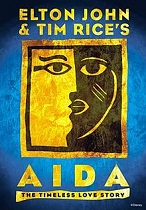
On Mar. 23, 2000 Elton John (1947-), David Henry Hwang (1957-), Tim Rice (1944-), Linda Woolverton, and Robert Falls (1954-) debut their musical Aida (The Timeless Love Story) at the Palace Theatre in New York (1,852 perf.); based on the 1871 Verdi opera, and a children's storybook version by Leontyne Price, acquired by the Walt Disney Co. in 1994 and originally intended for an animated feature film; stars Heather Headley (1974-) as Aida, Adam Pascal as Radames, and Shere Rene Scott as Amneris; features the song Written in the Stars, sung by Elton John and LeAnn Rimes (#2 in the U.S.).
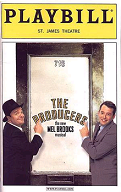
On Apr. 19, 2001 Mel Brooks (1926-) and Thomas Meehan (1929-) debut their musical The Producers at the St. James Theatre in New York (2,502 perf.), based on the 1968 film, starring Nathan Lane and Matthew Broderick; on May 7 it is nominated for a record 15 Tony Awards, and later wins 12, beating the previous record of 10 for Hello, Dolly! in 1964.
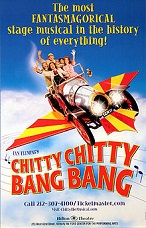
On Apr. 16, 2002 Richard M. Sherman (1928-), Richard B. Sherman (1925-2012), and Jeremy Sams (1957-) debut their musical Chitty Chitty Bang Bang at the London Palladium in West End, London, followed by the Lyric Theatre in New York on Apr. 28, 2005 (285 perf.); based on the 1968 film; dir. by Adrian Noble; choreography by Gillian Lynne; the West End production features the £750K flying Chitty car, which becomes the world's most expensive stage prop (until ?), requiring the Palladium's revolving stage to be removed.
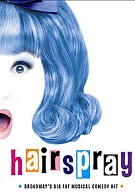
On Aug. 15, 2002 March Shaiman (1959-), Scott Wittman (1954-), Mark O'Donnell (1954-2012), and Thomas Meehan (1929-) debut their musical Hairspray at the Neil Simon Theatre in New York (2,642 perf.); based on the 1988 John Waters film, set in 1962 Baltimore, Md., where obese teenie Tracy Turnblad (Marissa Jaret Winokur) achieves her dream of dancing on The Corny Collins Show (based on The Buddy Deane Show), then launches a campaign to integrate it; Harvey Fierstein plays Tracy's mother Edna, and Linda Hart plays producer Velma Von Tussle; "Broadway's big fat musical comes out".
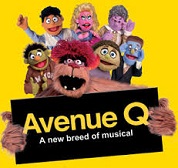
On Mar. 19, 2003 Ropert Lopez (1975-), Jeff Marx (1970-), and Jeff Whitty (1971-) debut their musical Avenue Q at the Vineyard Theatre in New York (72 perf.), followed by the John Golden Theatre in New York on July 31 (2,534 perf.); a puppet show with puppetmasters visible onstage, a takeoff on PBS-TV's "Sesame Street", about how it told them that they were special, but reality tells them the opposite; features "Sesame Street" puppeteers John Tartaglia, Stephanie D'Abruzzo, Jennifer Barnhart, and Rick Lyon, working puppets Rod and Nicky (Bert and Ernie), Trekkie Monster (Cookie Monster), Bad Idea Bear, and Lucy the Slut; stars Natalie Venetia Belcon as Gary Coleman.
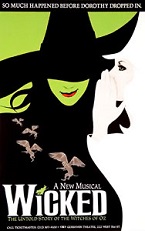
On May 28, 2003 Stephen Lawrence Schwarz (1948-) and Winnie Holzman (1954-) debut their musical Wicked: The Untold Story of the Witches of Oz at the Curran Theatre in San Francisco), moving to the Gershwin Theatre in New York on Oct. 30, and the Apollo Victoria Theatre in West End, London on Sept. 27, 2006; based on the 1995 Gregory Maguire novel "Wicked: The Life and Times of the Wicked Witch of the West"; Elphaba, the Wicked Witch of the West (Idina Menzel), Galinda (Glinda), the Good Witch (Kristin Chenoweth), and the Wizard (Joel Grey); reaches 5.6K perf. in 2017.
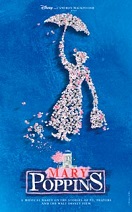
On Dec. 15, 2004 Robert B. Sherman (1925-2012), Richard M. Sherman (1928-), George Stiles (191-), Anthony Drewe, Julian Fellowes (1949-), and William David Brohn (1933-) debut their musical Mary Poppins at the Prince Edward Theatre in West End, London, moving to the New Amsterdam Theatre in New York on Nov. 16, 2006 (2,619 perf.); based on the P.L. Travers books and the 1964 Walt Disney film; first Disney musical to debut in the U.K. (until ?); stars Laura Michelle Kelly (Ashley Brown on Broadway) as Mary Poppins, and Gavin Lee as Bert; "For children seven years and up"; on Mar. 17, 2005 Julie Andrews visits as a guest, giving a speech.
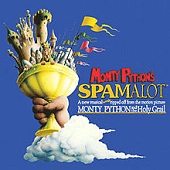
On Jan. 9, 2005 Eric Idle (1943-), Neil Innes (1944-), and John Du Prez (1946-) debut their musical Monty Python's Spamalot at the Shubert Theatre in Chicago, followed by the Shubert Theatre in New York on Mar. 17 (1,575 perf.); based on the 1975 film "Monty Python and the Holy Grail", dir. by Mike Nichols; it is seen by 2M people, grossing $175M.
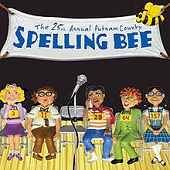
On Feb. 7, 2005 William Finn (1952-), Rachel Sheinkin, and Jay Reiss debut their musical The 25th Annual Putnam County Spelling Bee at the Second Stage Theatre in New York, followed by the Circle in the Square Theatre in New York on Apr. 15 (1,136 perf.); dir. by James Lapine; choreography by Dan Knechtges; four audiences members are invited on stage to compete along with the six young actors.
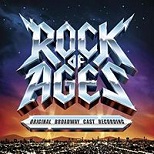
On July 27, 2005 Chris D'Arienzo debuts his musical Rock of Ages at King King in Los Angeles, moving to New World Stages in New York on Oct. 16, 2008, Brooks Atkinson Theatre in New York on Apr. 7, 2009, and Helen Hayes Theatre in New York on Mar. 24, 2011 (2,328 perf.); about 1980s glam metal bands incl. Bon Jovi, Pat Benatar, Europe, Steve Perry, Poison, Styx, and Twisted Sister.
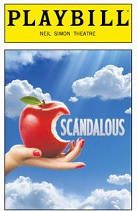
In Oct. 2005 Kathie Lee Gifford (1953-), David Pomeranz (1951-), and David Friedman (1950-) debut their musical Scandalous: The Life and Trials of Aimee Semple McPherson at the White Plains Performing Arts Center, followed by the Neil Simon Theatre in New York on Nov. 15, 2012 (29 perf.); stars Carolee Carmello; Hurricane Sandy is blamed for the early closing.
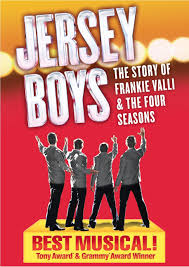
On Nov. 6, 2005 Bob Gaudio (1942-), Bob Crewe (1930-2014), Marshall Brickman (1939-), and Rick Elice (1956-) debut their musical The Jersey Boys at the August Wilson Theater in New York (4,642 perf.), followed by the Prince Edward Theatre in West End, London in Feb. 2008, and the Piccadilly Theatre in West End, London on Mar. 15, 2014 (3,657 perf.); the story of Frankie Valli (1934-) and the Four Seasons.
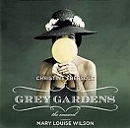
On Feb. 10, 2006 Scott Frankel (1963-), Doug Wright (1962-), and Michael Korie debut their musical Grey Gardens at the Playwrights Horizons in New York, followed by the Walter Kerr Theater in New York on Nov. 2 (307 perf.), based on the 1975 documentary by Albert and David Maysies about formerly rich mother Edith Ewing Bouvier Beale (Big Edie) and her daughter Edith Bouvier Beale (Little Edie), Jackie Kennedy's aunt and cousin, who lived in poverty in the seedy Grey Gardens mansion at 3 West End Rd. in the Georgica Pond neighborhood of East Hampton, N.Y.; stars Mary Louise Beale as Big Edie, and Christine Ebersole as Little Edie.
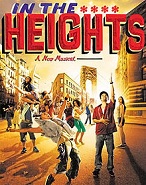
On Feb. 8, 2007 Lin-Manuel Miranda (1980-) and Quiara Alegria Hudes (1977-) debut their musical In the Heights at the 37 Arts Theater in New York, moving to the Rodgers Theatre in New York on Mar. 9 (1,184 perf.); three days in the Dominican-Am. neighborhood of Washington Heights, New York City.
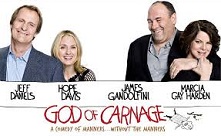
On Mar. 25, 2008 Yasmina Reza (1959-) debuts her play God of Carnage at the Gielgud Theatre in West End, London, moving to the Bernard B. Jacobs Theatre in New York on Mar. 22, 2009 (452 perf.); two children get in a fight in the park, causing their parents to meet to discuss it, but their discussion degenerates as they become childish too; dir. by Matthew Warchus; London production stars Ralph Fiennes, Tamsin Greig, Janet McTeer, and Ken Stott; Broadway production stars Jeff Daniels, Hope Davis, James Gandolfini, and Marcia Gay Harden; "A comedy of manners... without the manners."
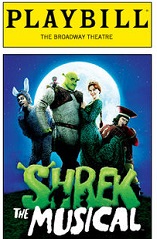
On Dec. 14, 2008 Jeanine Tesori (1961-) and David Lindsay-Abaire (1969-) debut their musical Shrek The Musical at the Broadway Theatre in New York (441 perf.); based on the 2001 film and the 1990 book by William Steig; stars Brian d'Arcy James as Shrek, Sutton Foster as Fiona, Christopher Sieber as Farquaad, and Daniel Breaker as the Donkey.
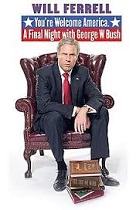
On Feb. 5, 2009 Will Ferrell debuts his comedy You're Welcome America. A Final Night with George W Bush at the Cort Theater in New York; on Mar. 14 it is broadcast live on HBO cable channel.
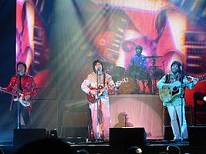
On Oct. 26, 2010 the Beatles cover band Rain (founded in 1975 as Reign in Laguna Beach, Calif.) debuts their musical revue Rain: A Tribute to the Beatles at the Neil Simon Theatre in New York, followed by the Brooks Atkinson Theatre in New York on Feb. 8, 2011 (300 perf.), recreating their career starting at the Cavern Club in 1962.
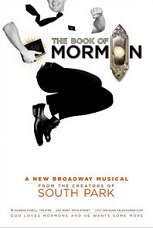
On Mar. 24, 2011 Robert Lopez (1975-), Trey Parker (1969-), and Matt Stone (1971-) debut their musical The Book of Mormon at the Eugene O'Neill Theatre in New York (2,538 perf.); two young Mormon missionaries travel to Uganda and run up against reality.
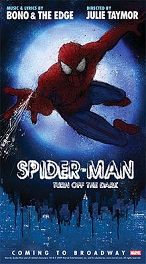
On June 14, 2011 Bono (1960-), The Edge (1961-), David Campbell (1948-), Julie Taymor (1952-), Glen Berger, and Roberto Aguire-Sacasa (1973-) debut their rock musical Spider-Man: Turn Off the Dark at the Foxwoods Theatre in New York (1,066 perf.); stars Reeve Carney as Peter Parker/Spider-Man, Jennifer Damiano as Mary Jane Watson, Patrick Page as Norman Osborn/Green Goblin, T.V. Carpio as Arachne, Michael Mulheren as J. Jonah Jameson, Ken Marks as Uncle Ben, and Isabel Keating as Aunt May; most expensive Broadway production so far (until ?).
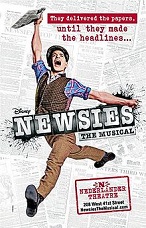
On Sept. 25, 2011 Alan Menken (1949-), Jack Feldman, and Harvey Fierstein (1954-) debut their musical Newsies: The Musical at the Paper Mill Playhouse in Milburn, N.J., moving to the Nederlander Theatre in New York (Mar. 29 2012) (1,005 perf.); based on the 1992 film "Newsies", which was inspired by the 1899 New York City Newsboys Strike.
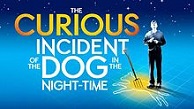
On Aug. 2, 2012 Simon Stephens (1971-) and Mark Haddon (1962-) debut their play The Curious Incident of the Dog in the Night-Time at the Royal Nat. Theatre in London, followed by the Apollo Theatre in West End, London on Mar. 12, 2013, and the Ethel Barrymore Theatre in New York on Oct. 5, 2014; austistic Christopher John Francis Boone investigates the death of a neighbor's dog with the help of mentor Siobhan.
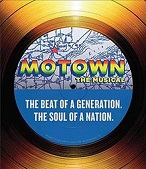
On Apr. 14, 2013 Berry Gordy (1929-) debuts his musical Motown: The Musical at the Lunt-Fontanne Theatre in New York (738 perf.), followed by the Shaftesbury Theatre in West End, London on Feb. 11, 2016; based on Gordy's 1994 autobio. "To Be Loved: The Music, the Magic, the Memories of Motown"; features 66 songs; "The beat of a generation. The soul of a nation."
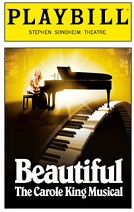
On Oct. 8, 2013 Douglas McGrath (1958-) debuts his jukebox musical Beautiful: The Carole King Musical at the Curran Theatre in San Francisco, moving to the Stephen Sondheim Theatre in New York on Jan. 12, 2014, and the Aldwych Theatre in West End, London on Feb. 10, 2015, telling the life story of singer Carole King; the Broadway production stars Jessie Muller as King, Jake Epstein as Gerry Goffin, Anika Larsen as Cynthia Weil, and Jarrod Spector as Barry Man; the West End production stars Katie Brayben/Cassidy Janson as King, Alan Morrissey as Gerry Goffin, Lorna Want as Cynthia Weil, and Ian McIntosh as Barry Mann.

On Mar. 30, 2014 Alan Menken (1949-), Chad Beguelin (1969-), Howard Ashman (1950-91), and Tim Rice (1944-) debut their musical Aladdin at the New Amsterdam Theatre in New York, followed by the Delfont Mackintosh Theatres in West End, London on June 15, 2016; based on the 1992 Disney animated film.

On Feb. 17, 2015 Lin-Manuel Miranda (1980-) debuts his musical Hamilton: An American Musical at the Public Theatre in New York, moving to the Richard Rodgers Theatre in New York on July 13); based on the 2004 bio "Alexander Hamilton" by Ron Chernow; PC casting features black and Hispanic actors playing White Am. Founding Fathers; the show's popularity causes the U.S. Treasury Dept. to cancel plans of replacing Hamilton's portrait on the $10 bill with Harriet Tubman, switching to Andy Jackson and the $20 bill.
On June 12, 2017 Delta Air Lines announces that it's terminating its 4-y.-o. sponsorship of New York City's Public Theater for producing a version of Shakespeare's "Julius Caesar" in Central Park that portrays Caesar as Donald Trump, showing him being stabbed to death onstage; Bank of America does ditto.
On June 10, 2018 (Sun.) the 2018 (72nd) Tony Awards at Radio City Musical Hall in New York City, hosted by Sara Bareilles and Josh Groban gives 10 awards incl. best musical to "The Band's Visit"; "Harry Potter and the Cursed Child" wins six awards incl. best play; "Angels in America" wins three awards; Robert De Niro utters the crowd-pleasing soundbyte: "It's no longer just down with Trump. It's fuck Trump", causing Rob Reiner to utter the soundbyte: "You're helping Trump by saying 'Fuck Trump',, because he can say 'Look at these people, these elitists."